Art Works from the Exhibition
Most of the photos from the second "Stars" exhibition have been taken directly during the show. Some prints, drawings and sculptures were taken out of their show-cases and frames and taken to the gallery's roof-top for better light and to to avoid reflections. Photos of a few art works come from other sources.
These photos do not constitute a complete documentation of the exhibition, but a representative selection of works by some 20 participating artists. There are also authors who contributed Poems, sometimes specifically written to accompany the paintings and sculptures.
Below you find works by the following artists and poets:
Ai Weiwei 艾未未 Pao Pao 包炮 Guan Naixin 关乃炘 Huang Rui 黄锐 Li Shuang 李爽
Ma Desheng 马德升 Mao Lizi 毛栗子 Qu Leilei 曲磊磊 Shao Dayuan 肖大元 Shao Fei 邵飞
Song Hong 宋红 Wang Keping 王克平 Yan Li 严力 Yang Yiping 杨益平 Zhu Jinshi 朱金石
Poets: Yang Lian 杨炼 Bei Dao 北岛 Zhao Nan 赵南 Shu Ting 舒婷
Ai Weiwei 艾未未
Ai Weiwei, who's art was still little known at that time, presented six of his oil paintings in the second "Stars" exibition. Ai was one of the youngest of the participating artists, but he enjoyed some prominence because of his father, the well-known Poet Ai Qing (艾青) who had for a long time been a faithful cultural worker serving the Communist Party. Nevertheless he became a victim of purges during the Hundred Flowers Campaign in the fifties. He was deported to live with his family (including young Ai Weiwei) in the remote western province of Xinjiang and prohibited from publishing between 1958 and 1978.
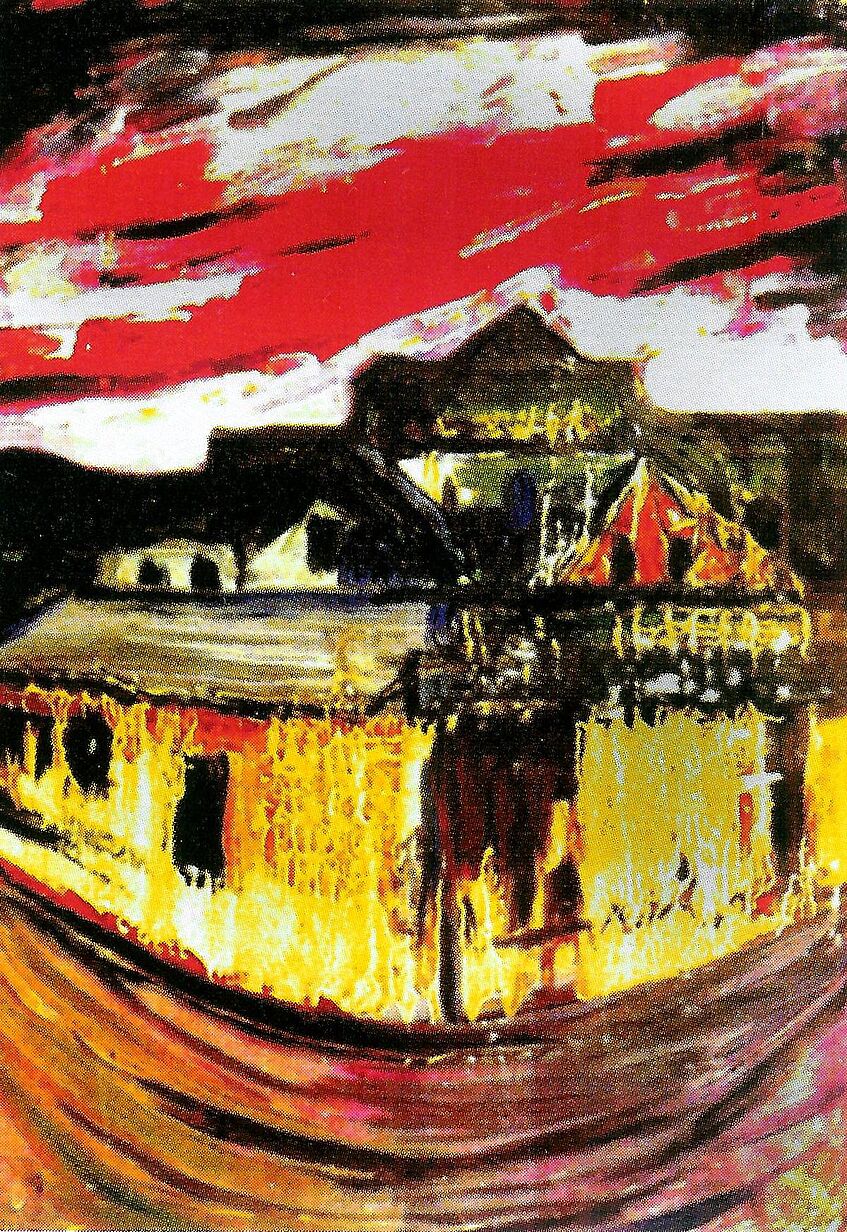
《风景之三》"Landscape No. 3" (watercolor)
Bao Pao 包炮
Bao Pao, was born in 1940 and therefore one of the older members of the group. During the Cultural Revolution he was the leader of one of the "rebel organizations" of the Red Guards (红卫兵造反派) in Shanghai. As an Artist he became member of the "Stars" in 1979. His more recent works of art deal mainly with the political symbols of the Mao era.
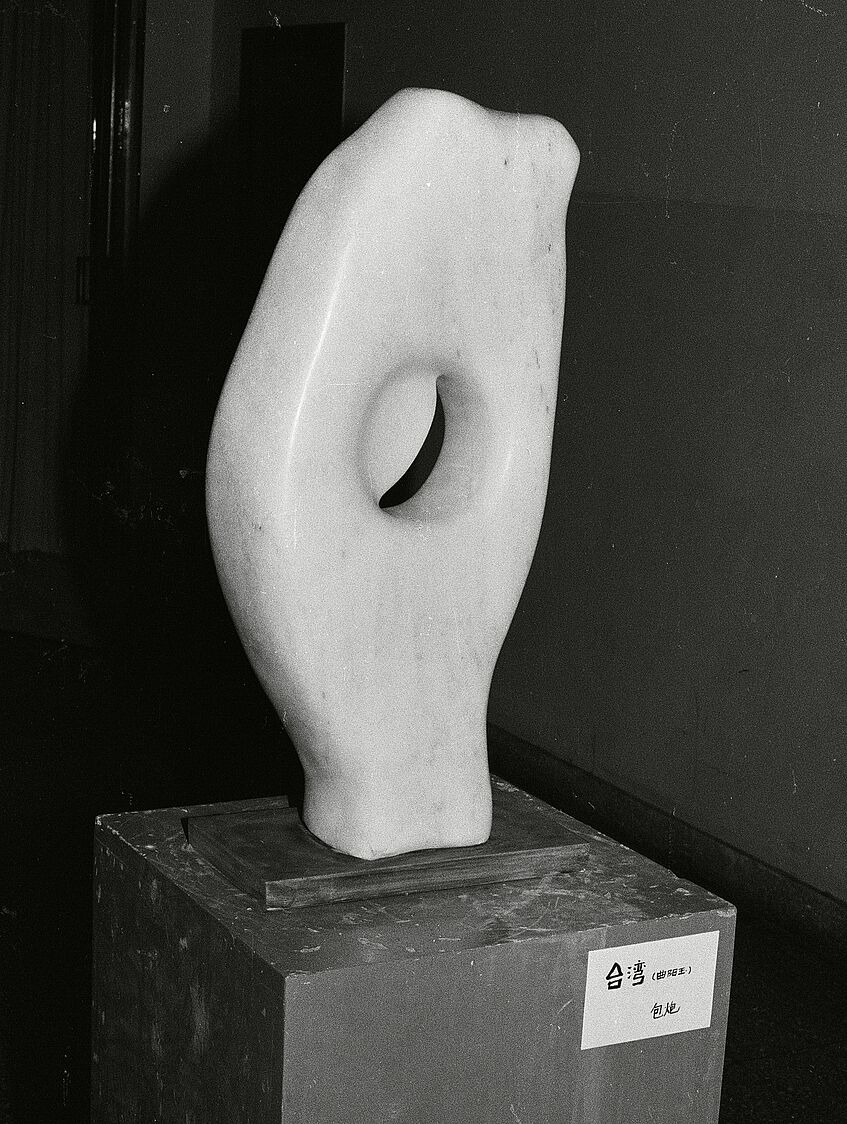
《台湾》"Taiwan" (Quyang jade sculpture)
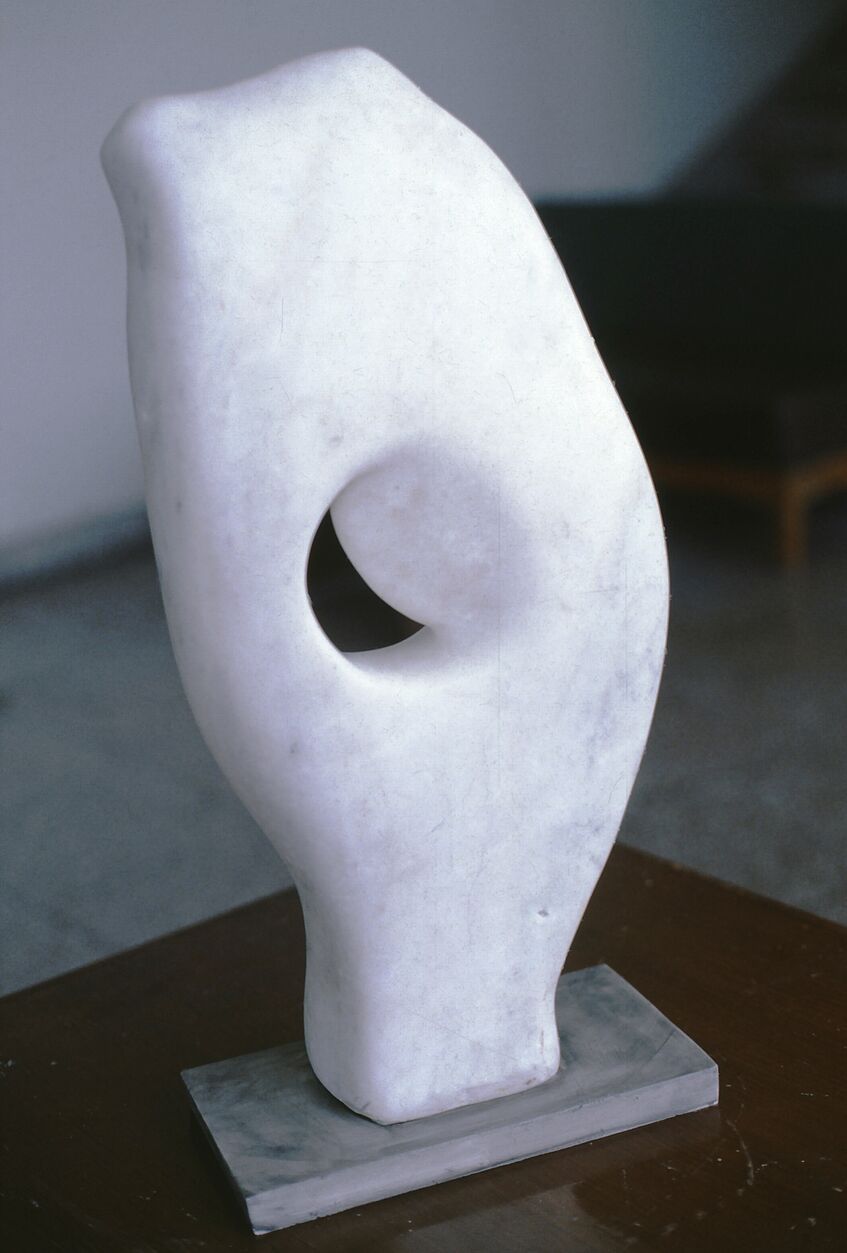
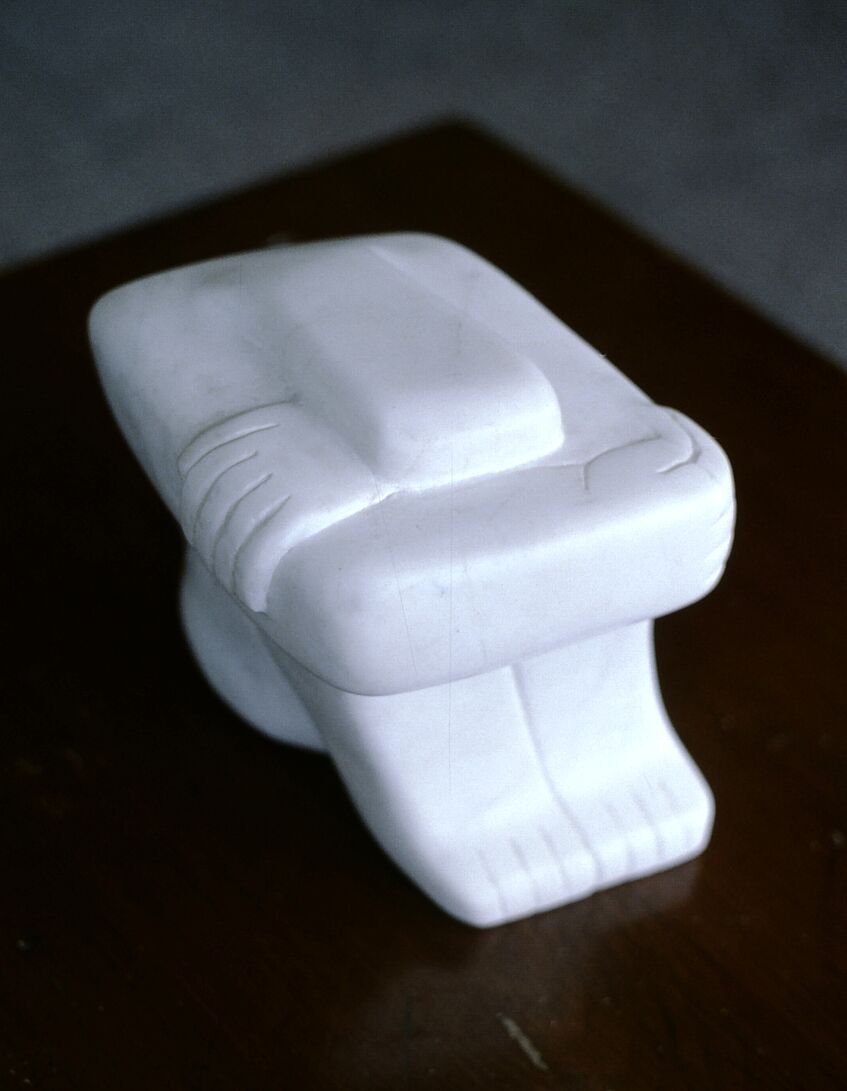
《倦》"Weary" (Quyang jade sculpture)
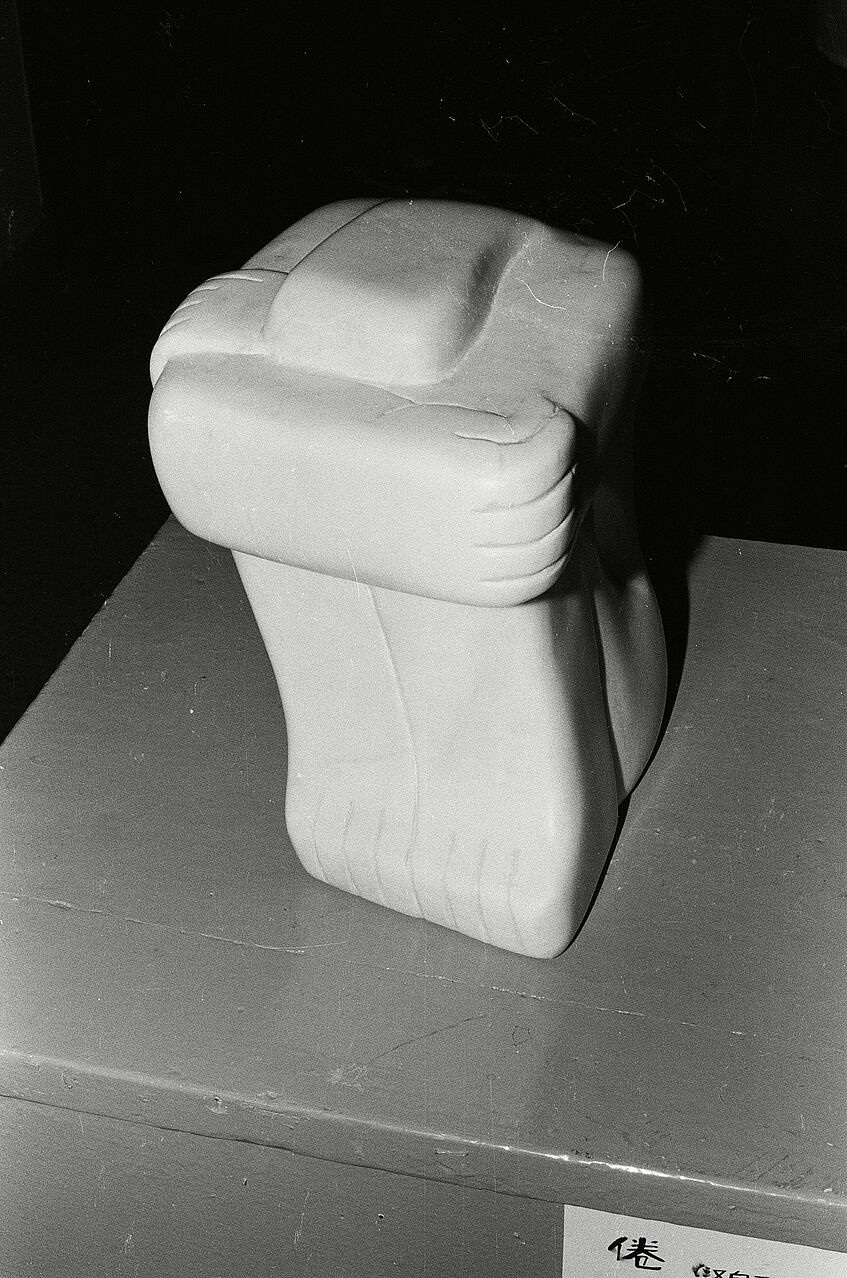
Guan Naixin 关乃炘
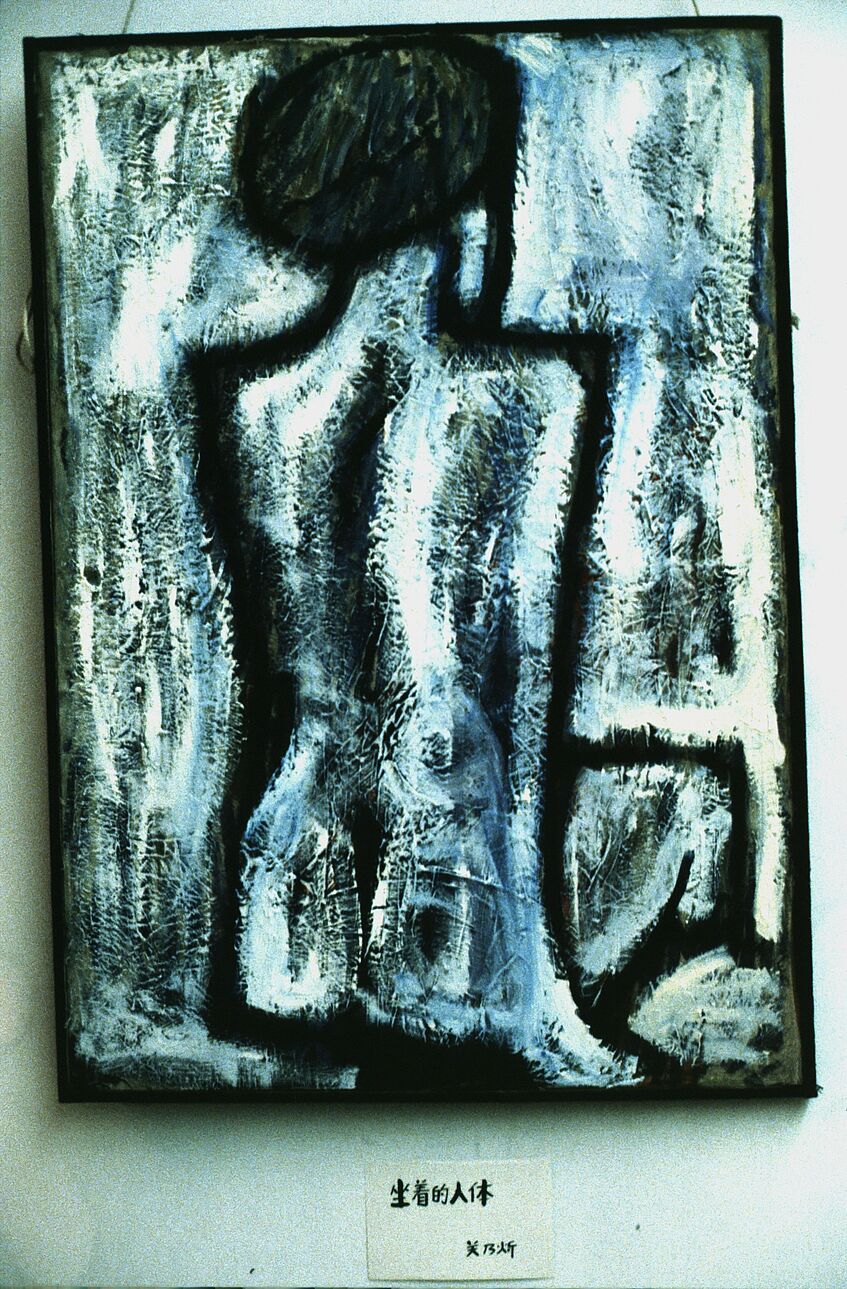
《坐着的人体》"Sitting Person" (oil on canvas)
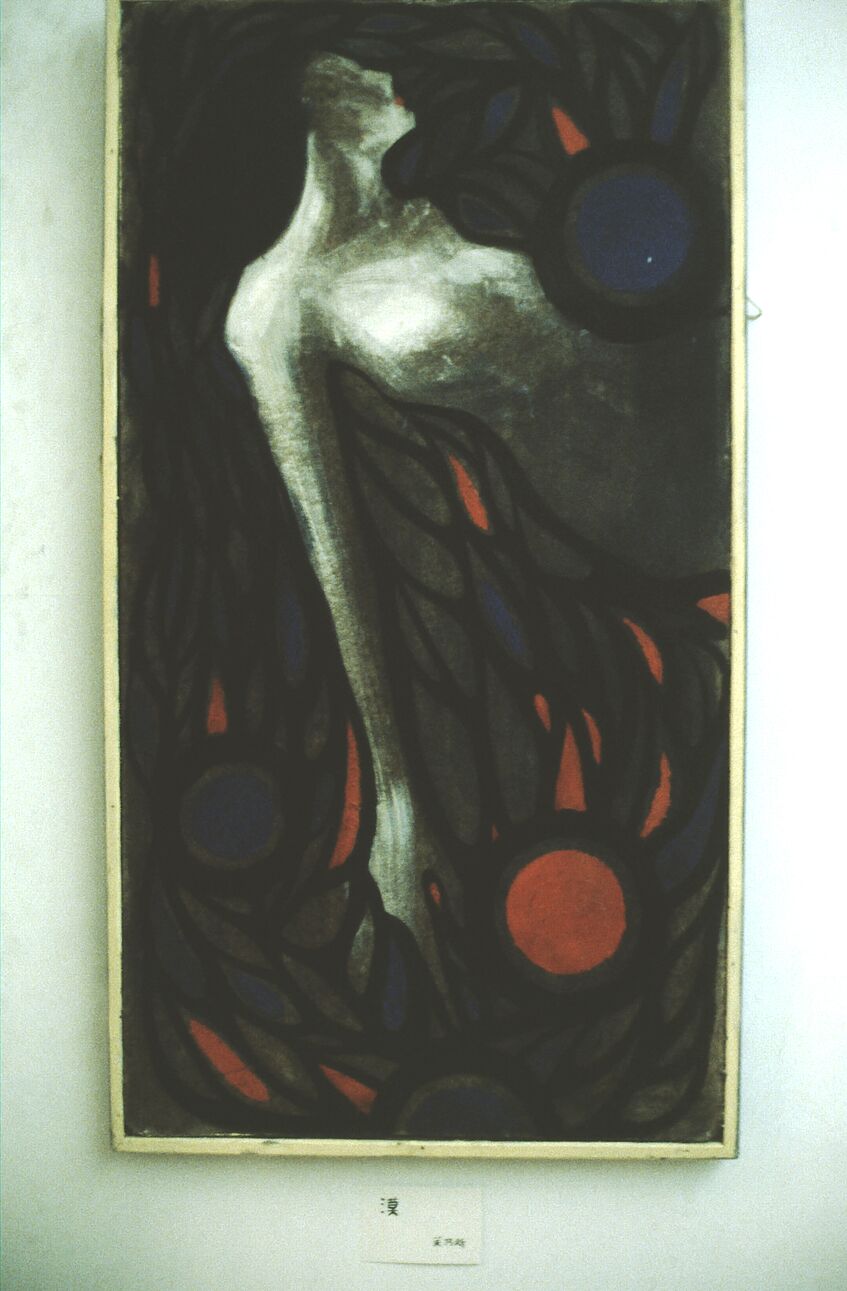
《漠》"Desert" (oil on canvas)
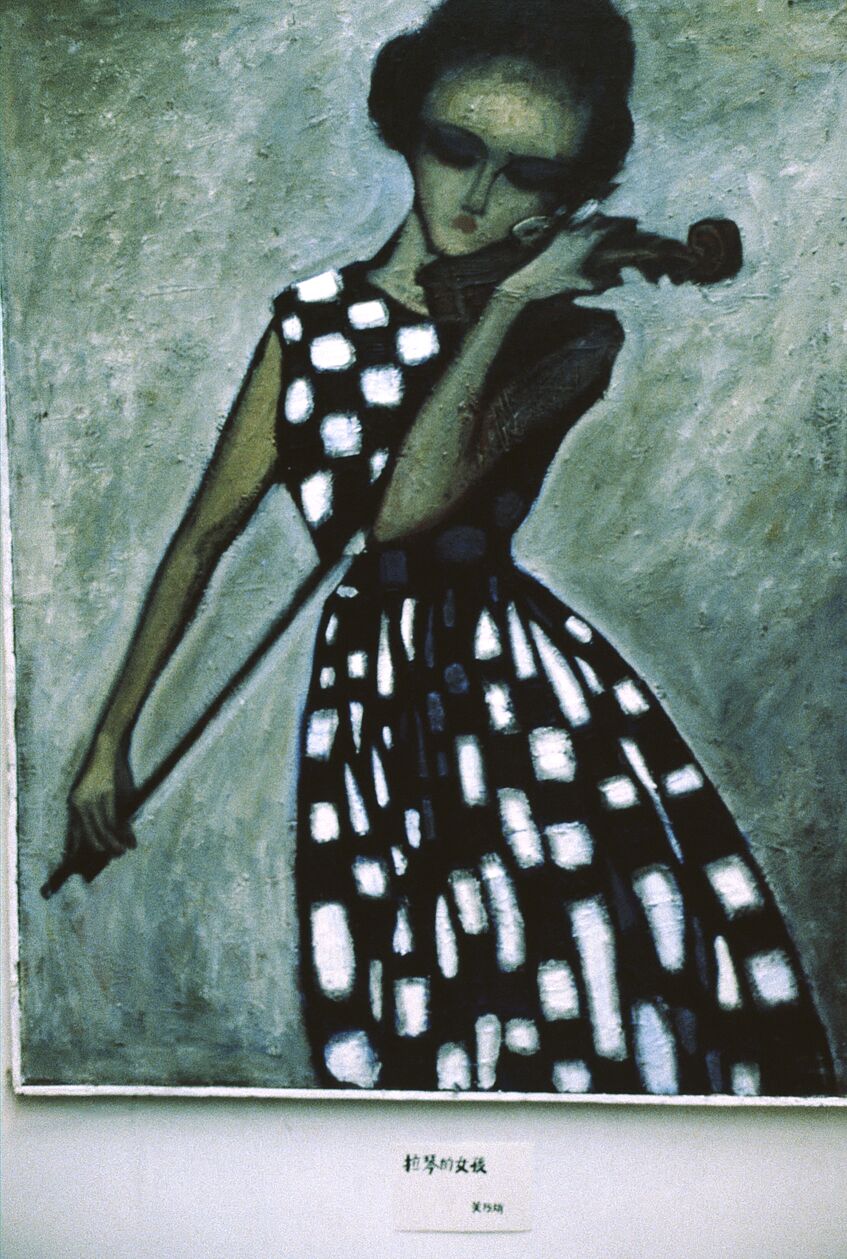
《拉琴的女孩》"Violin-Playing Girl" (oil on canvas)
Huang Rui 黄锐
Huang Rui was one of the most active members of the "Stars", he also was a co-founder and "art director" of the lierary Journal "Today". After 1981 he left for Japan, but he later returned to Beijing. He is collecting and publishing documents and other materials on the "Stars" group and their exhibitions.
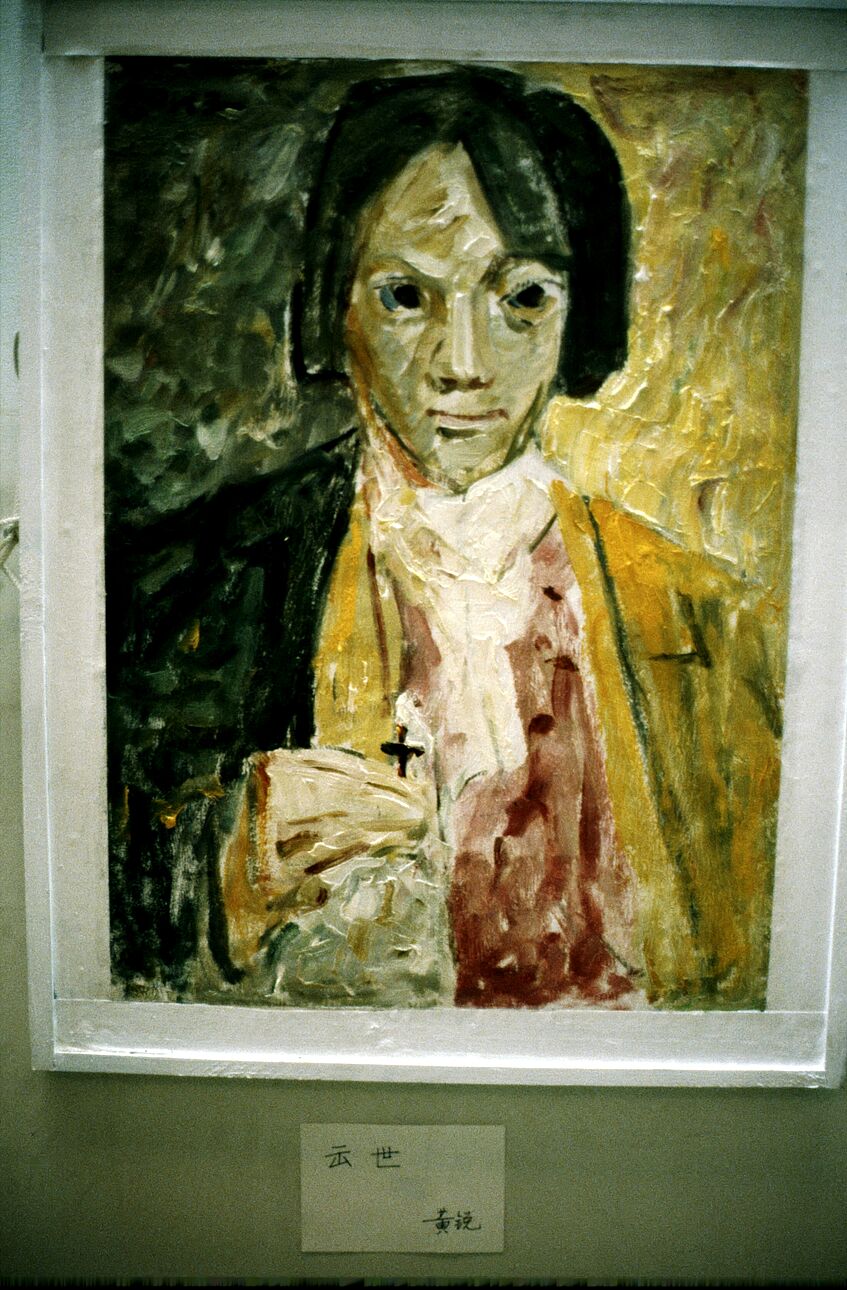
《出世》"Born" (oil on canvas)
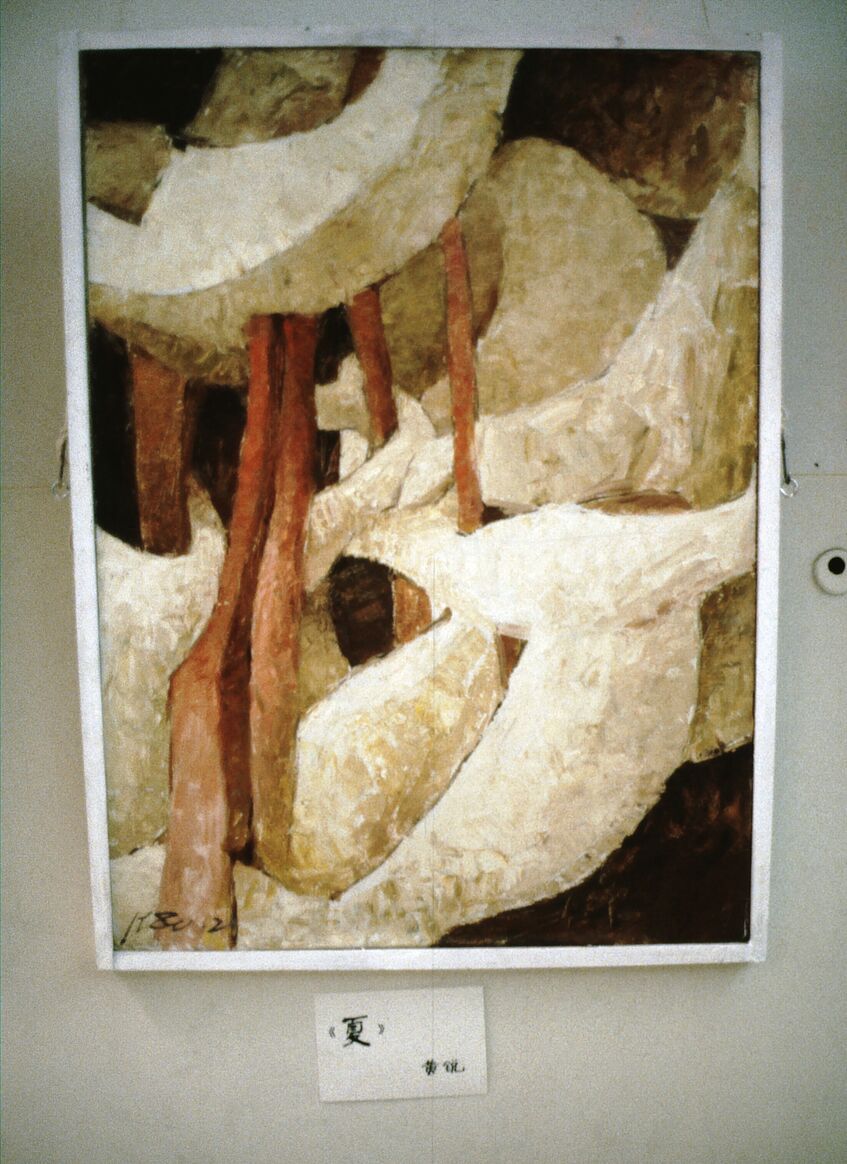
《夏》"Summer" (oil on canvas)
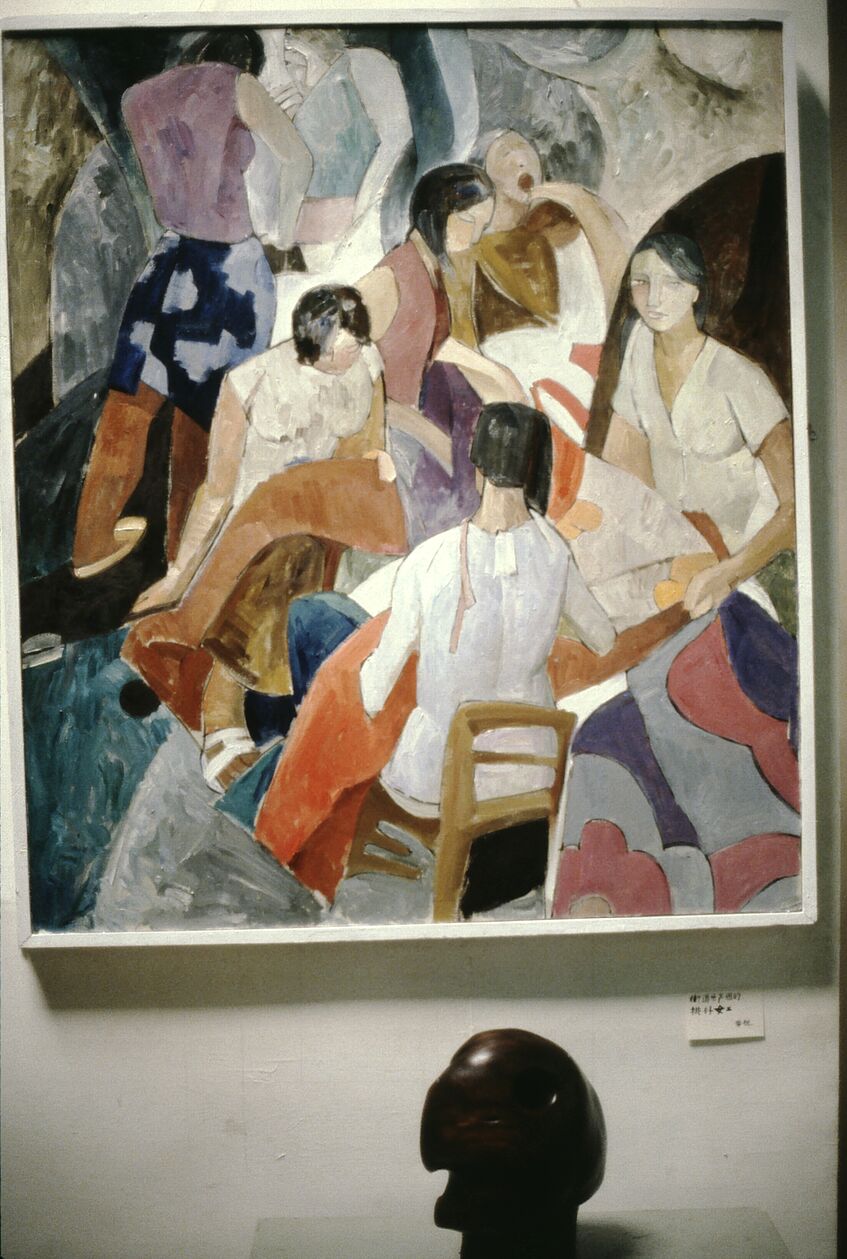
《街道生产组的补绣女工》"Seamstresses in a Street Production Unit" (oil on paper)
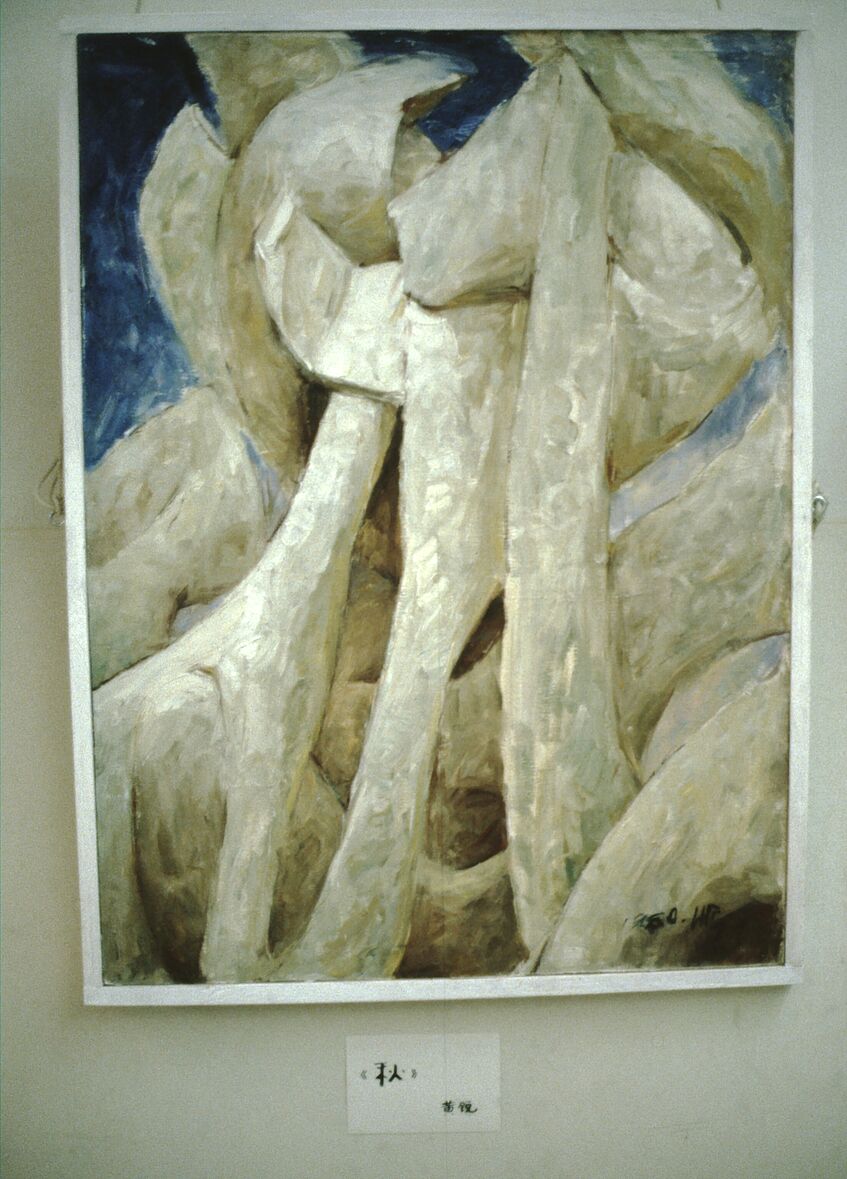
《秋》"Autumn" (oil on canvas)
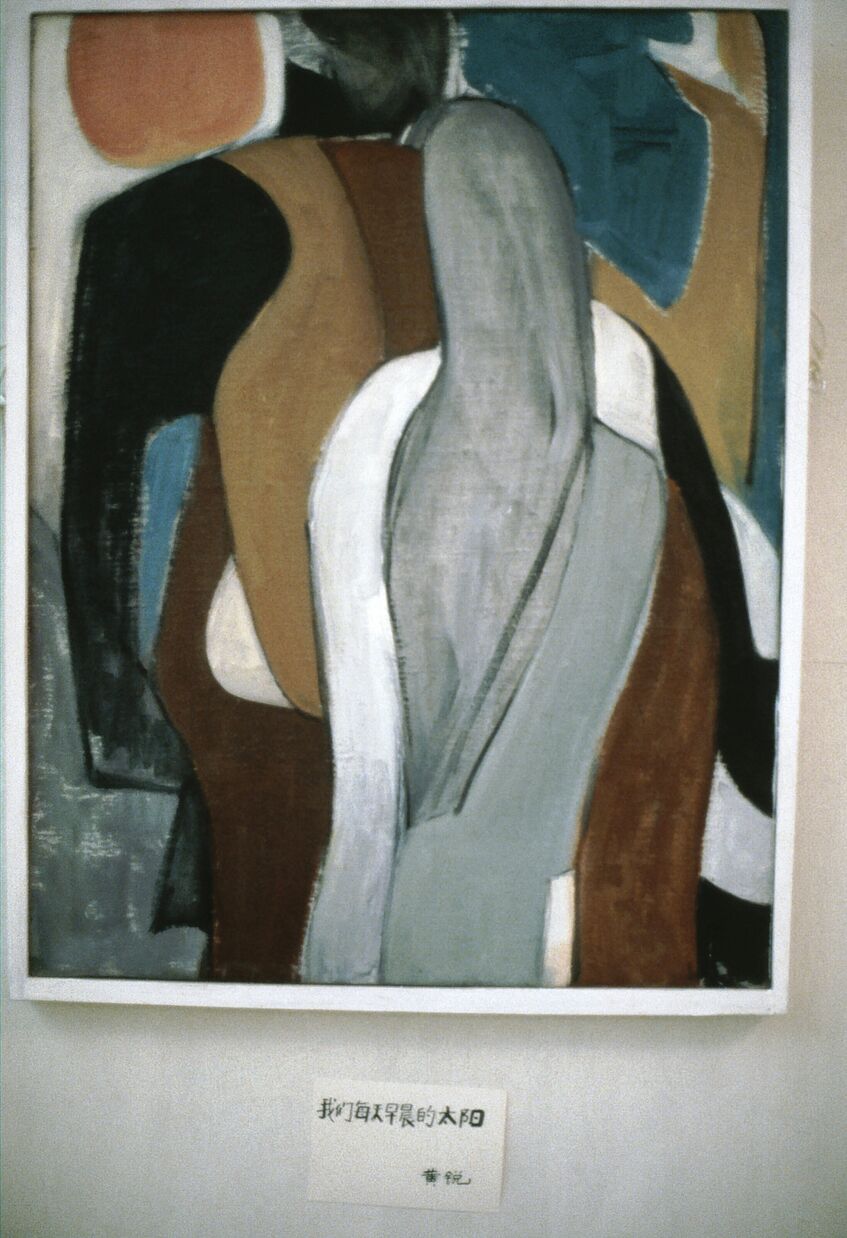
《我们每天早晨的太阳》"Our Daily Morning Sun" (oil on canvas)
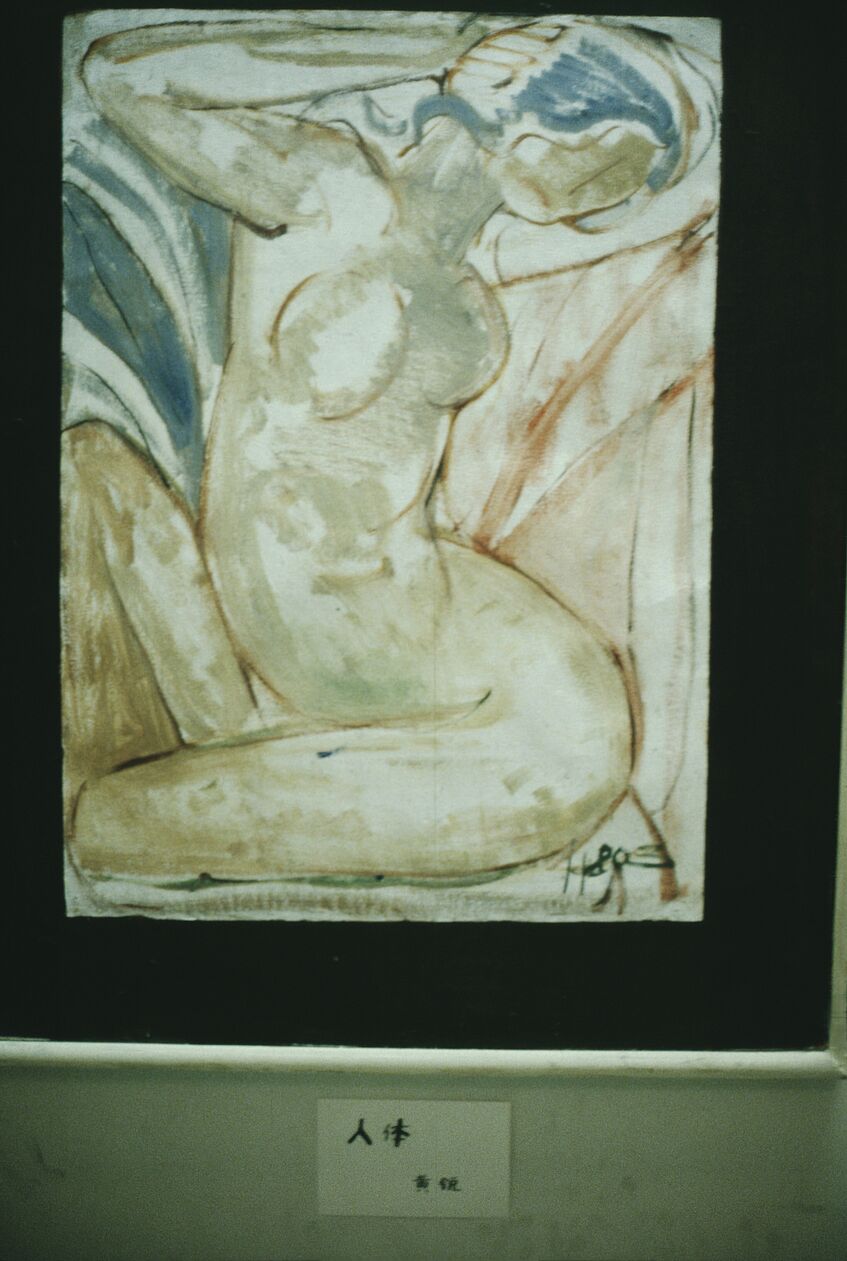
《人体》"Body" (oil on paper, 1980)
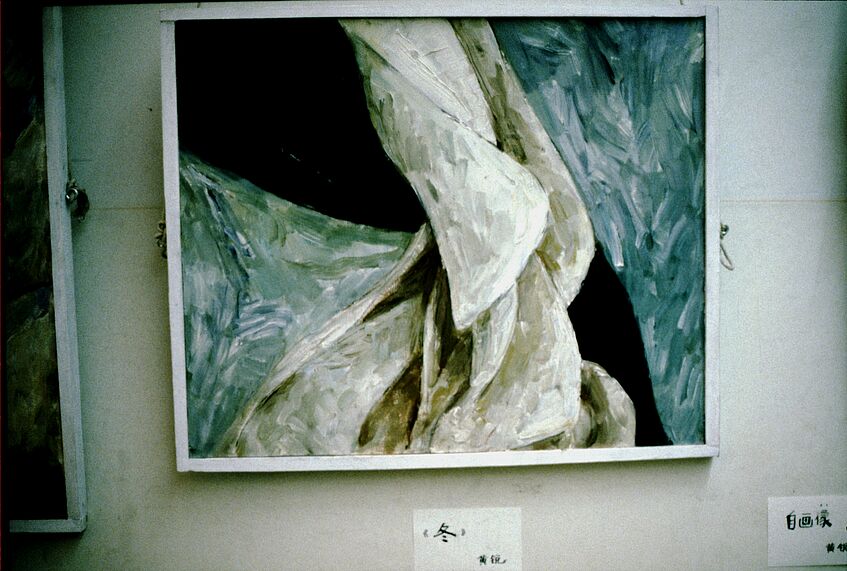
《冬》"Winter" (oil on paper, 1980)
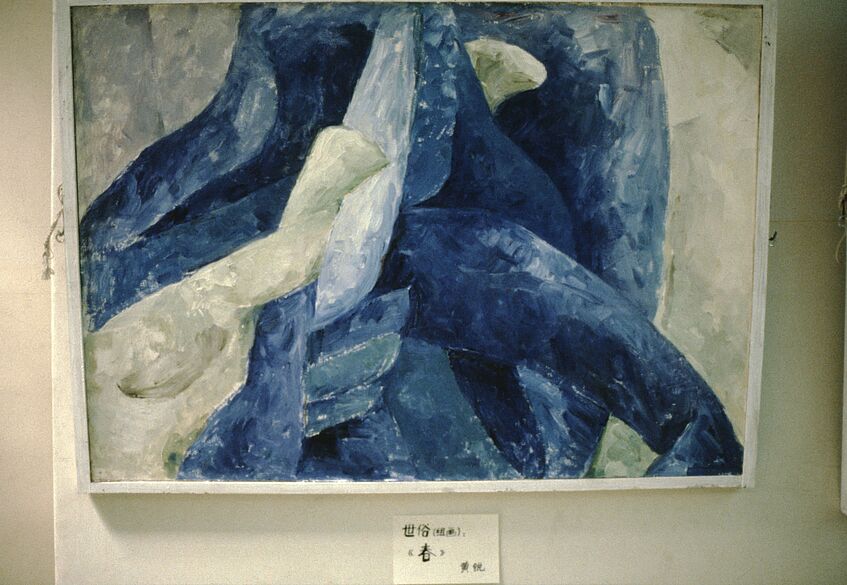
世俗(组画)《春》Earthliness (Group) "Spring" (oil on paper)
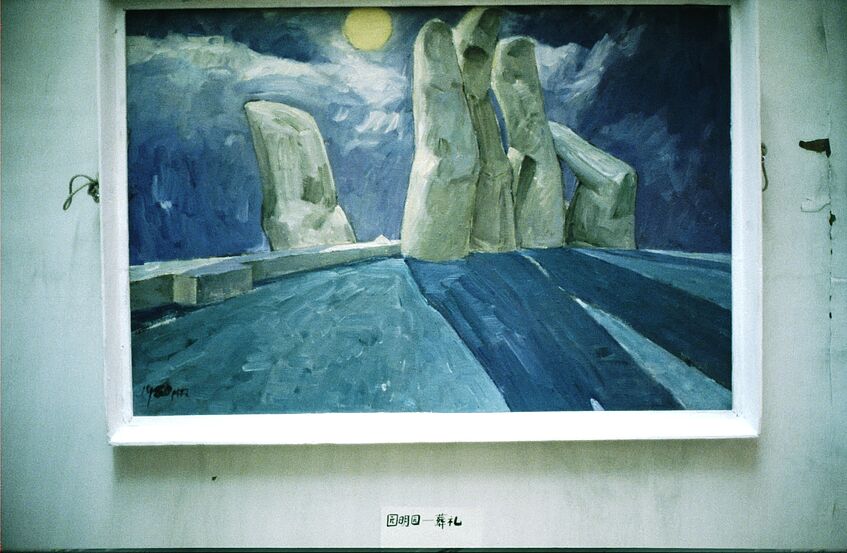
《圆明园 - 葬礼》"Yuanmingyuan - Funeral" (oil on canvas, 1980)
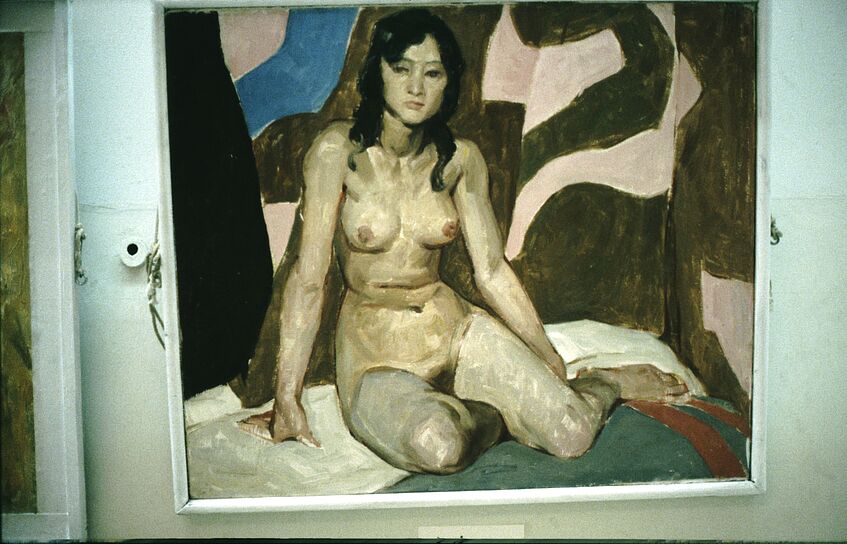
《人体》"Body" (oil on paper, 1980)
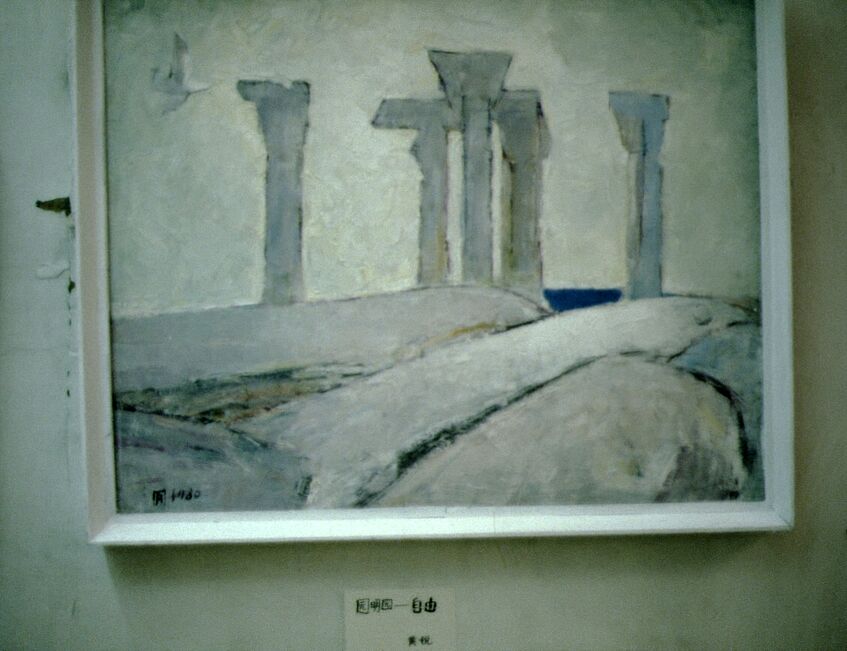
《圆明园 - 自由》"Yuanmingyuan - Freedom" (oil on canvas, 1979)
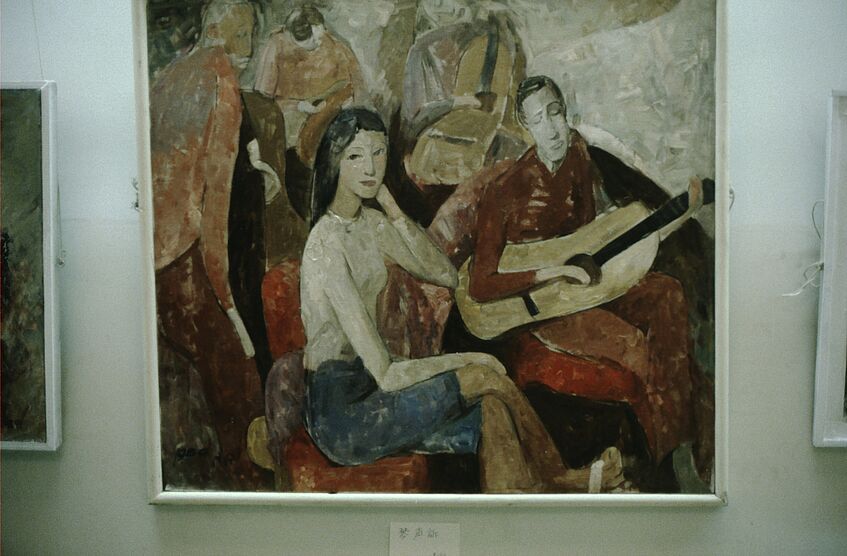
《琴声诉》"The Guitar's Story" (oil on canvas, 1979)
Li Shuang 李爽
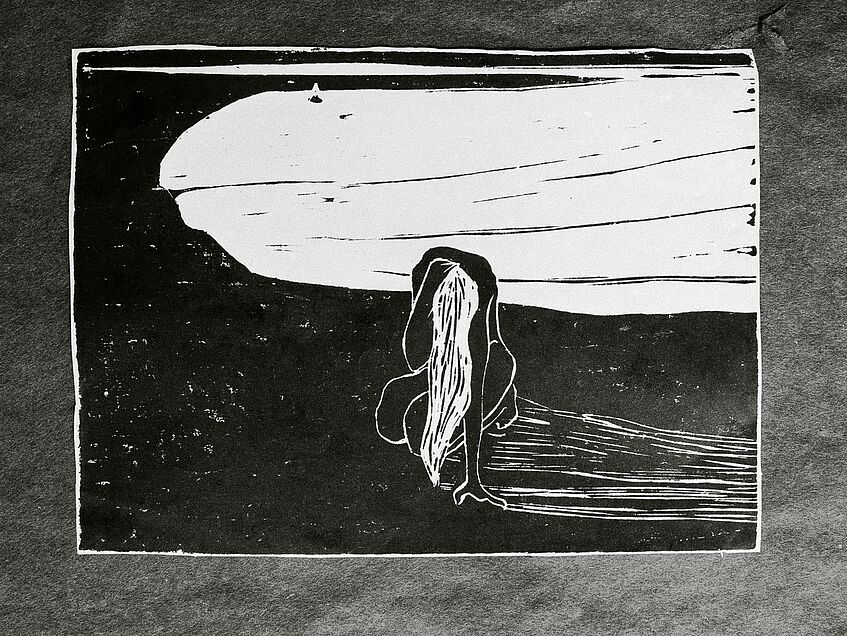
《别离》"Parting" (woodblock, 1980)
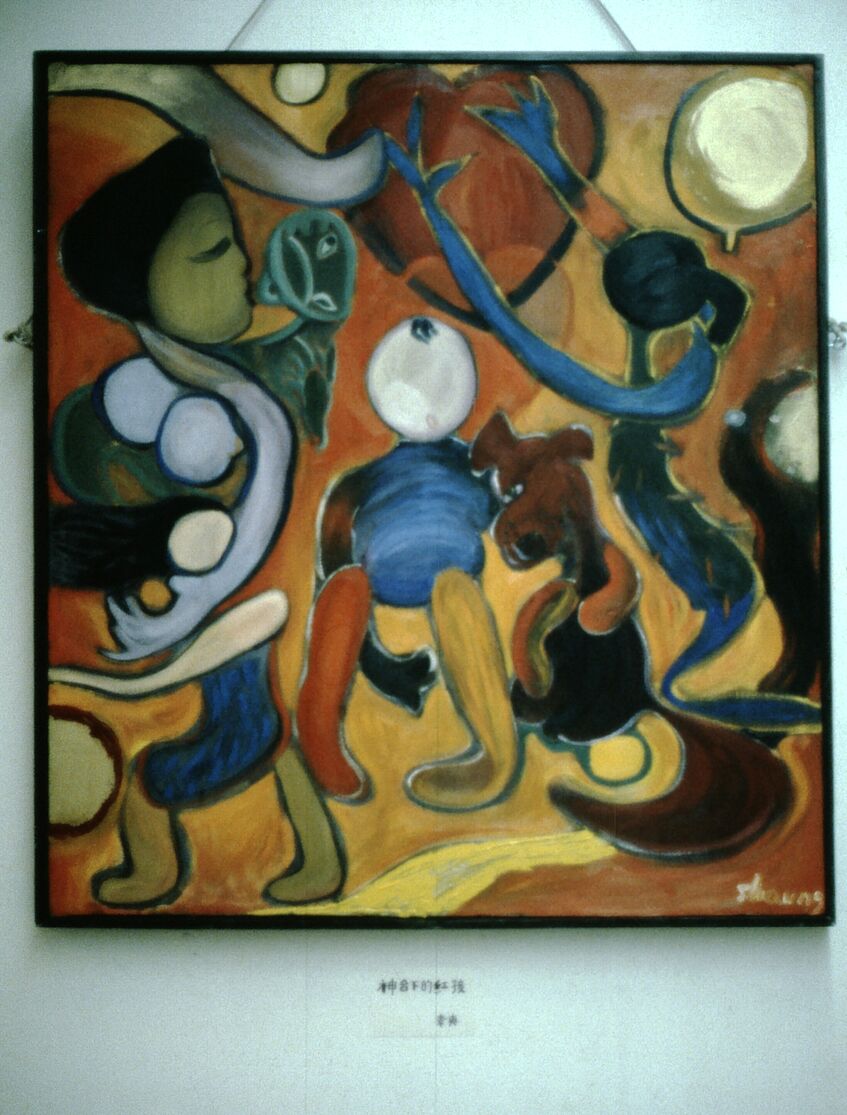
《神台下的红孩》"Red Children under the Altar" (oil on canvas, 1980)
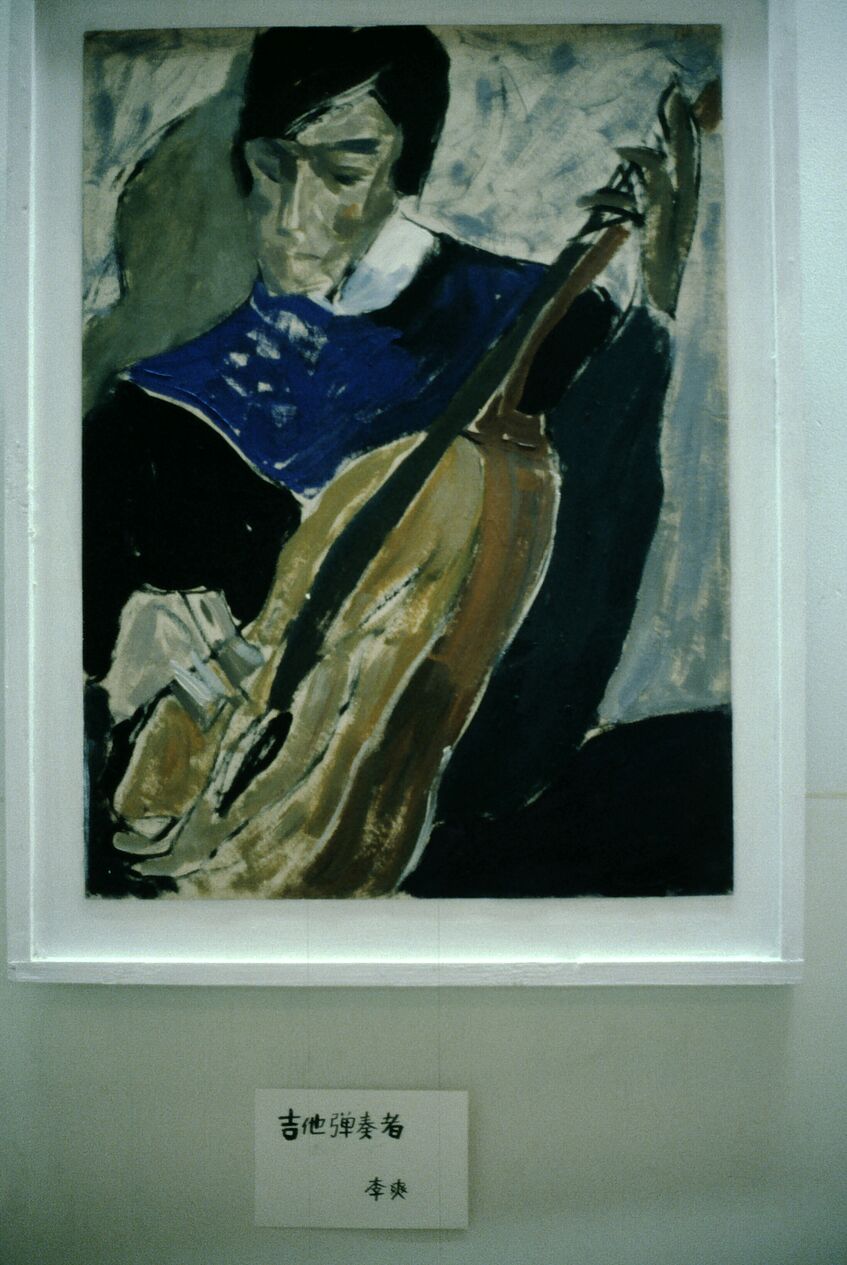
《吉他弹奏着》"Guitar Player" (oil on canvas, 1980)
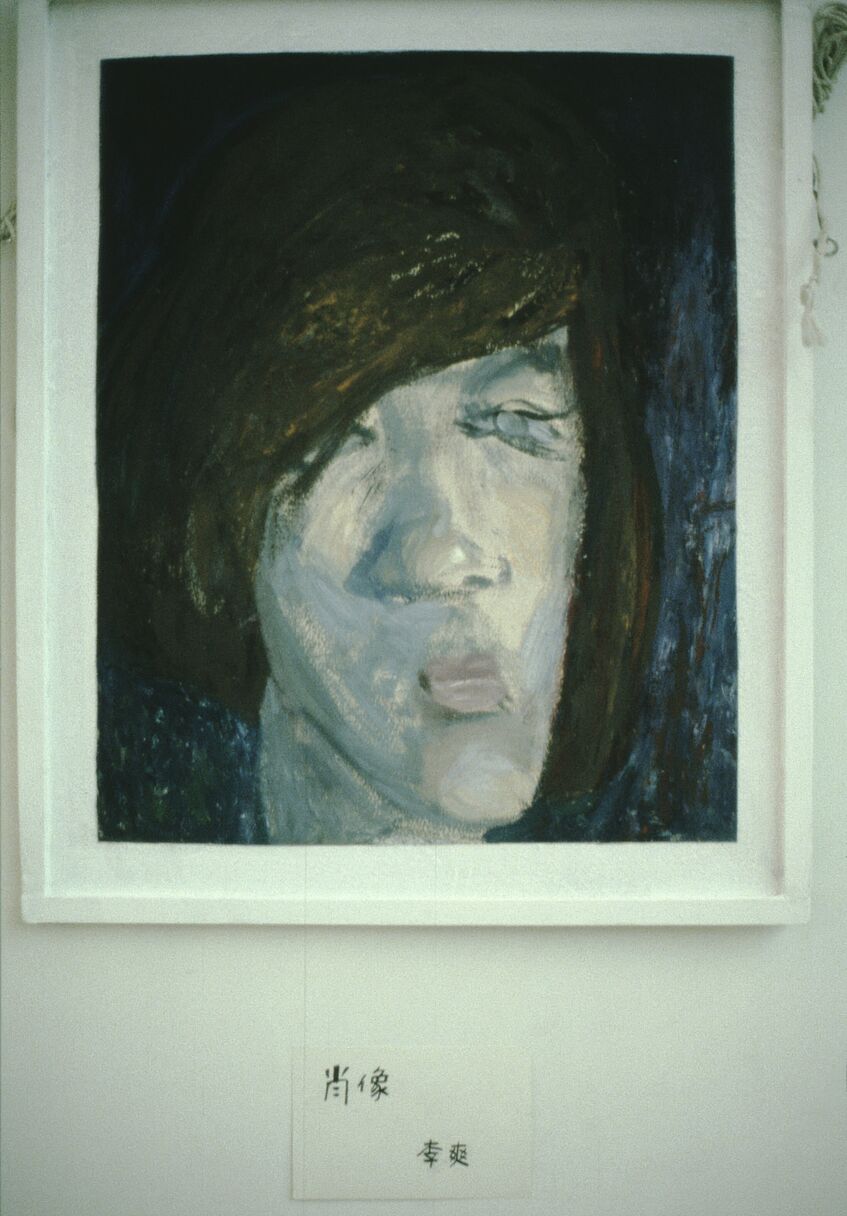
《肖像》"Portrait" (oil on canvas, 1980)
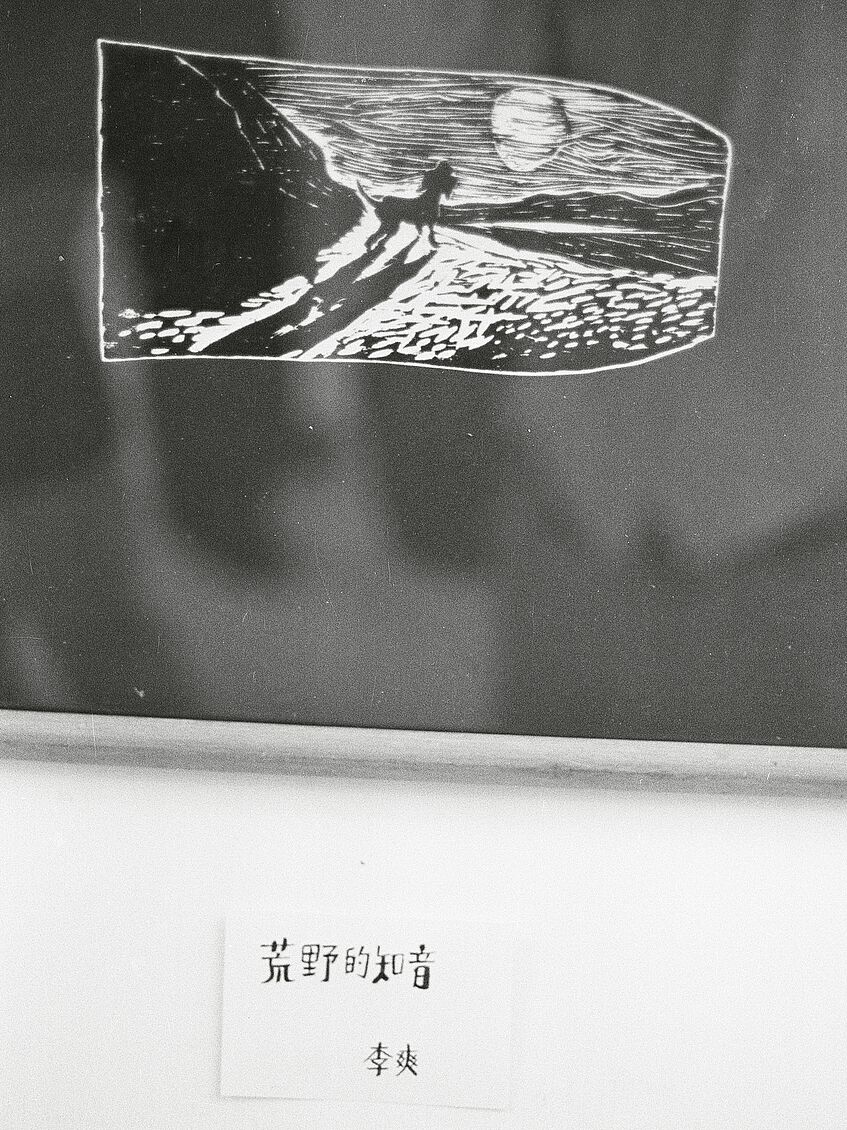
《荒野的知音》"Old Friend in the Wilderness" (woodblock, 1980)
Ma Desheng 马德升
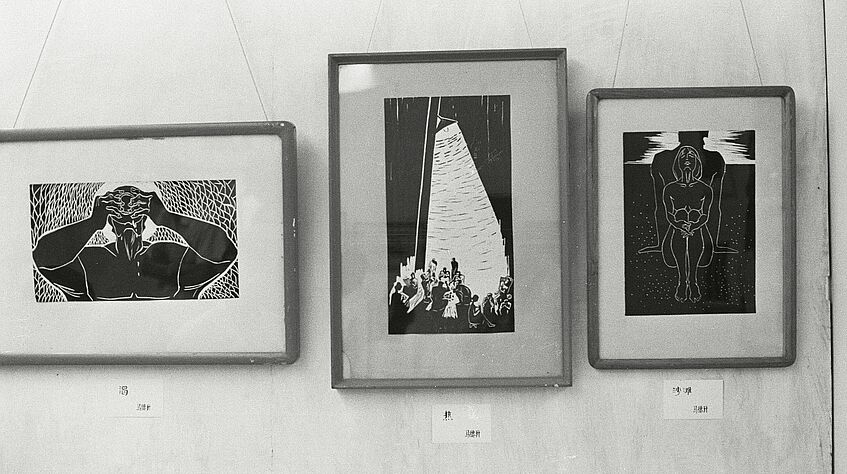
《渴》"Thirst" 《热》"Heat" 《沙滩》"Sandy Beach" (woodblocks)
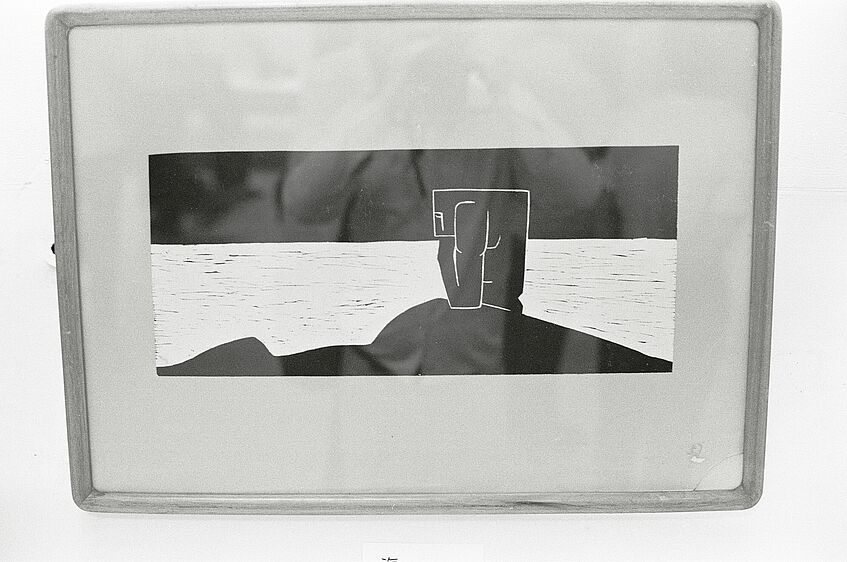
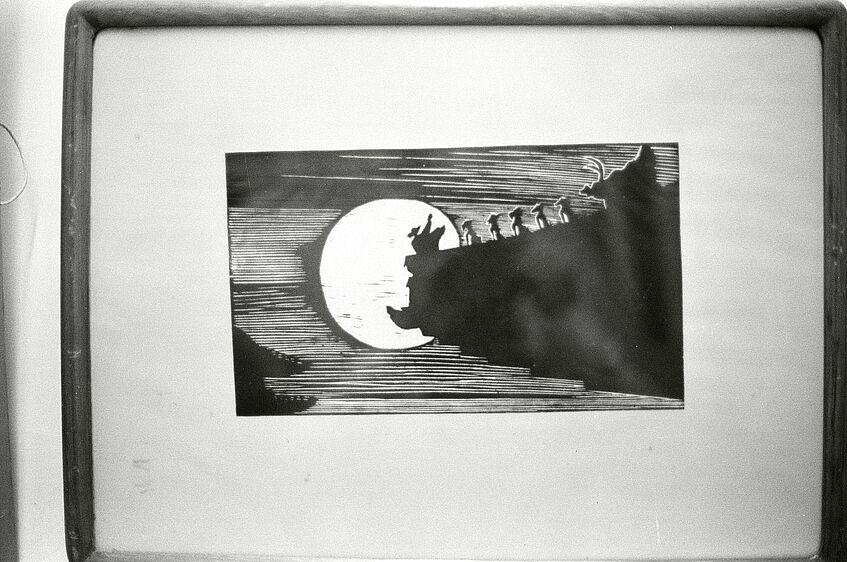
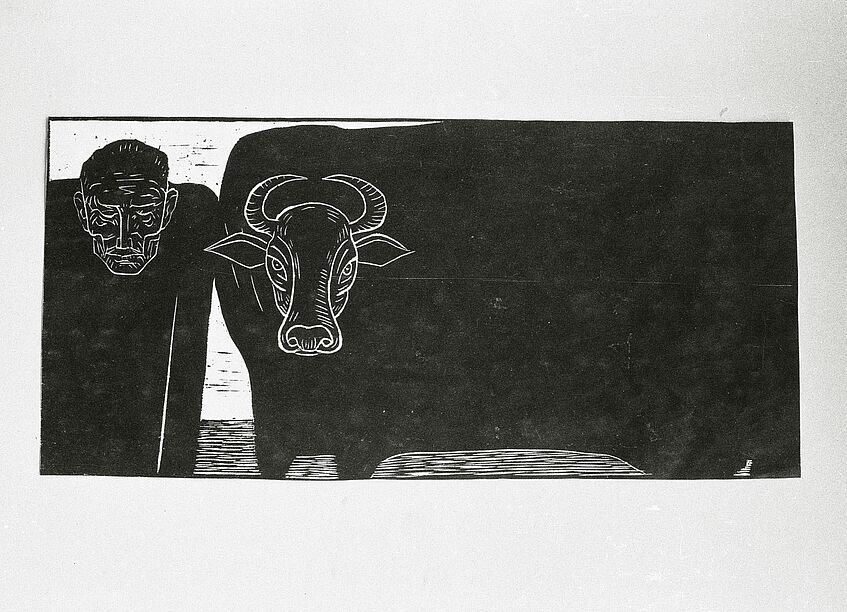
《白与黑的世界》"The World in Black and White" (woodblock)
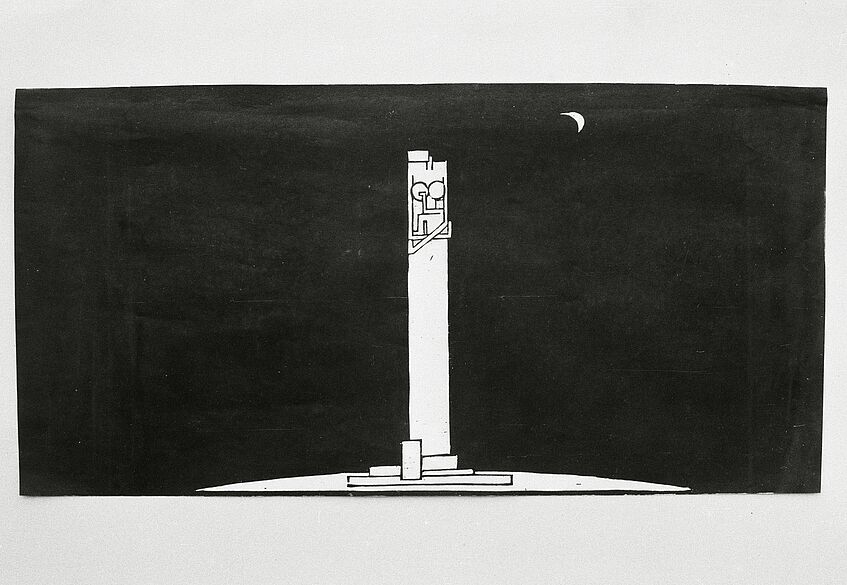
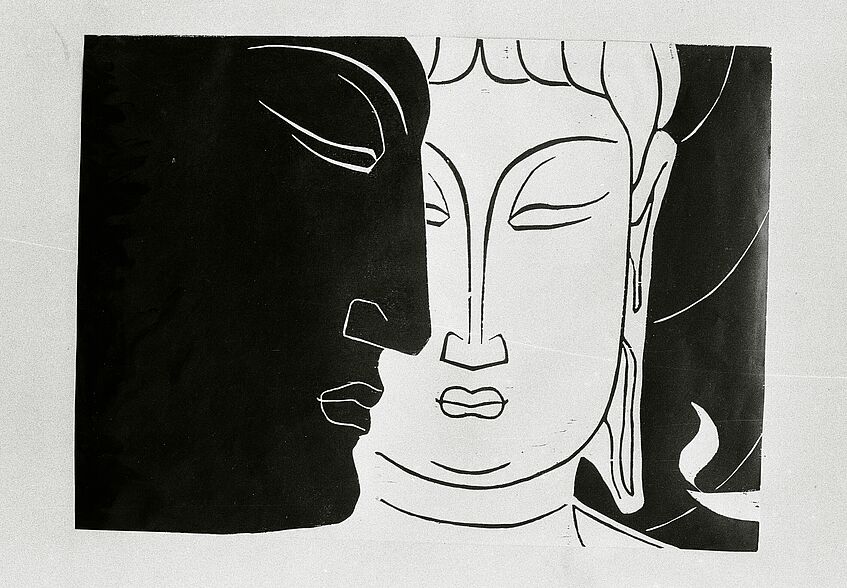
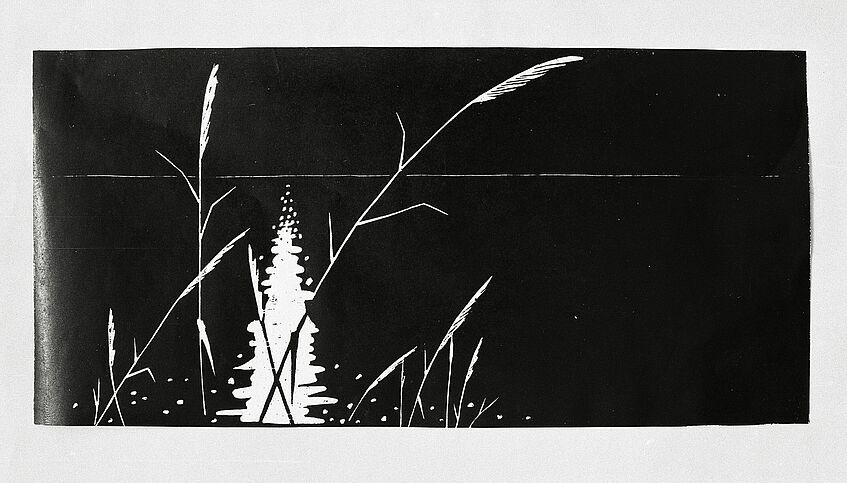
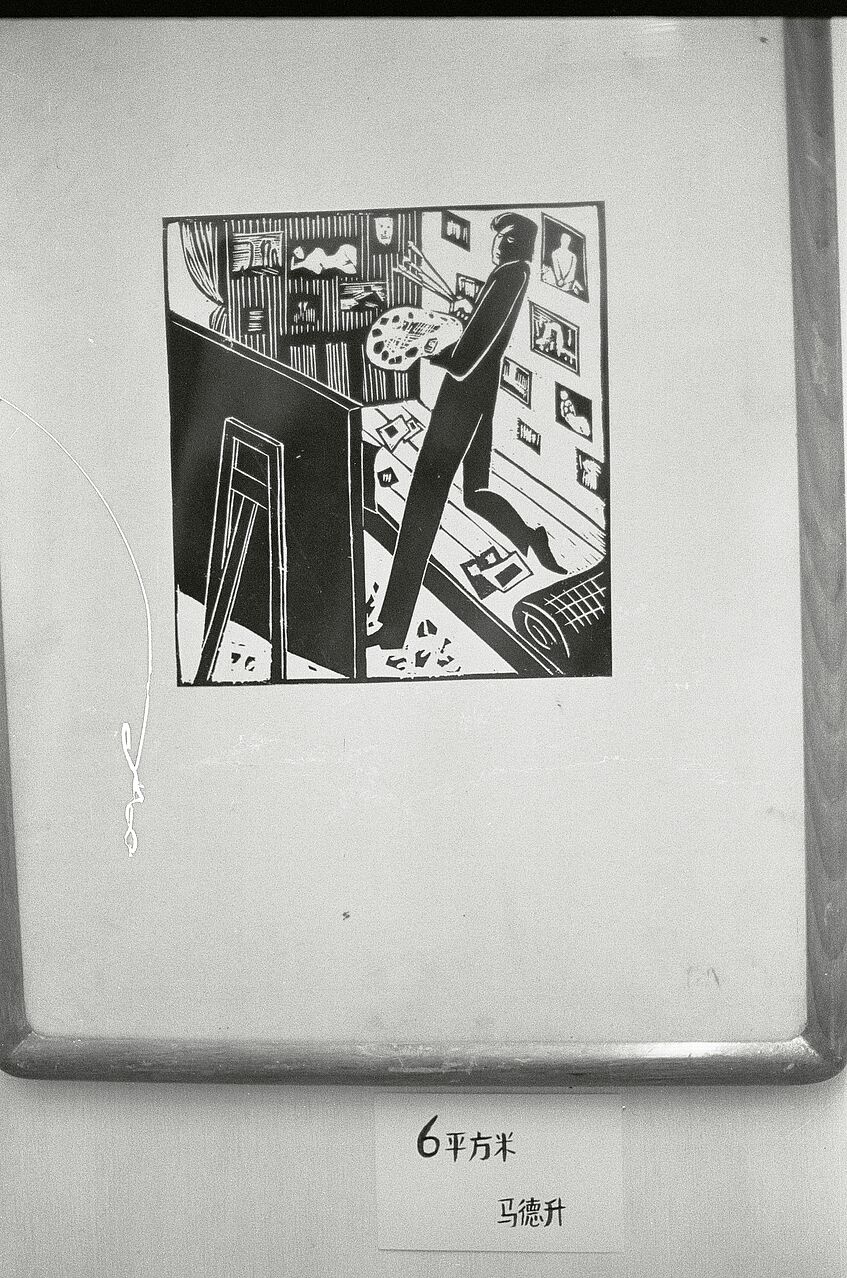
《6平方米》"6 Square Meters" (woodblock)
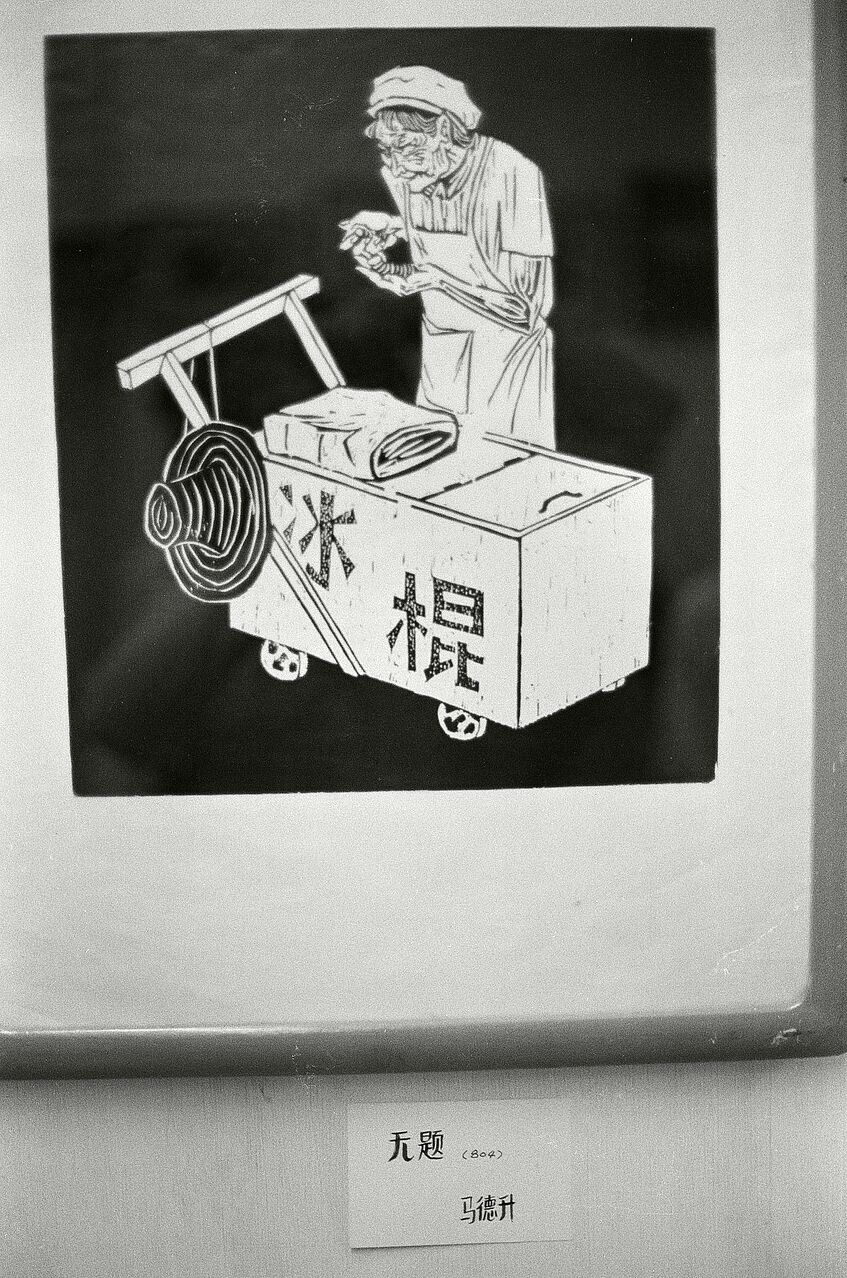
《无题》"Untitled" (series, woodblock), Popsicle Vendor
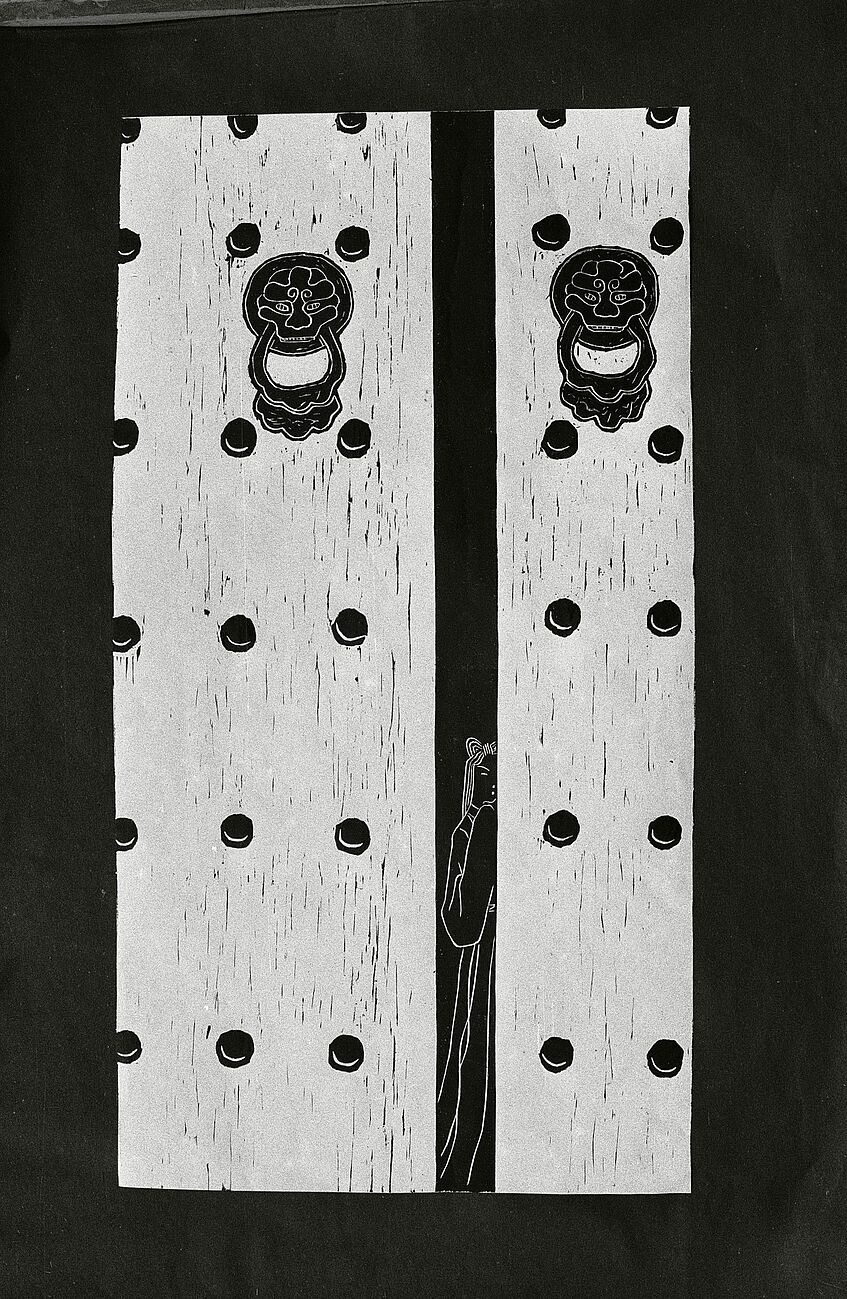
《无题》"Untitled" (series, woodblock)
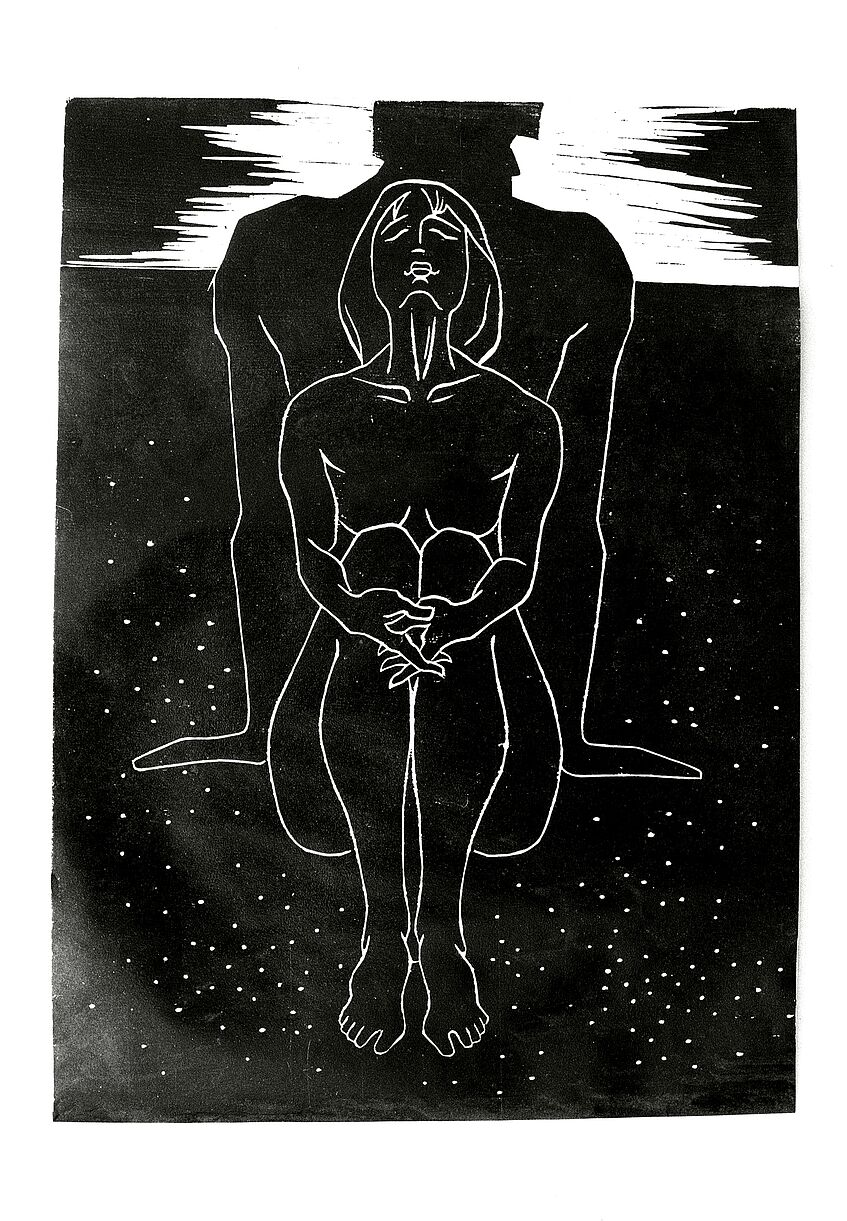
《沙滩》"Sandy Beach" (woodblock)
Mao Lizi 毛栗子
Mao Lizi was originally - as a cultural worker - in the Chinese "People's Liberation Army". He ran into trouble with his superiors when he participated in the "Stars" exhibition without having asked prior permission. He escaped facing the court-martial only by immediately leaving the armed forces (and giving up his job).
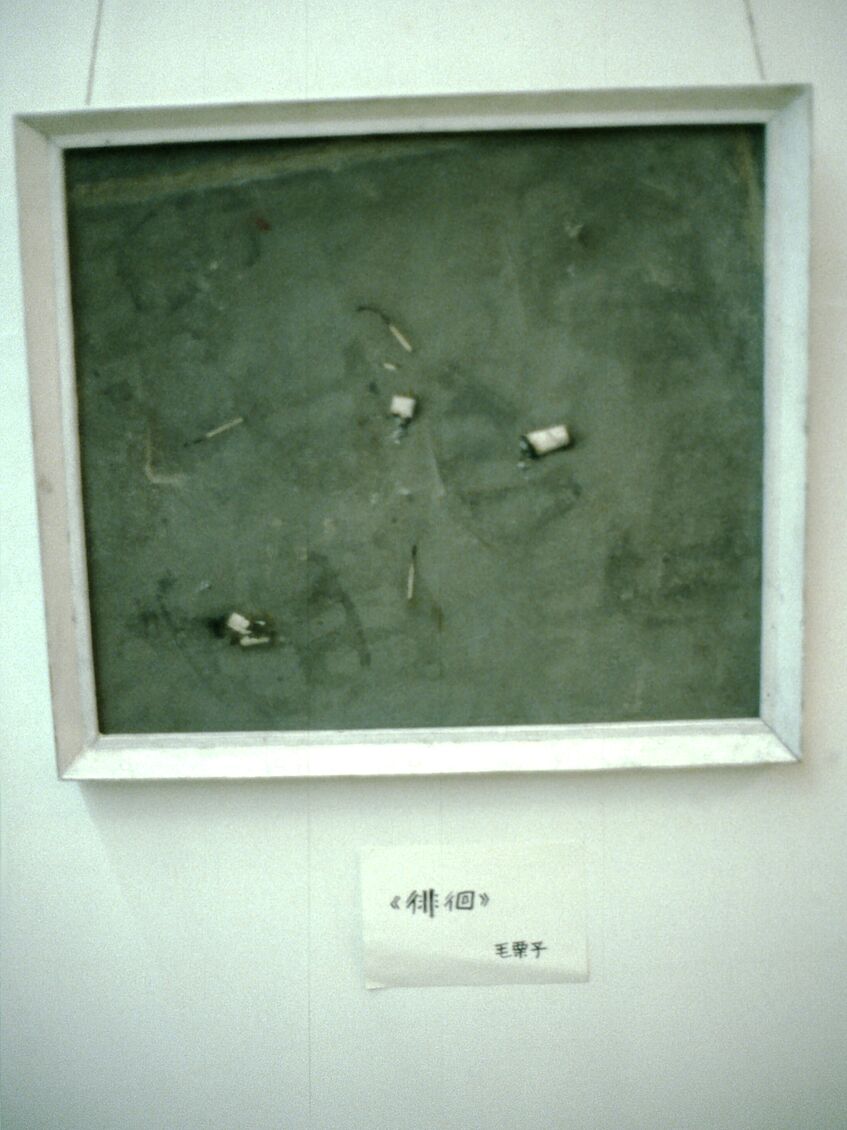
《徘徊》"Mouch" (mixed media)
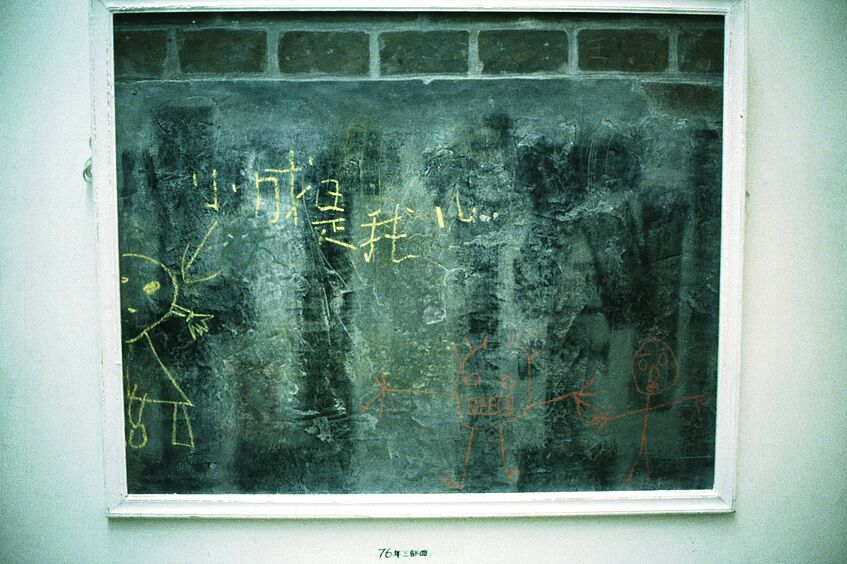
《76年三部曲》"1976 Trilogy" (mixed media)
Qu Leilei 曲磊磊
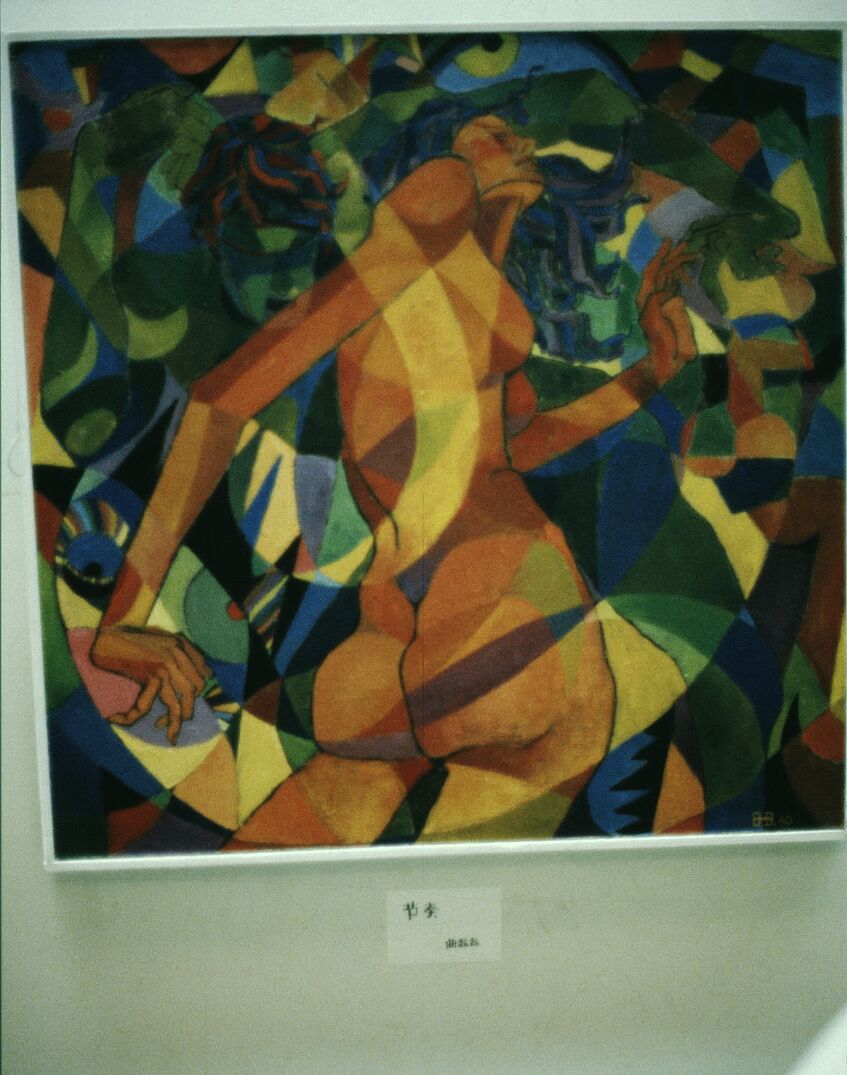
《节奏》"Rhythm" (oil on canvas)
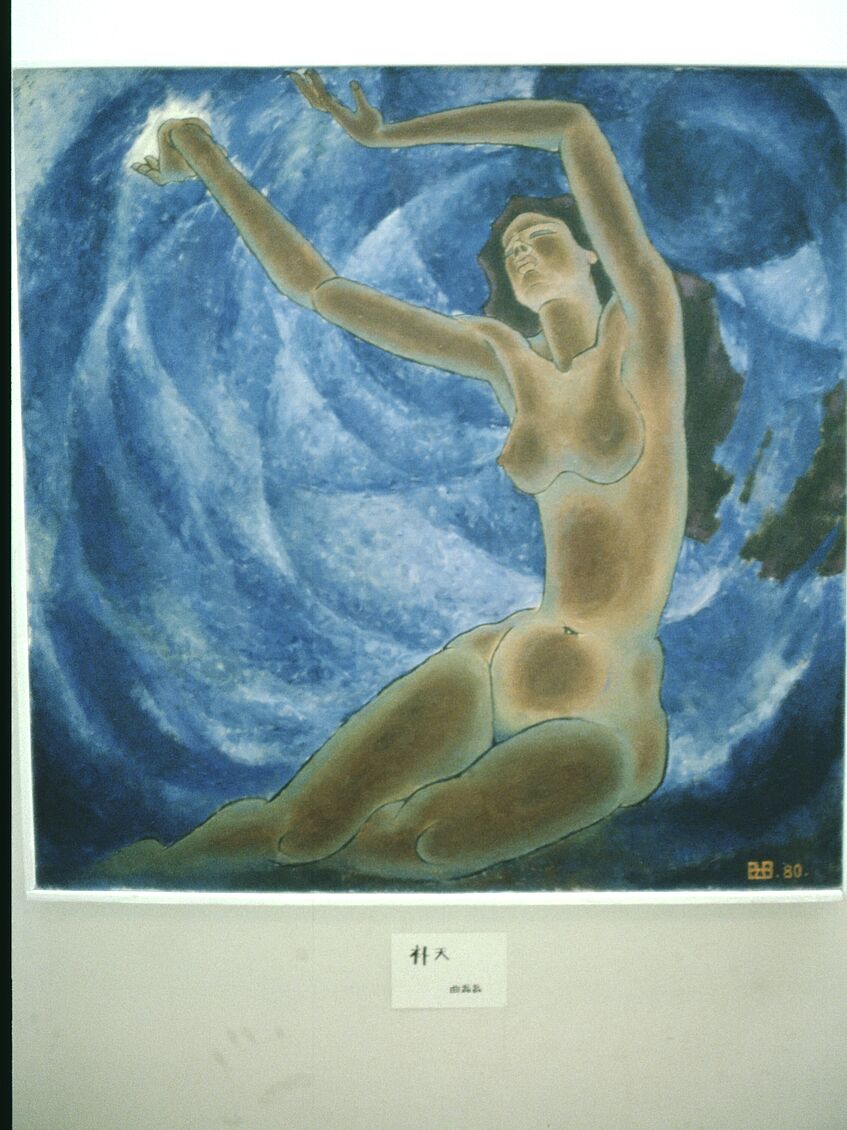
《补天》"Repair the Heaven" (oil on canvas)
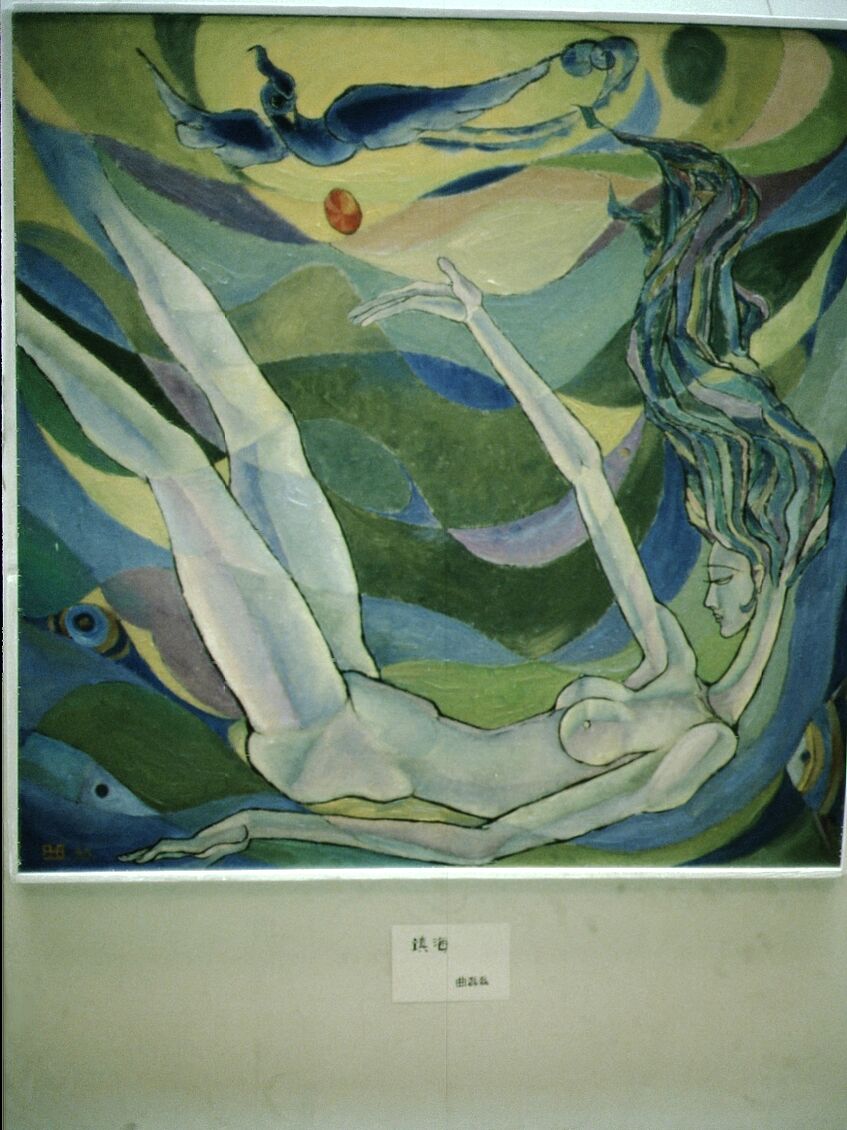
《填海》"Fill the Sea" (oil on canvas)
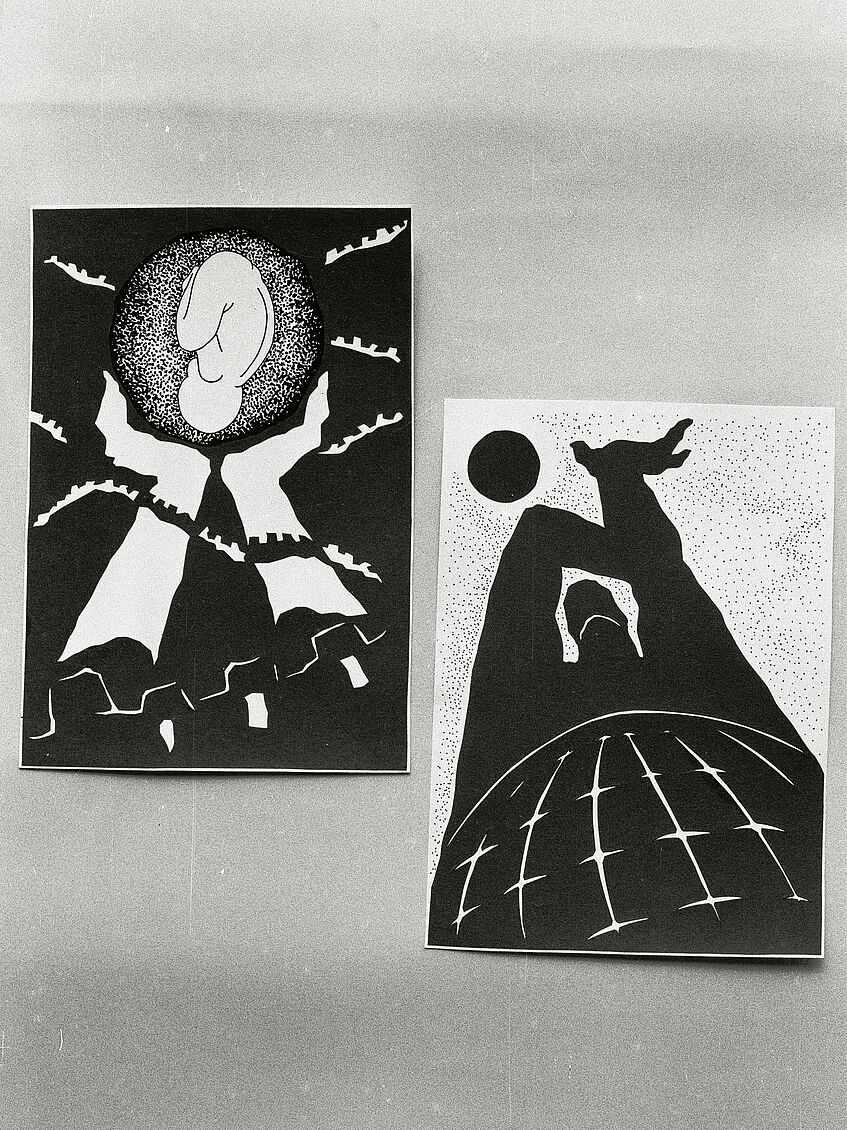
《祖国》组画 Series "My Motherland" (woodblocks, 1979)
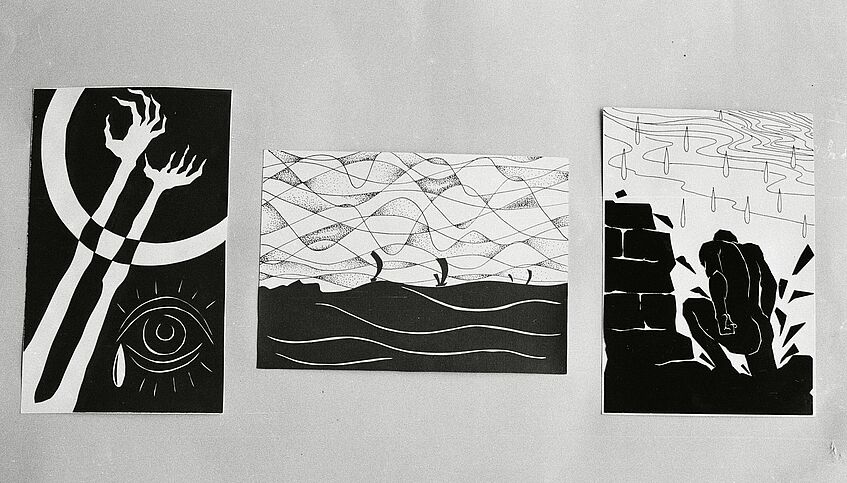
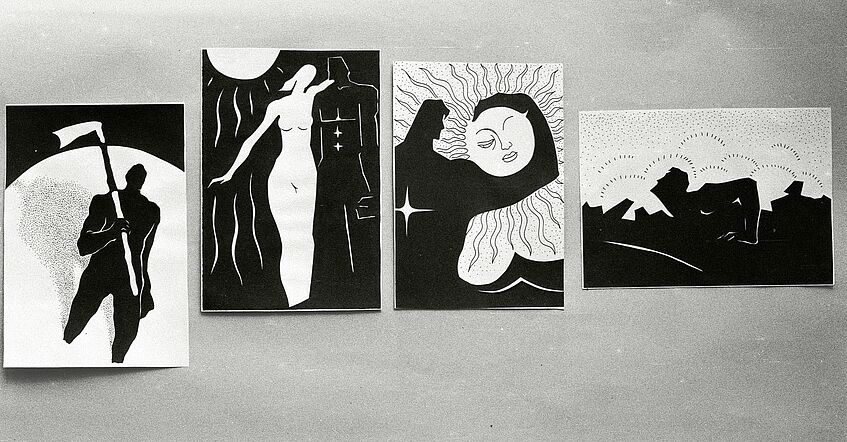
《祖国》组画 Series "My Motherland" (woodblocks, 1979)
Shao Dayuan 肖大元
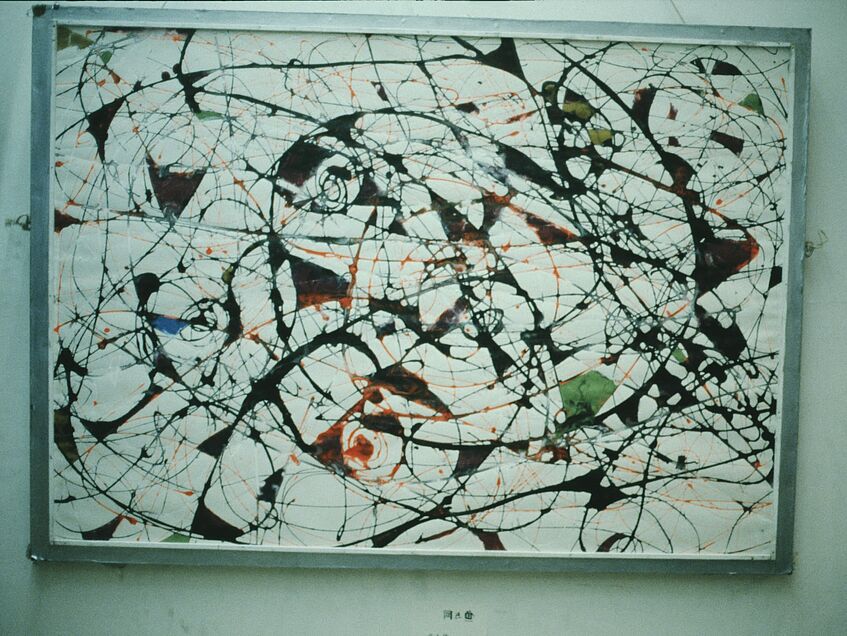
《鱼与网》"Fish and Net" (oil on canvas)
Shao Fei 邵飞
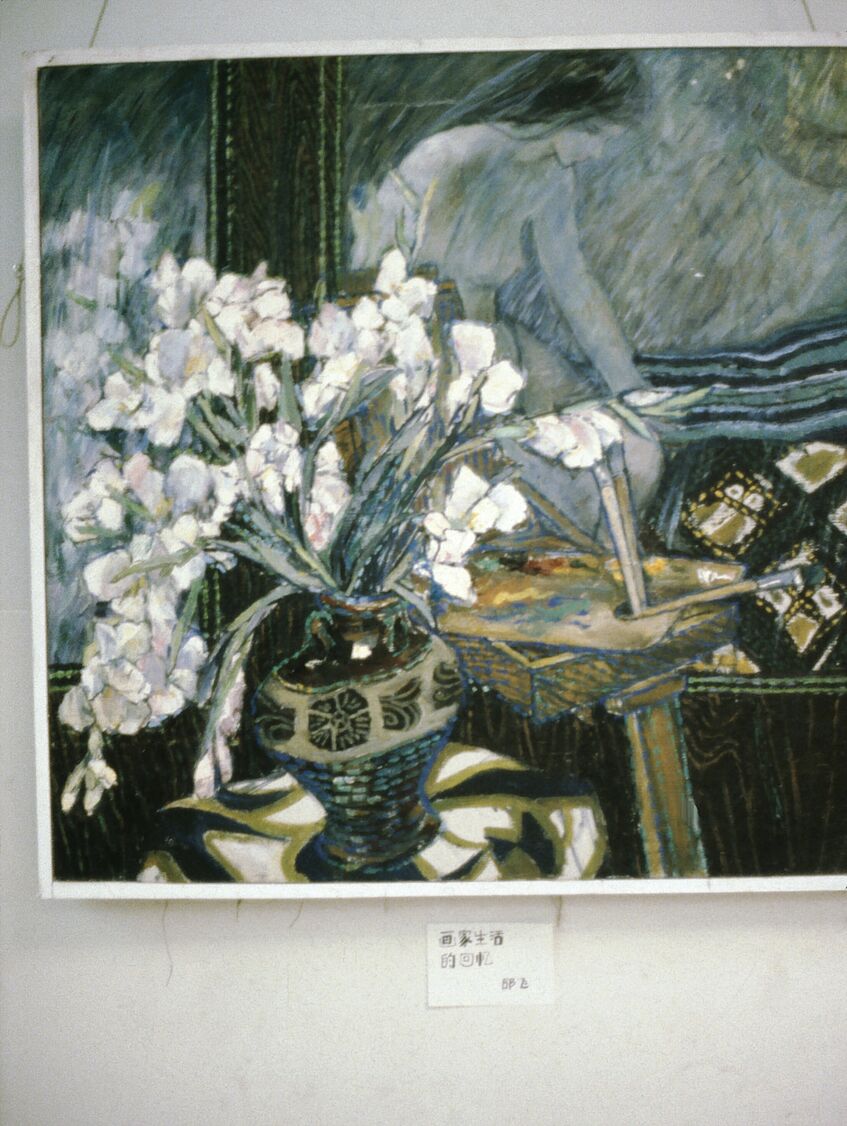
《画家生活的回忆》"Memories of the Painter's Life" (oil on canvas, 1980)
Song Hong 宋红
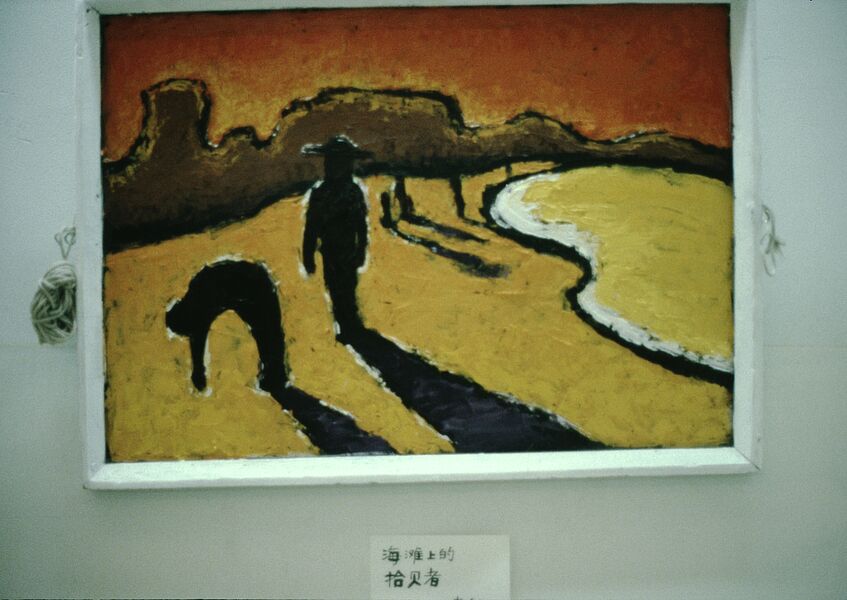
《海滩上的拾贝者》"Collecting Shells at the Beach" (oil on wood panel, 1980)
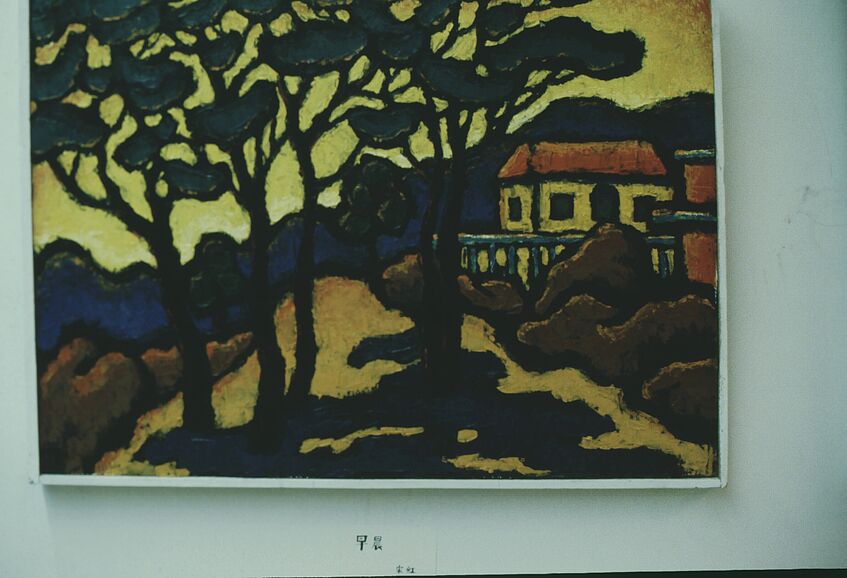
《早晨》"Morning" (oil on wood panel, 1980)
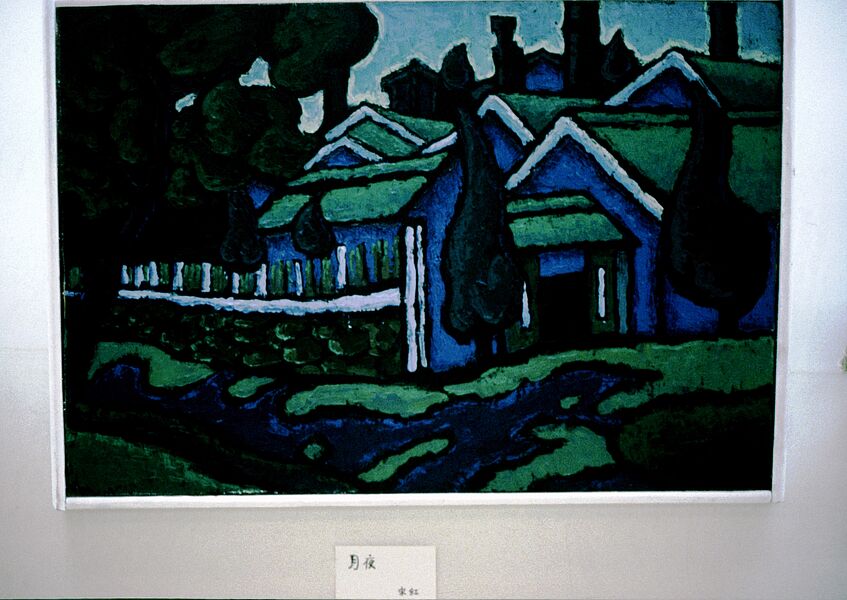
《月夜》"Moonlit Night" (oil on wood panel, 1980)
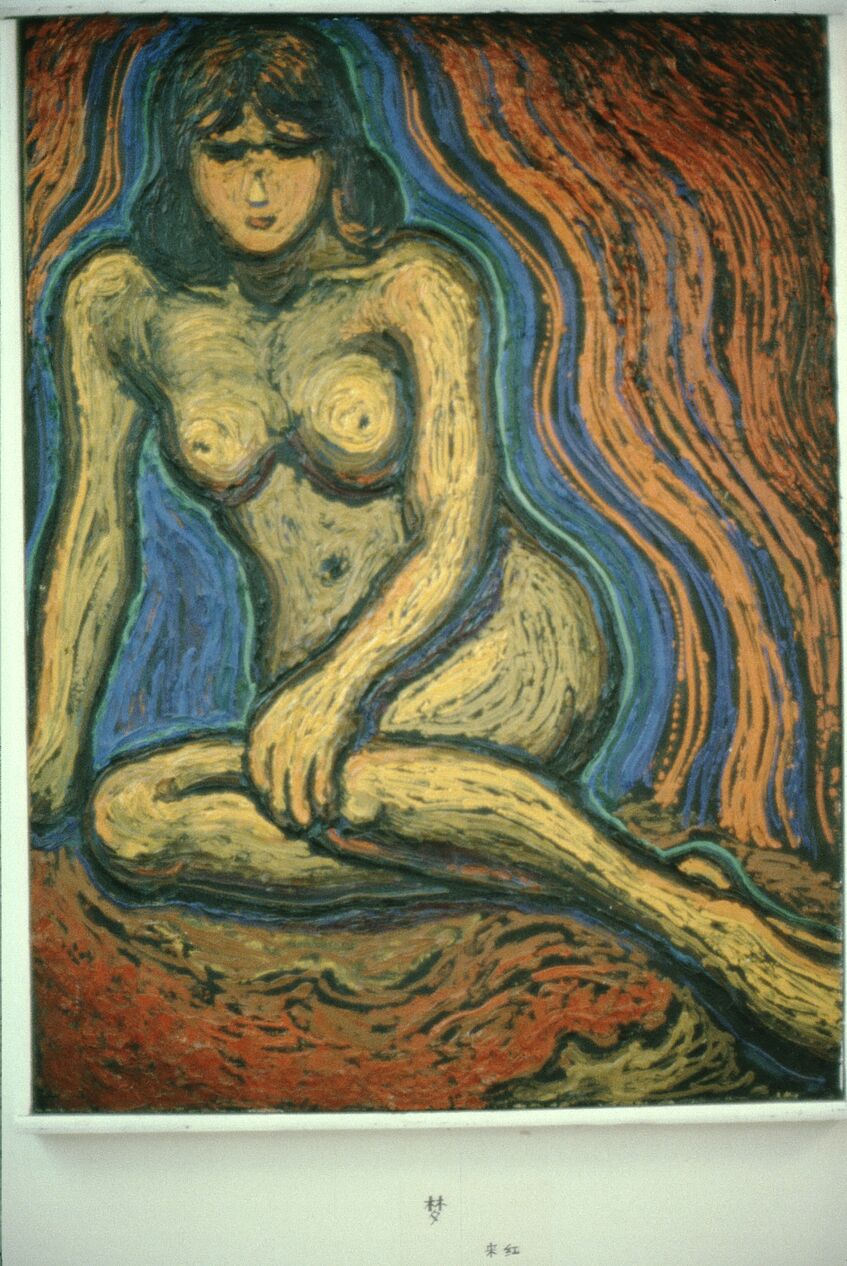
《梦》"Dream" (oil on wood panel)
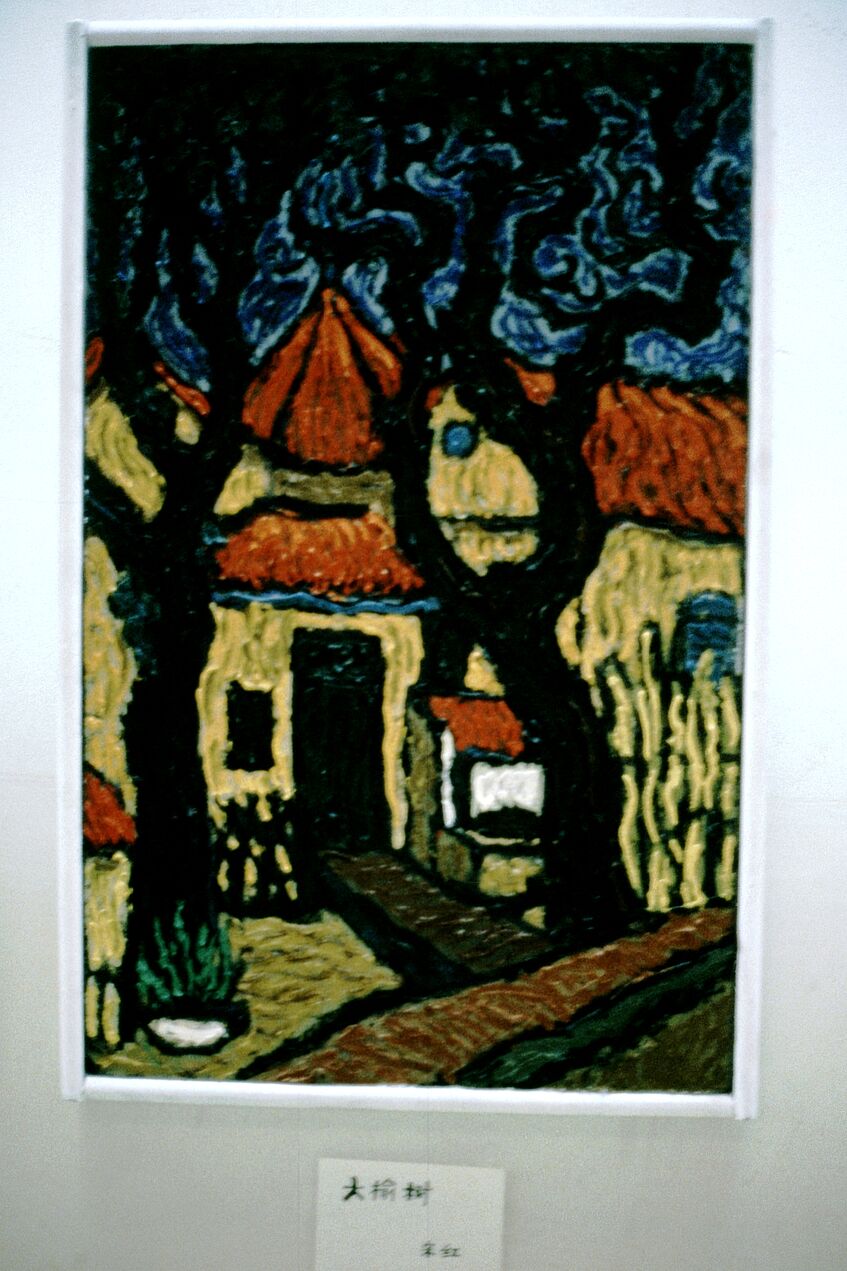
《大榆树》"Old Elm Trees" (oil on wood panel)
Wang Keping 王克平
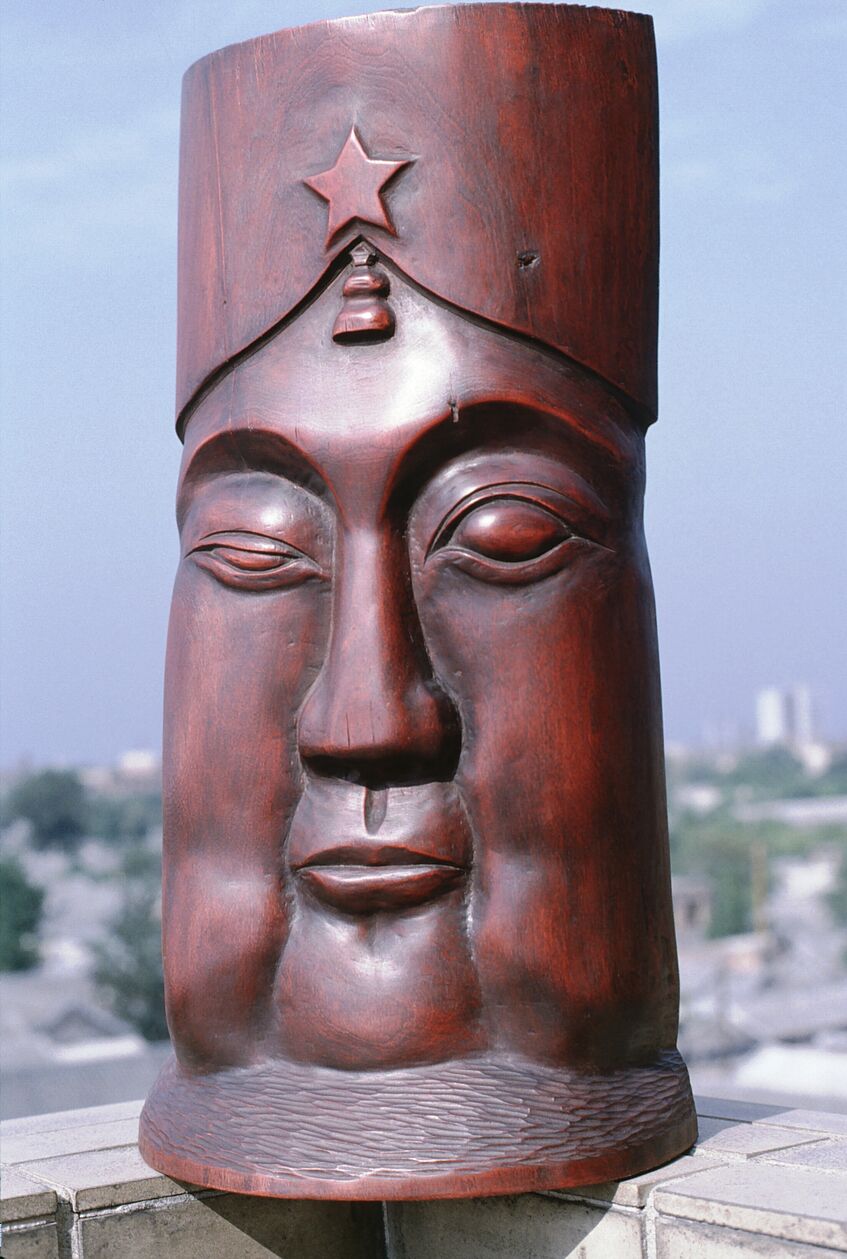
《偶像》"Idol"
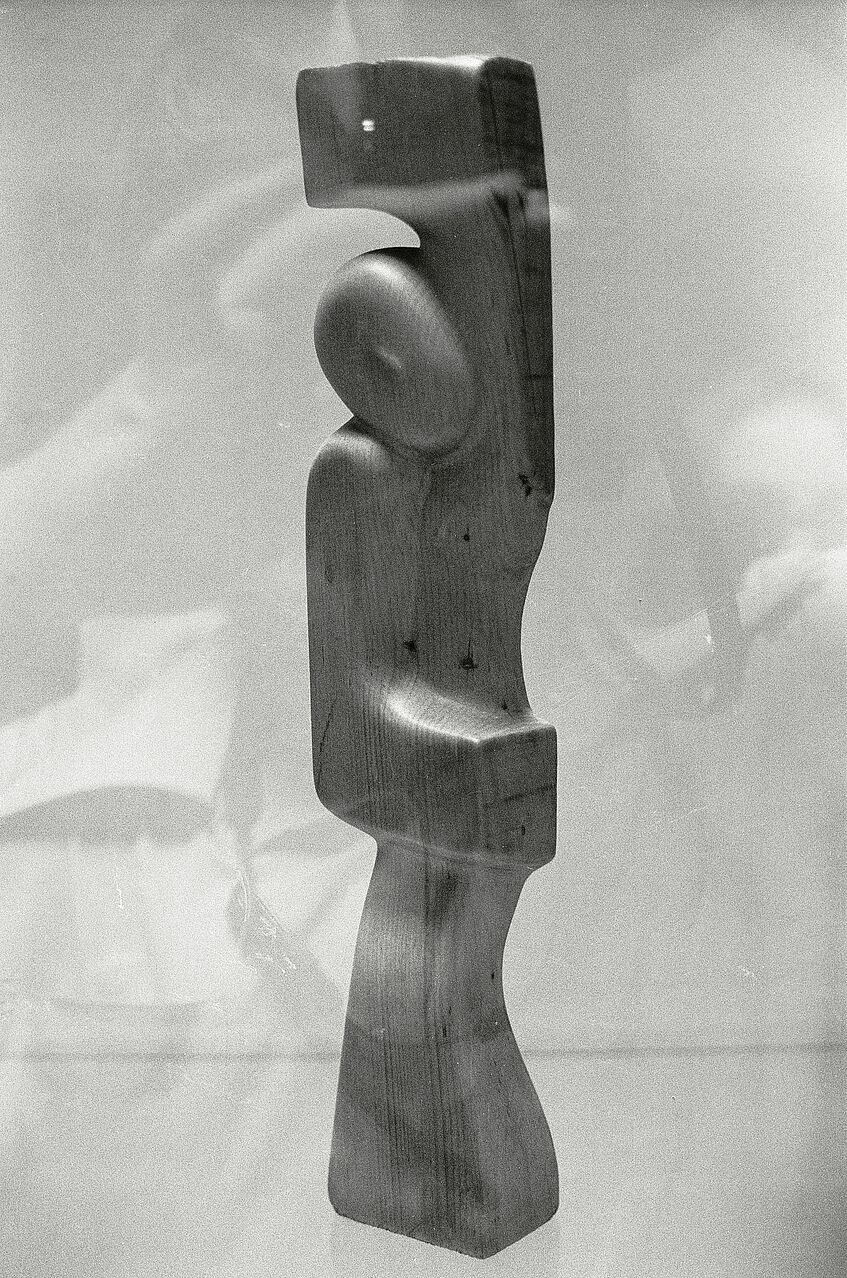
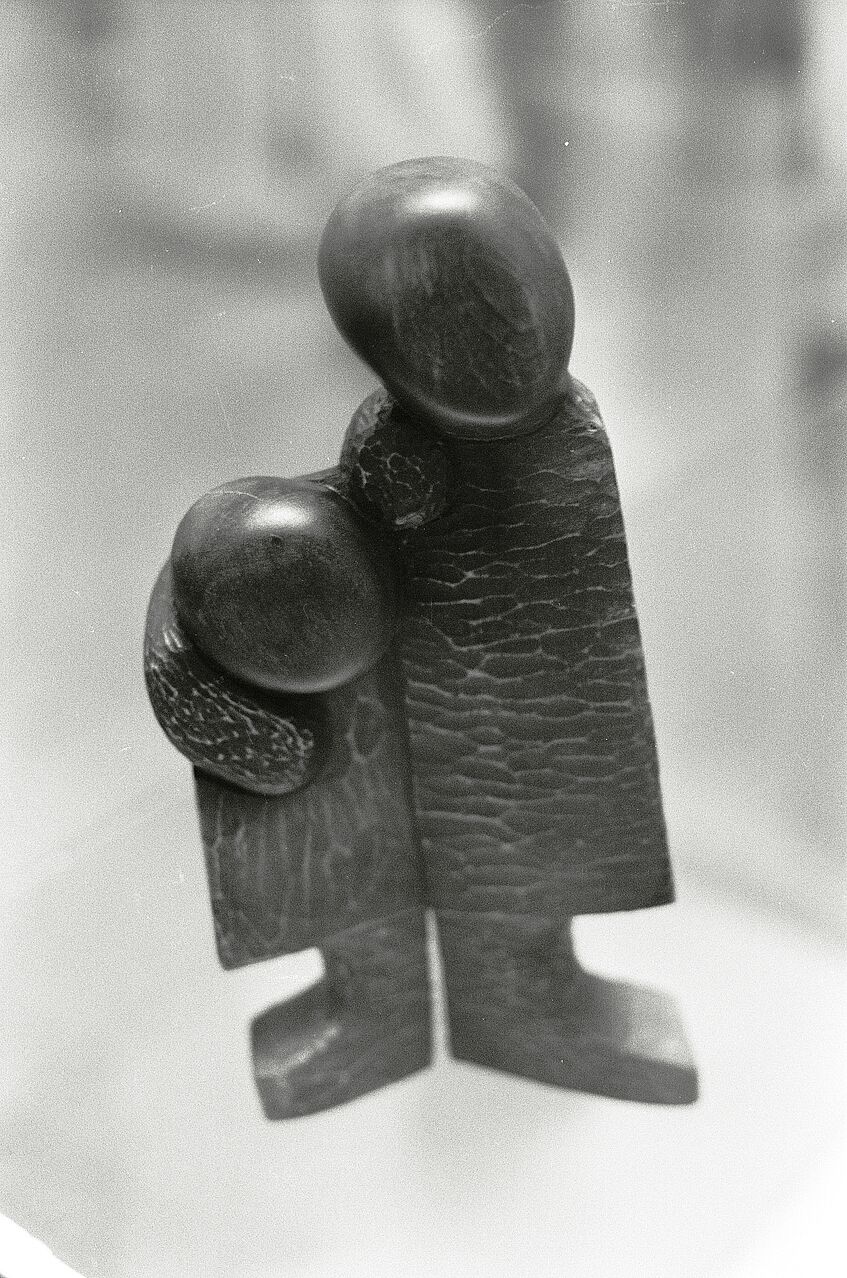
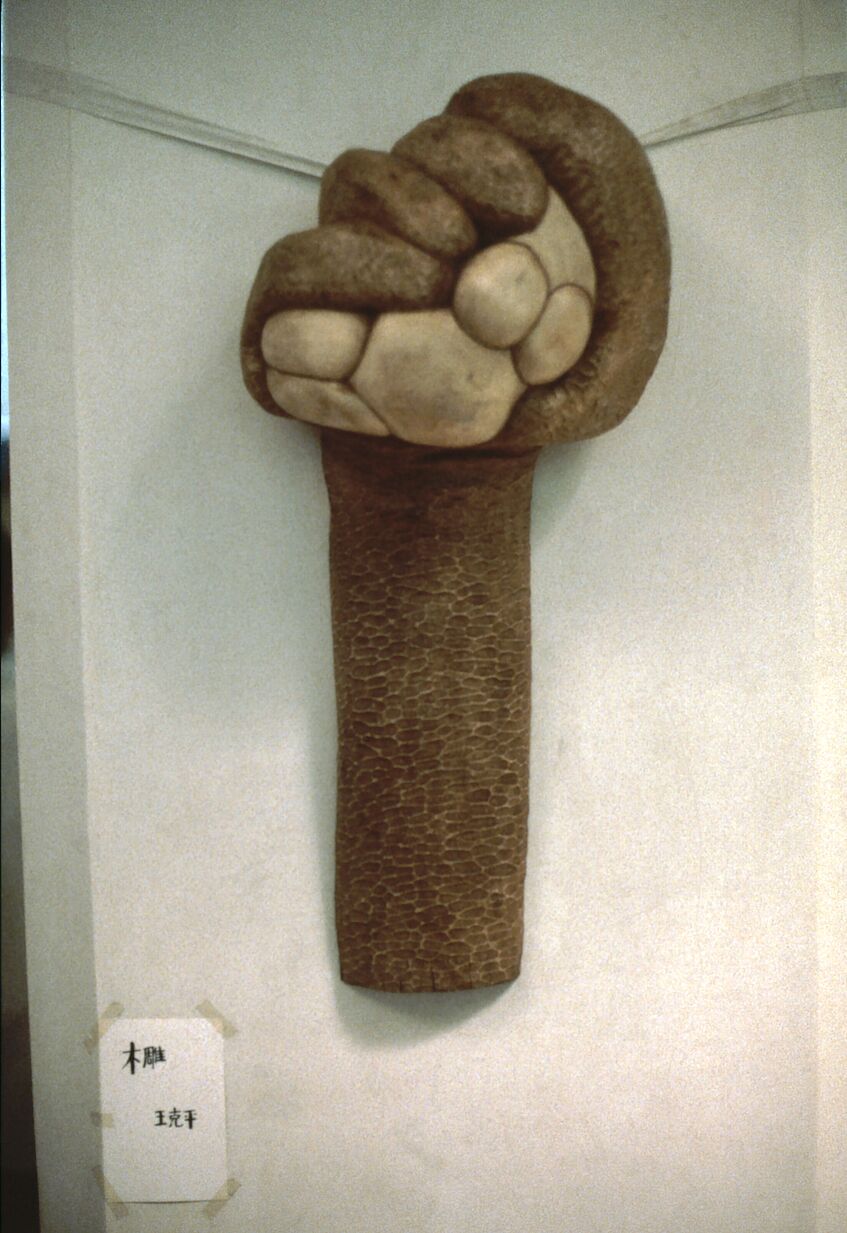
《木雕》"Holzskulptur" (1980)
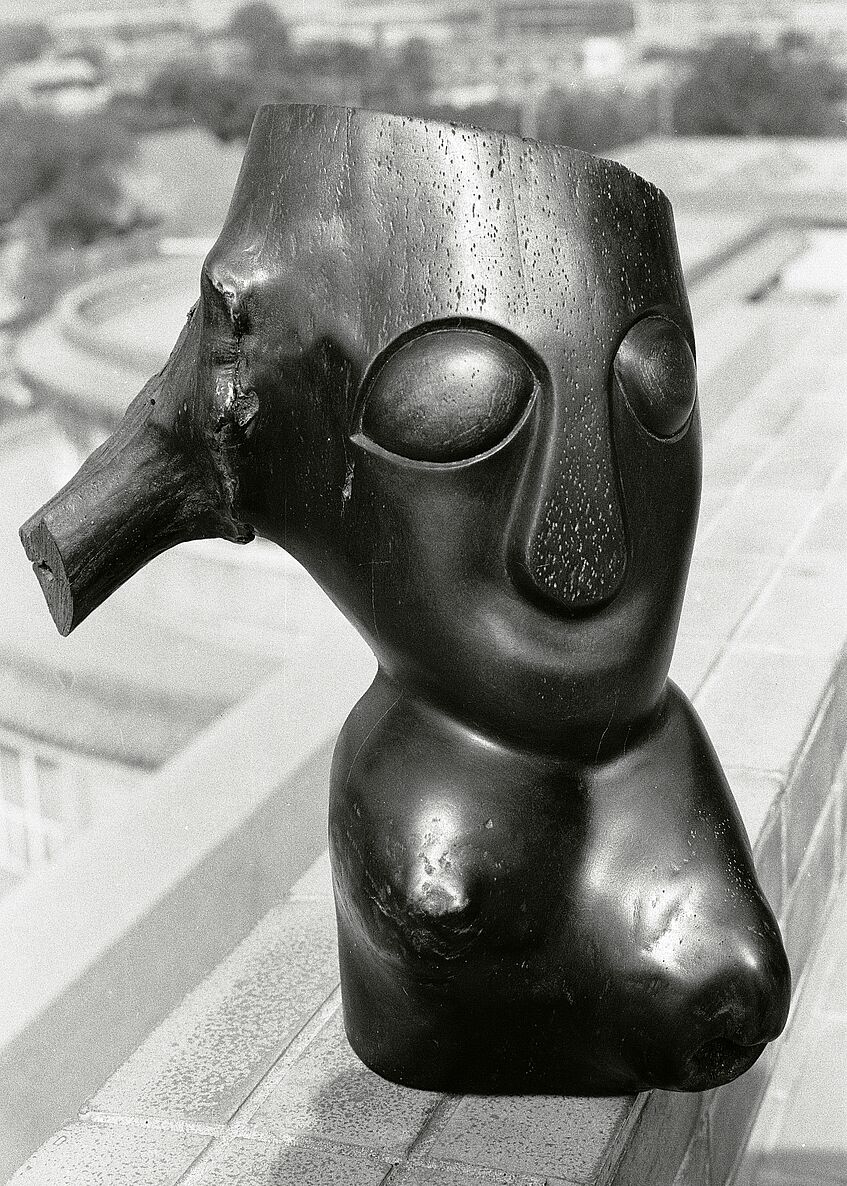
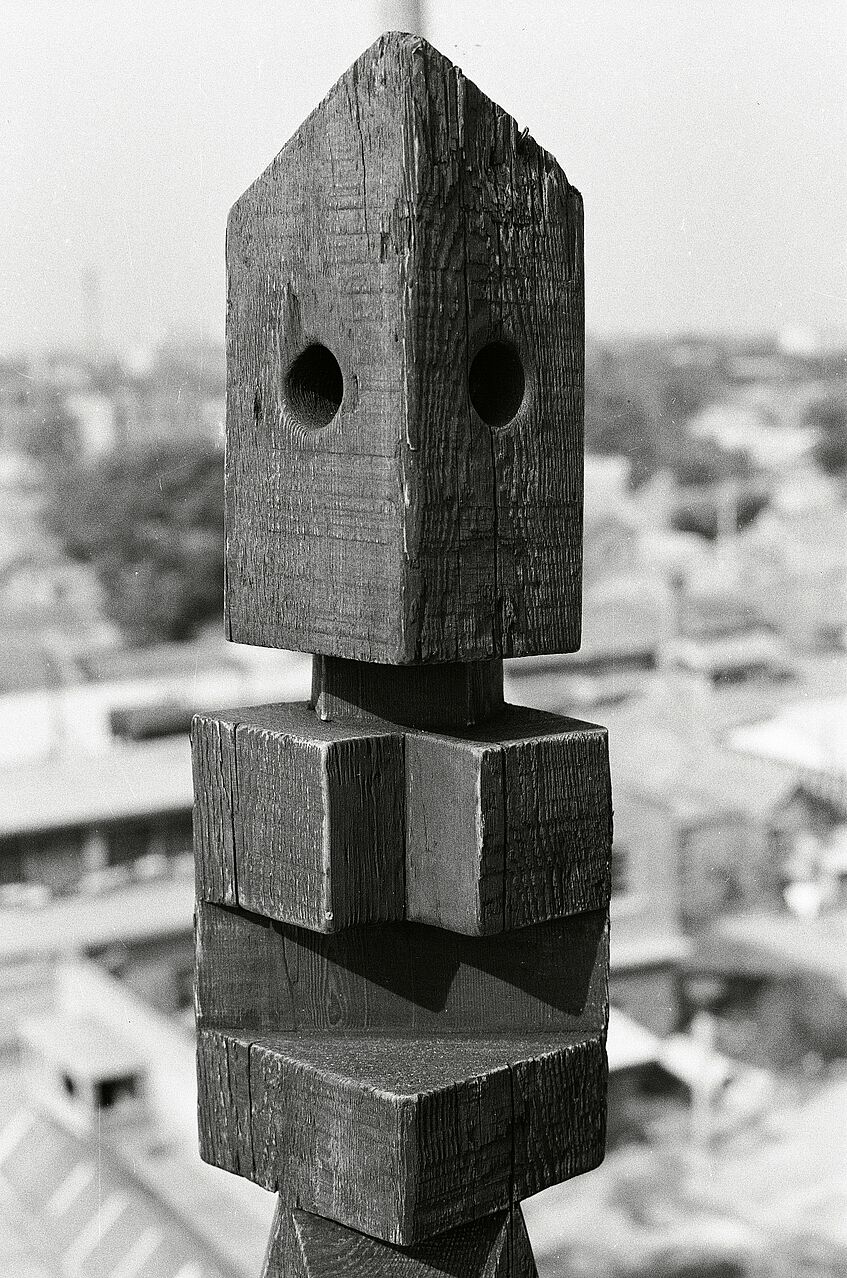
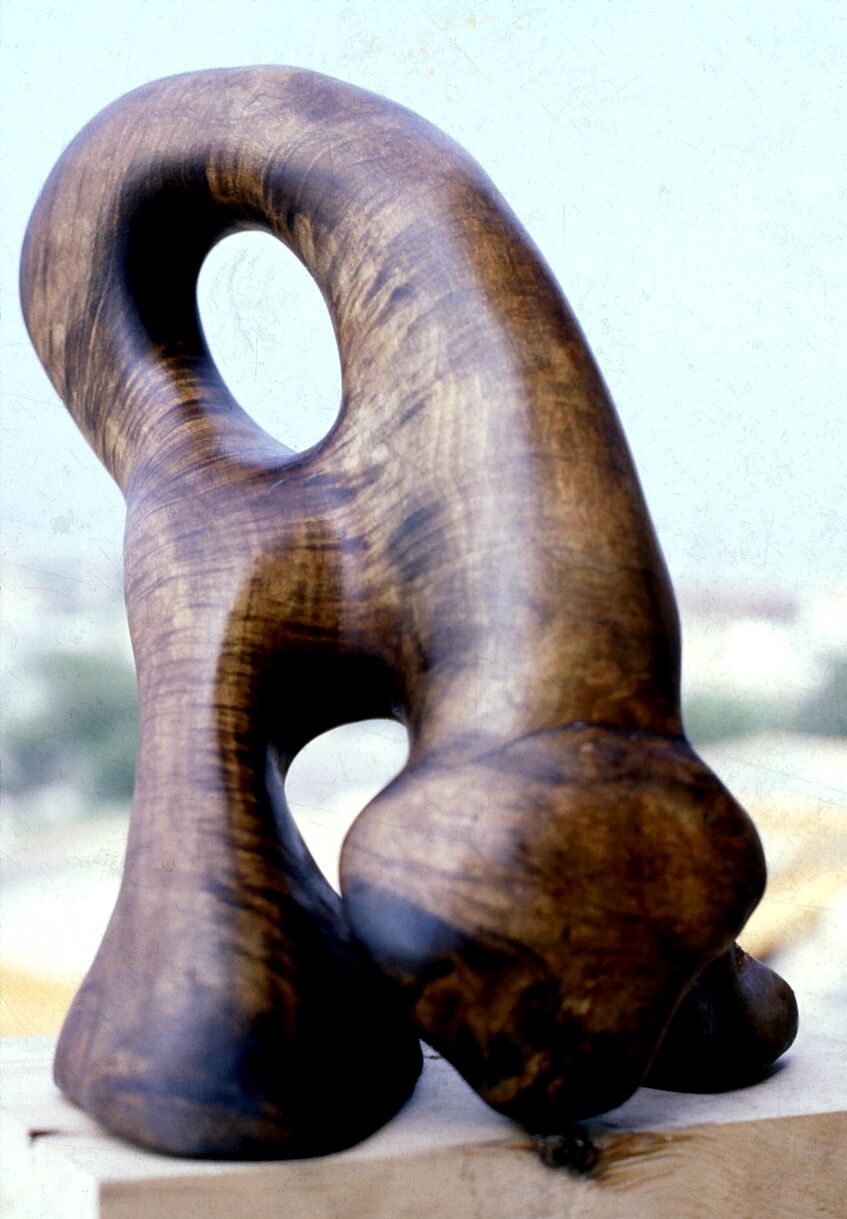
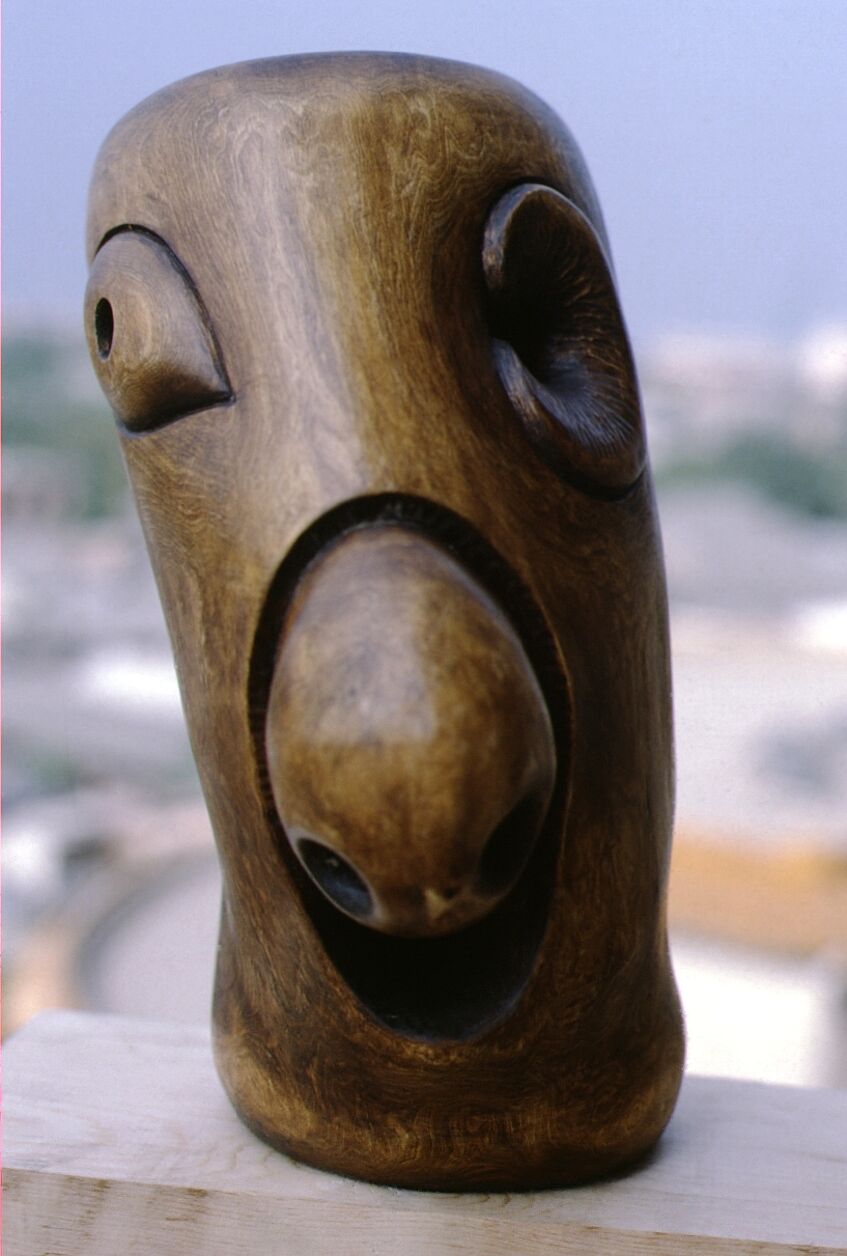
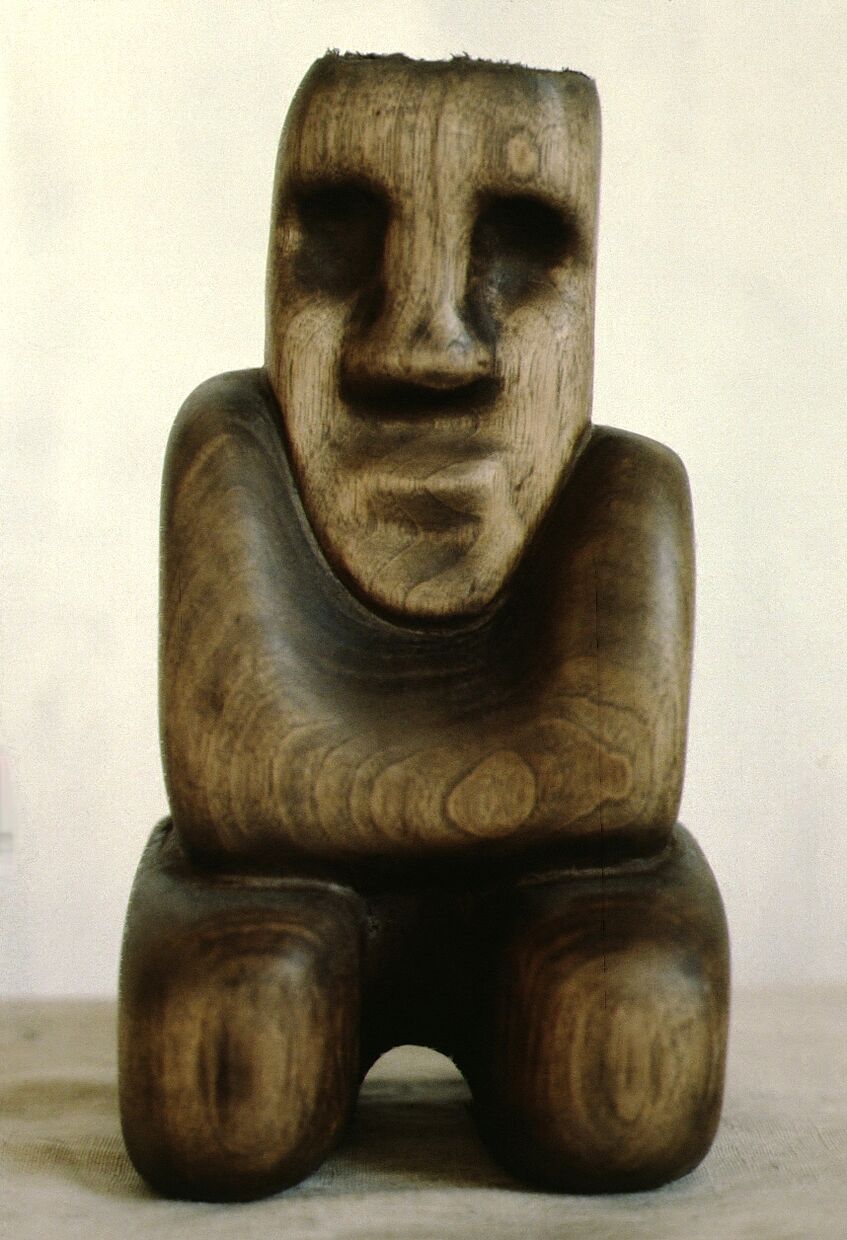
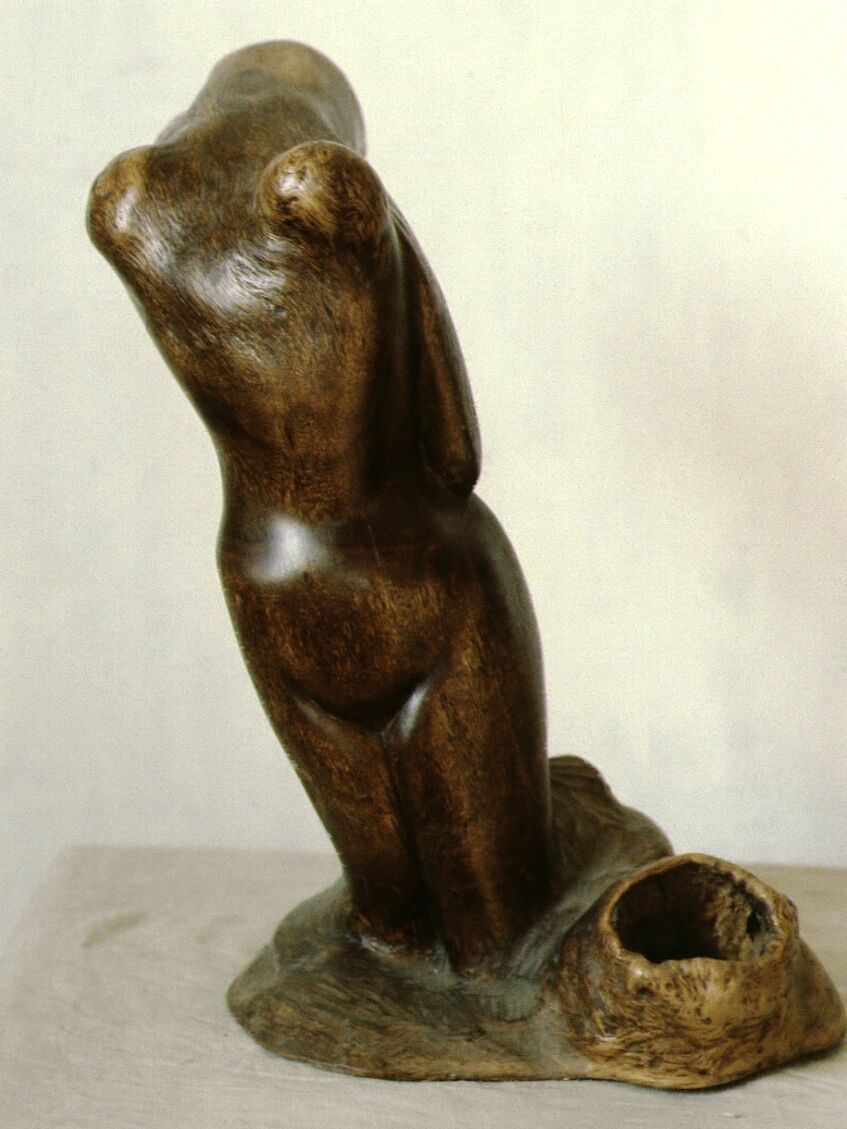
"Bathing Woman" (1979)
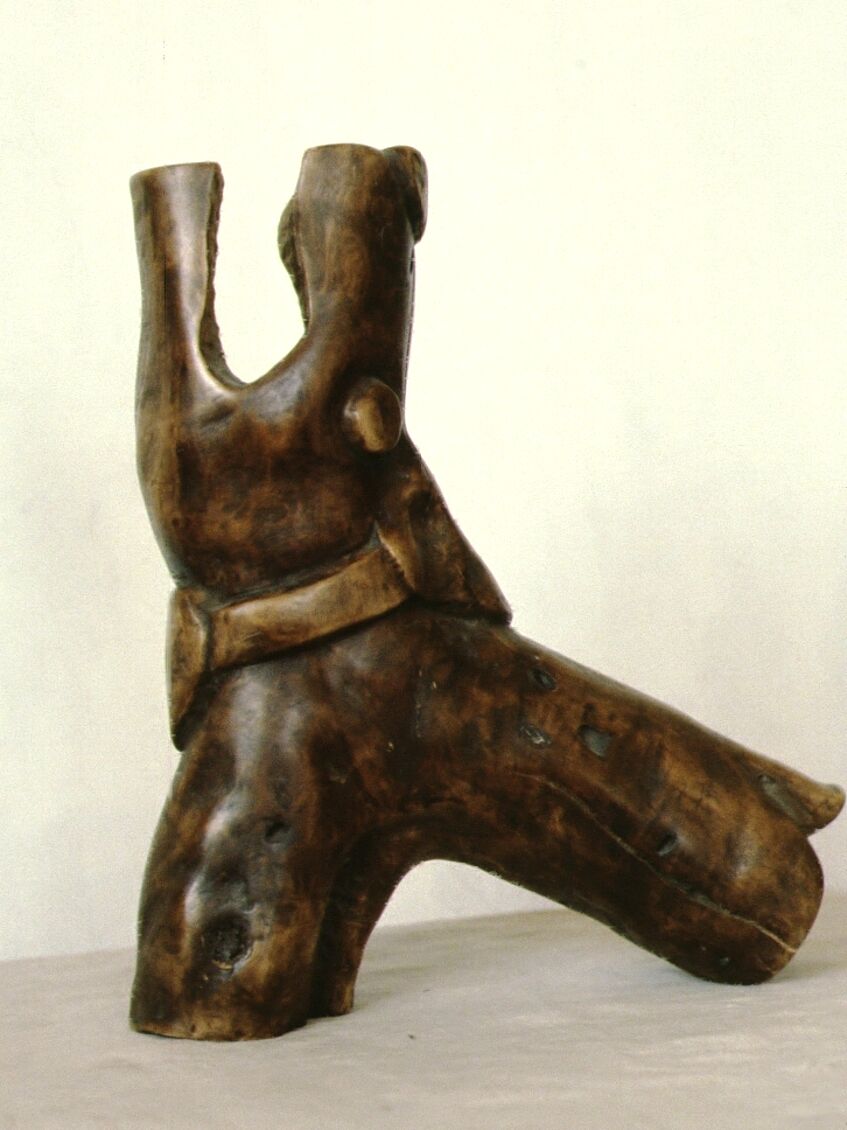
"Pillars of Society" (1979)
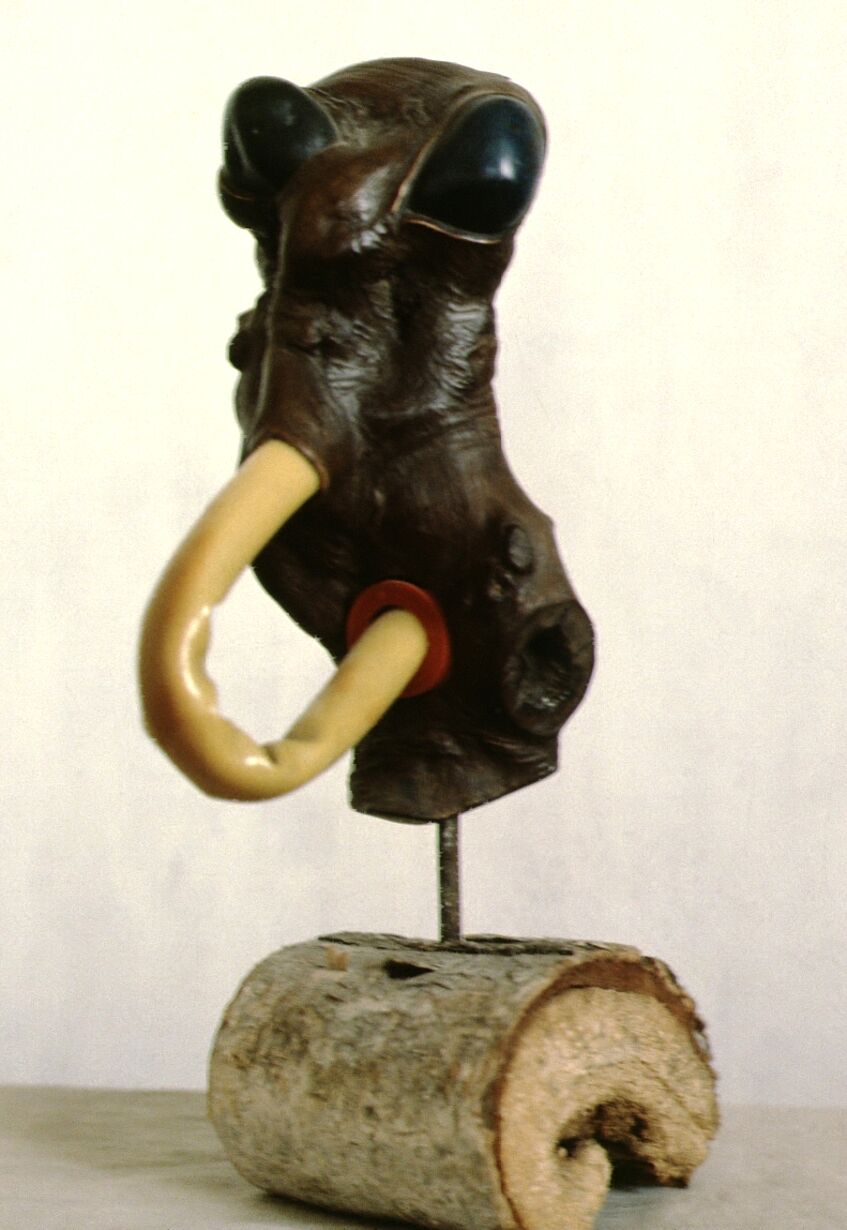
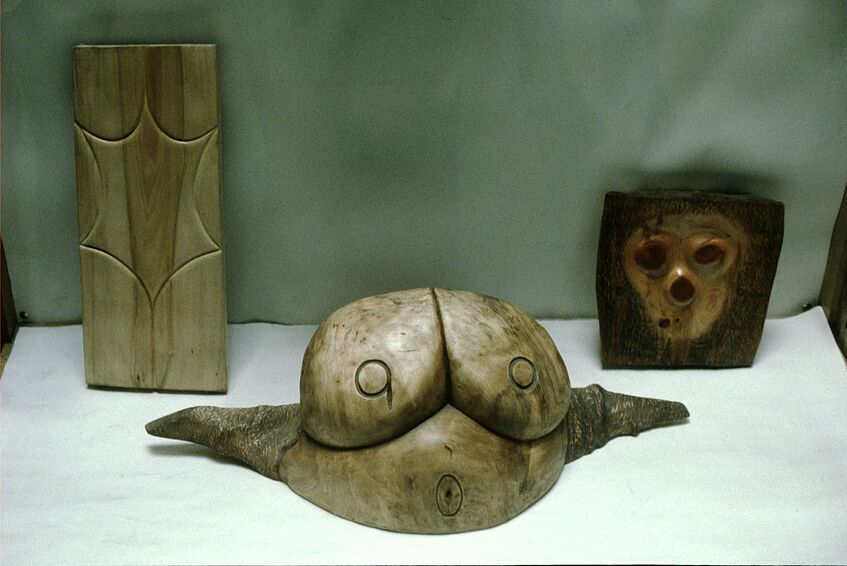
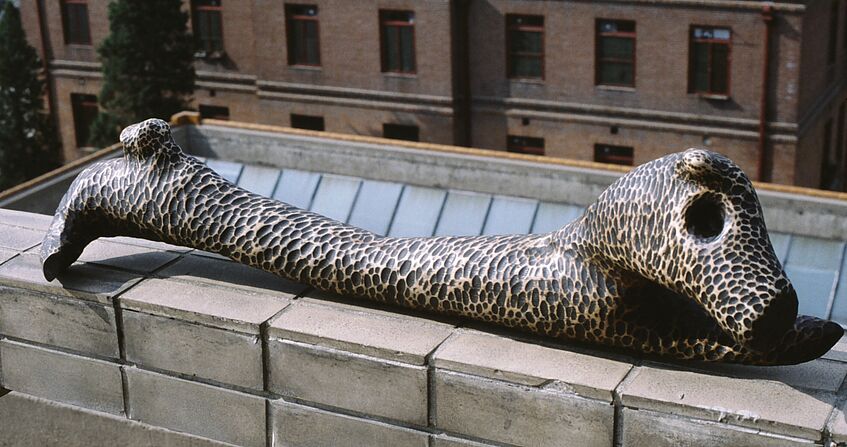
Yan Li 严力
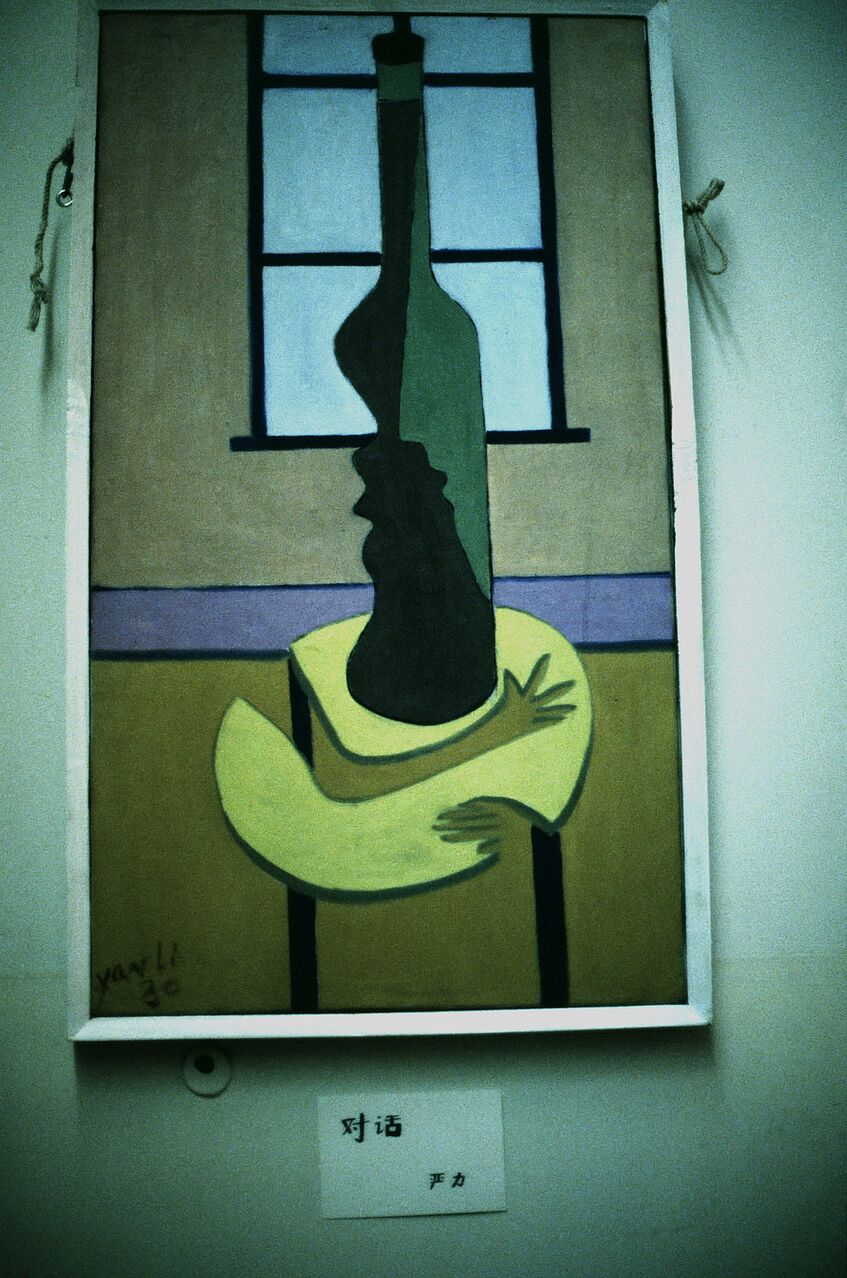
《对话》"Dialogue" (oil on canvas)
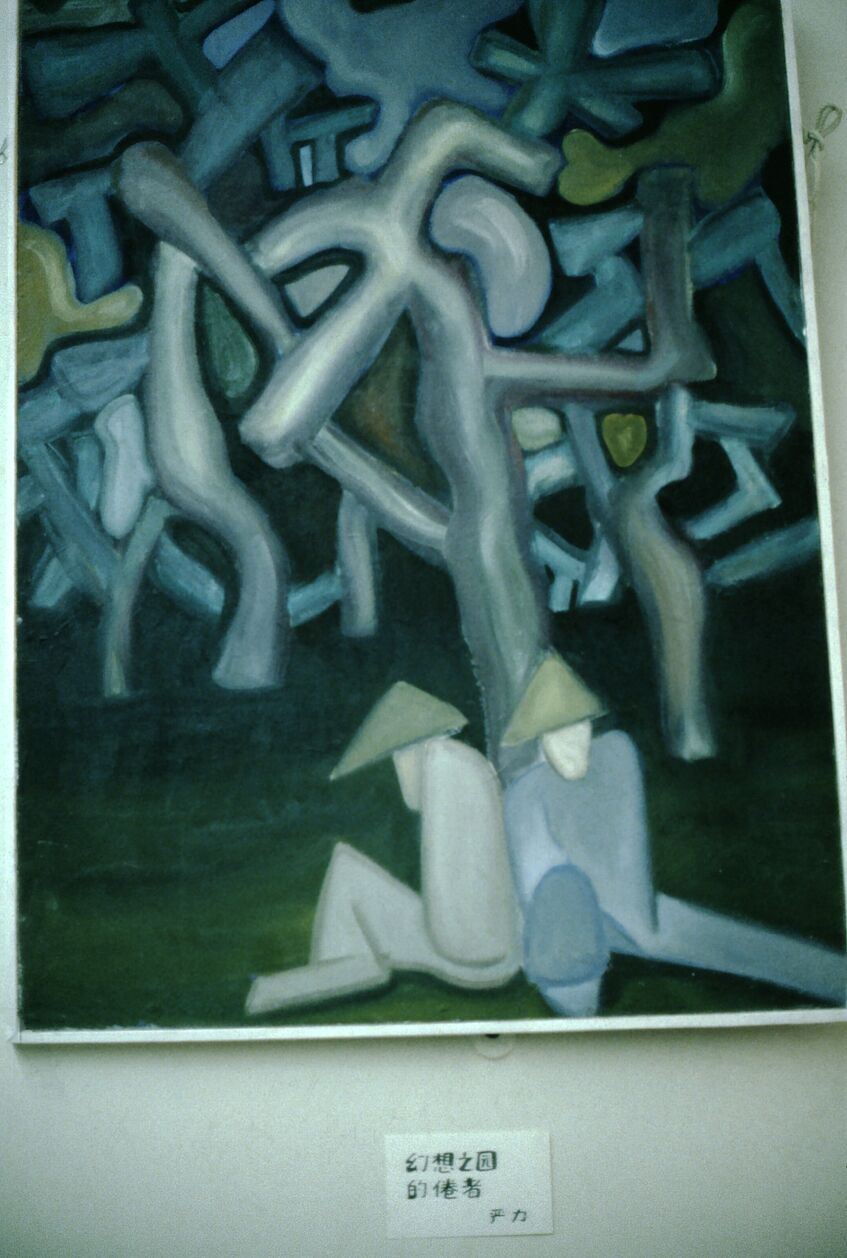
《幻想之园的倦者》"Tired in the Garden of Fantasies" (oil on canvas)
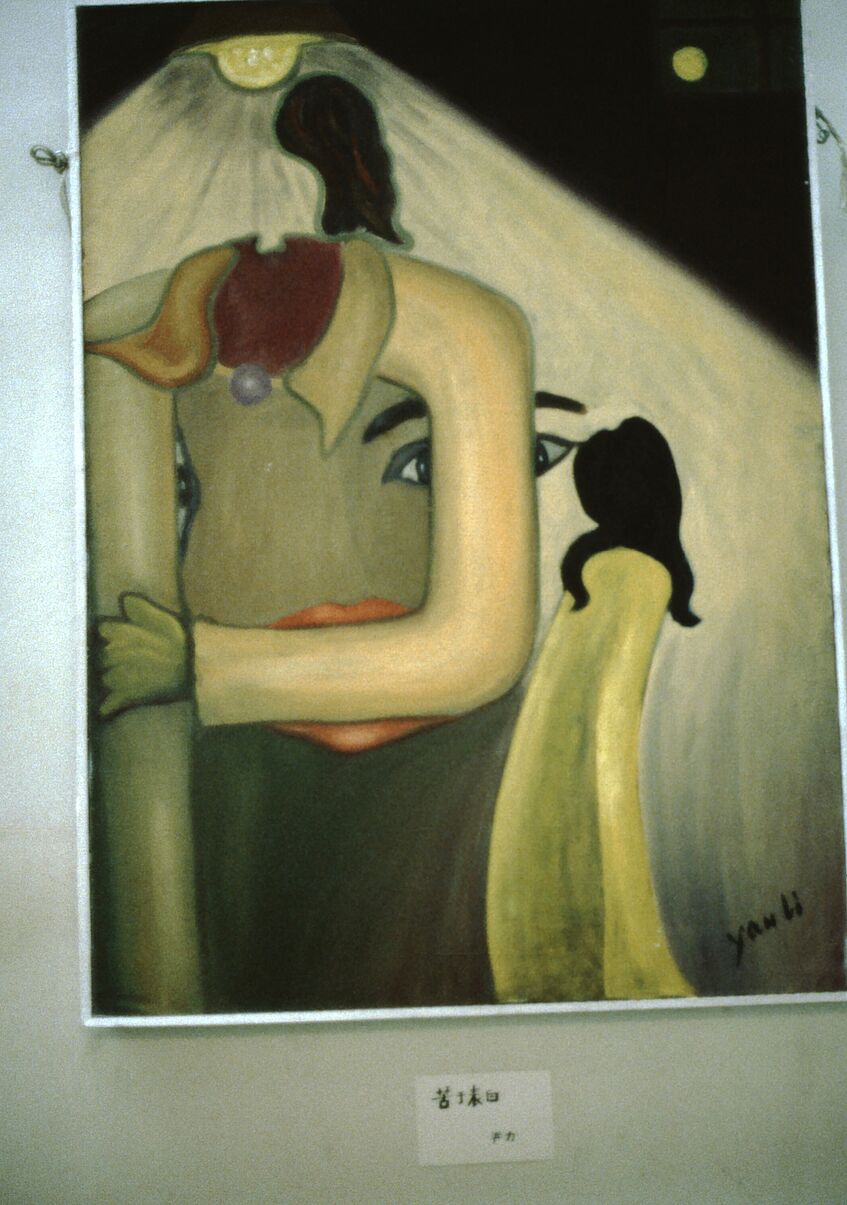
《苦于表白》"Bitterness and Confession"
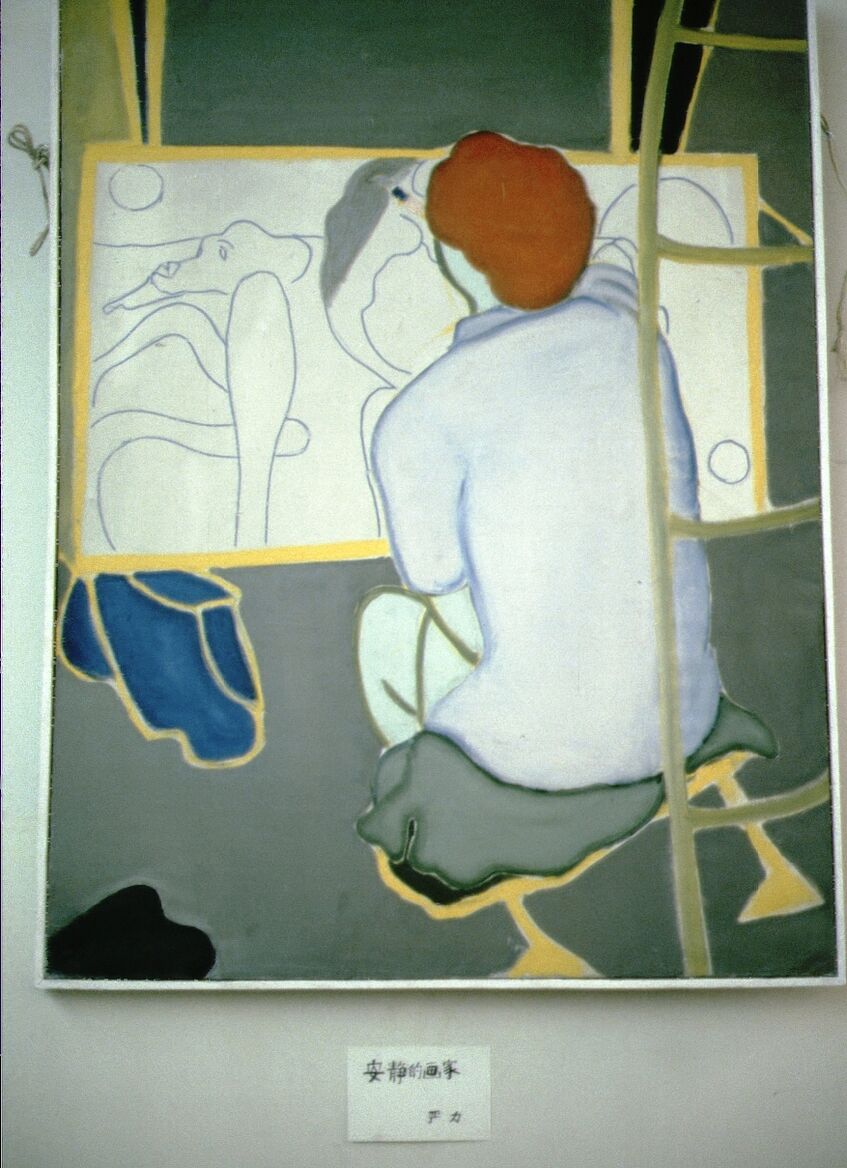
《安静的画家》"Quiet Painter"
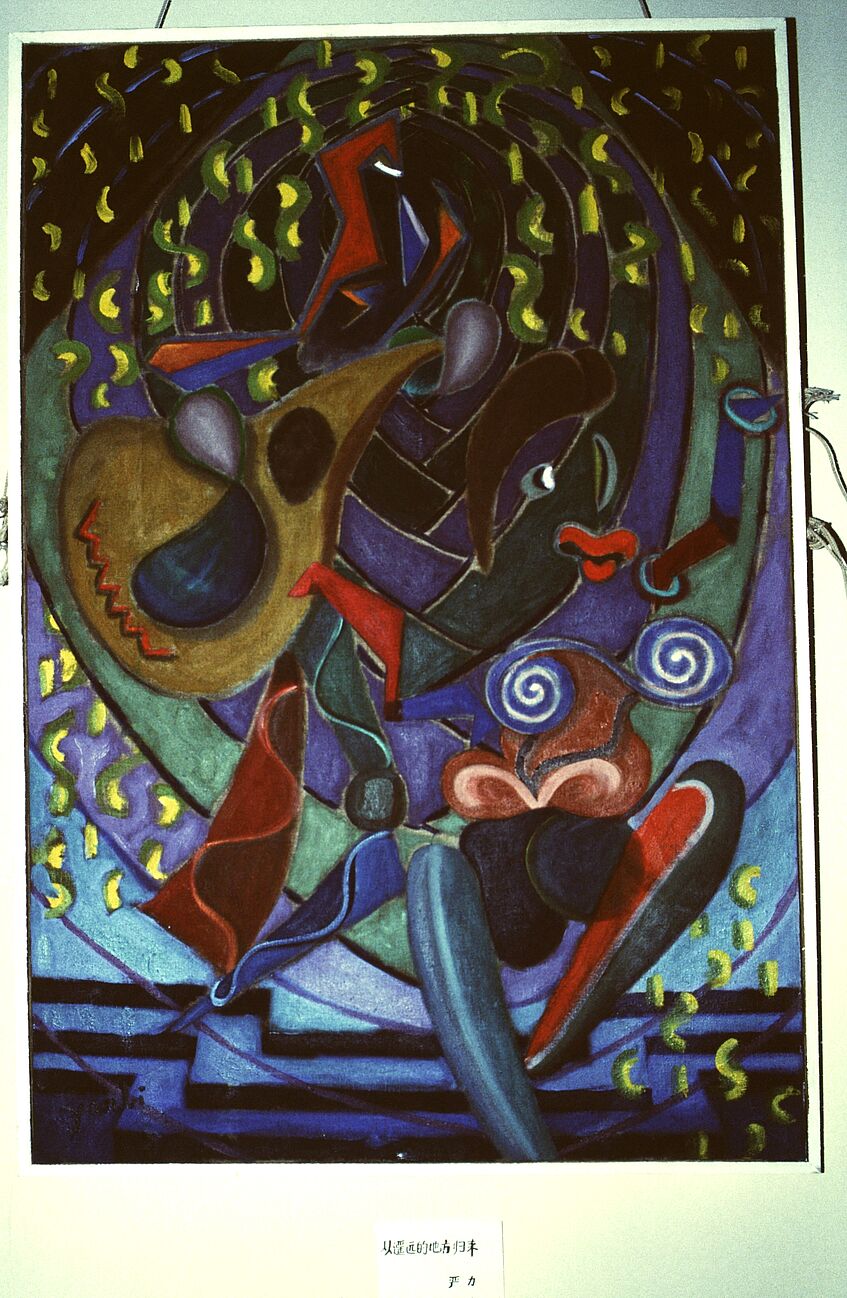
《从遥远的地方归来》"Returning from Far Away" (oil on canvas)
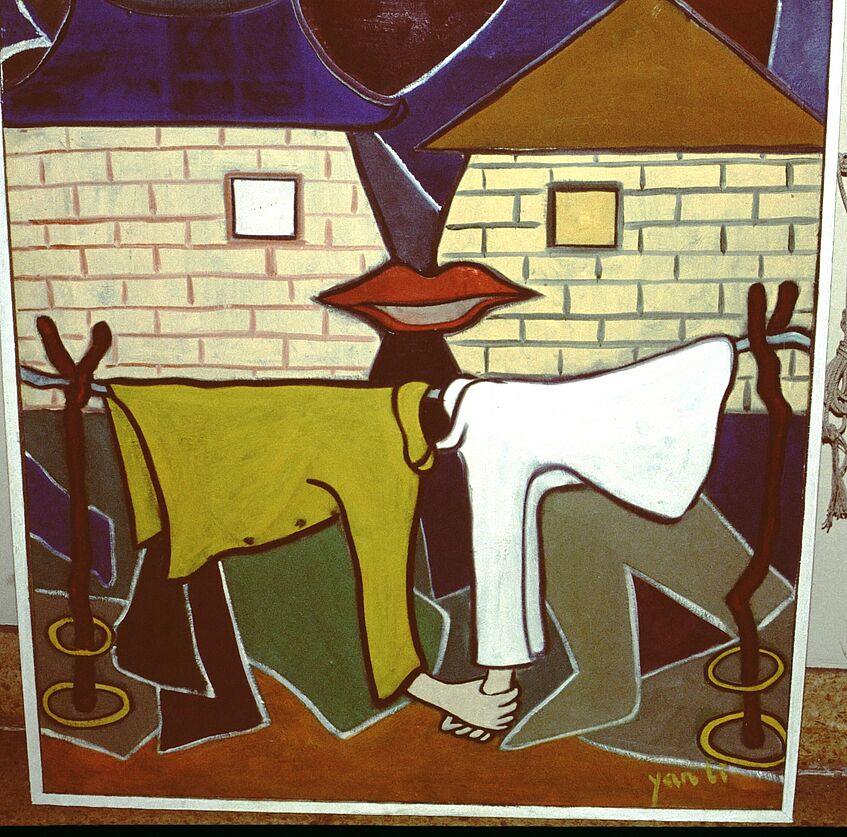
《和谐的家庭》"Harmonious Family" (oil on canvas)
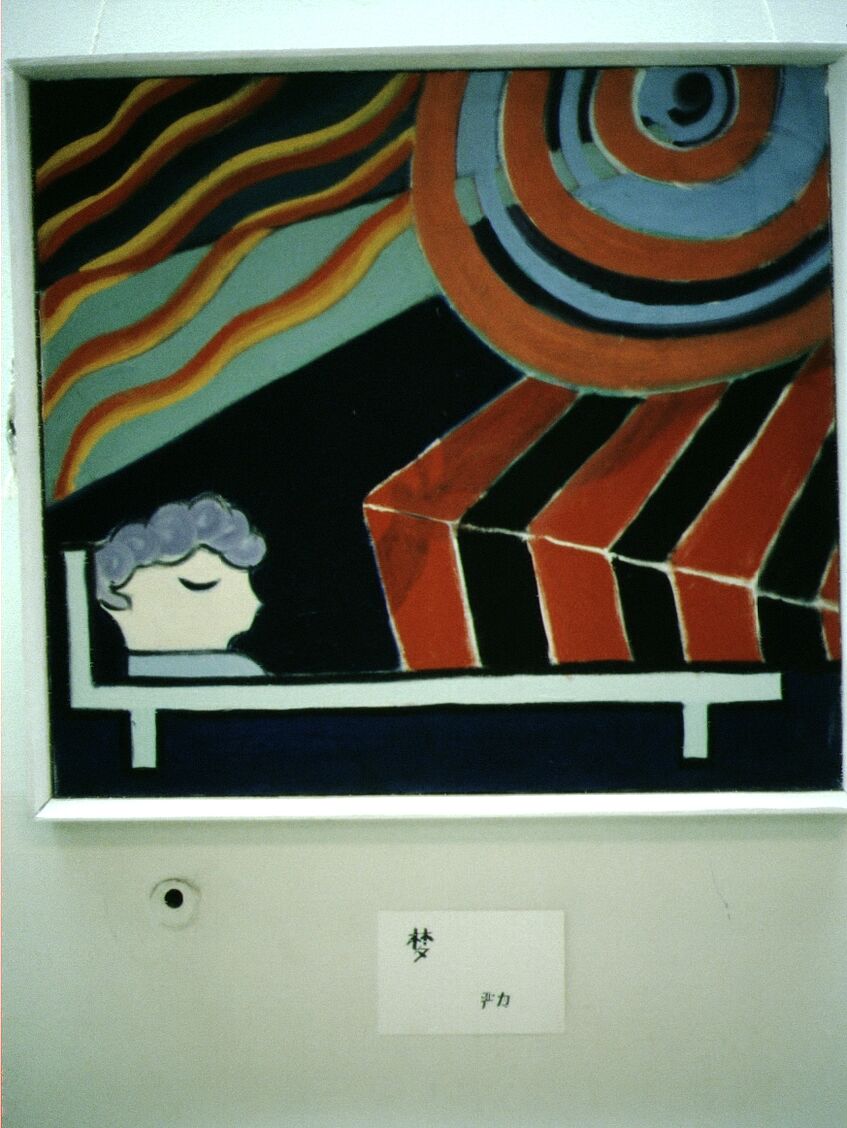
《梦》"Dream" (oil on canvas)
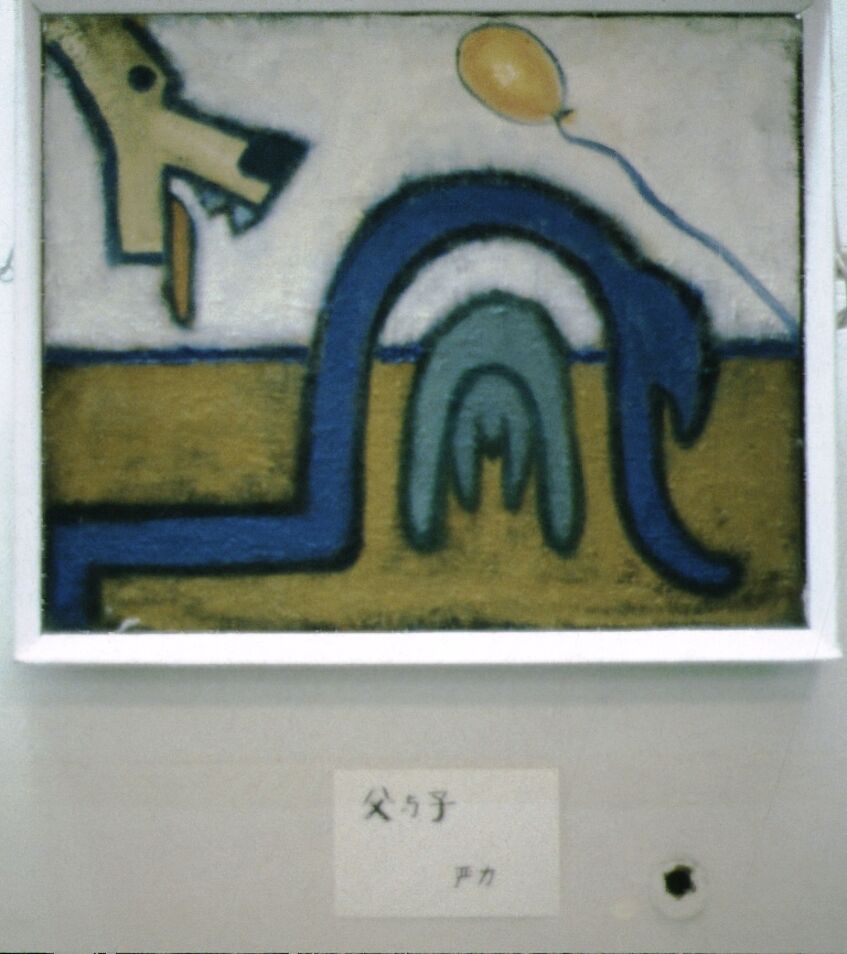
《父与子》"Father and Son" (oil on canvas)
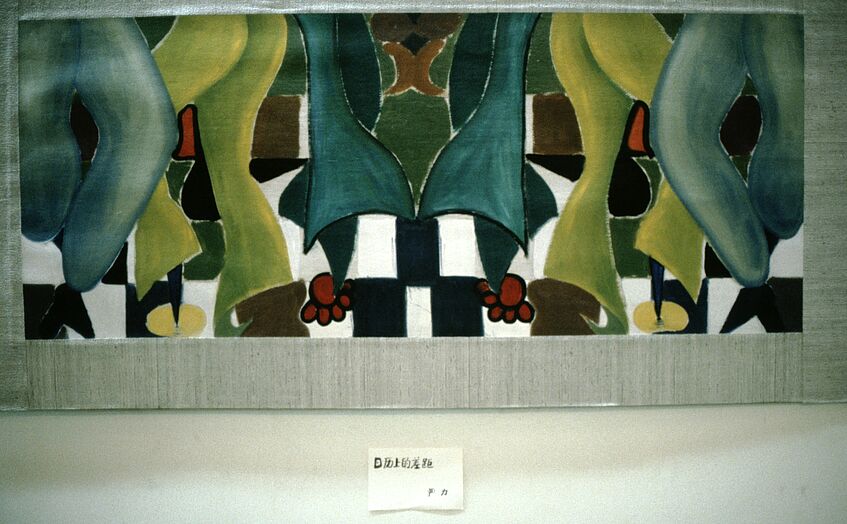
《日历上的差距》"Calendar Gap" (oil on canvas)
Yang Yiping 杨益平
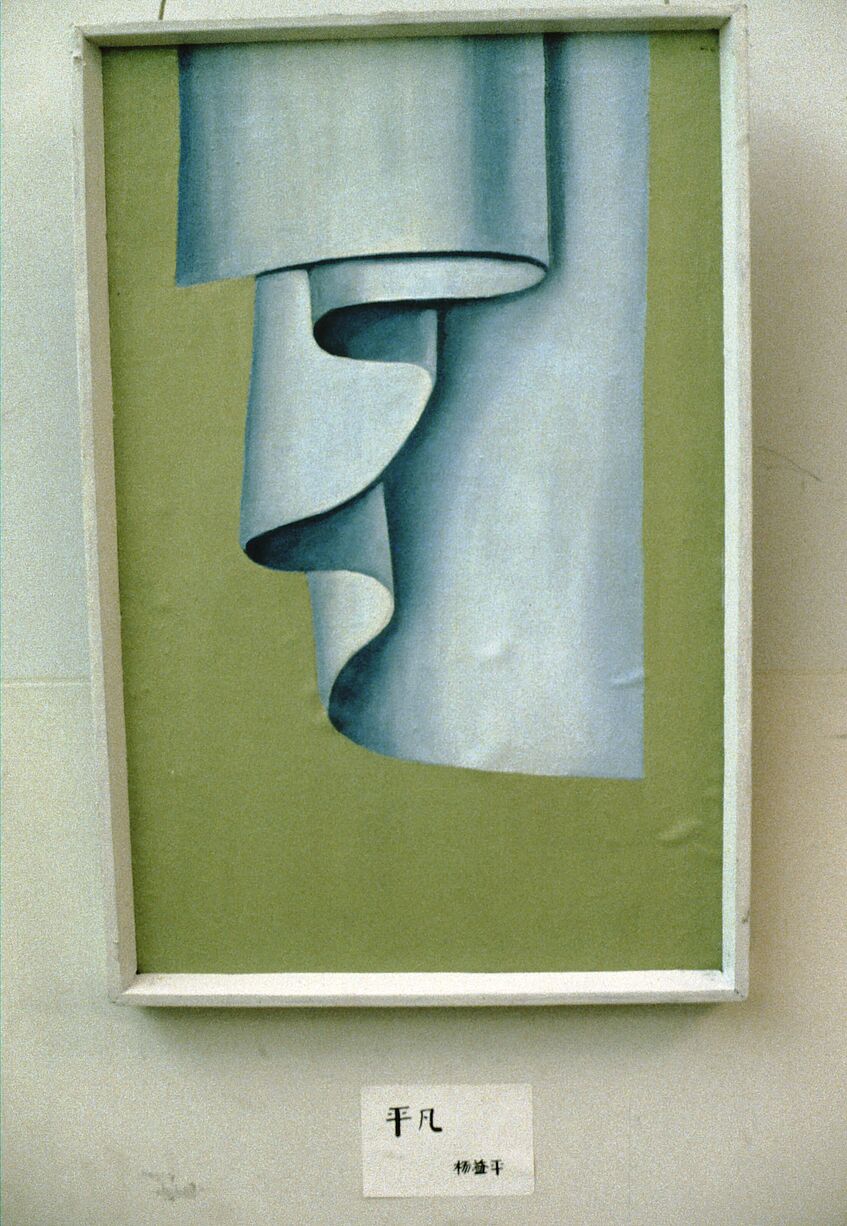
《平凡》"Uneventful" (oil on canvas)
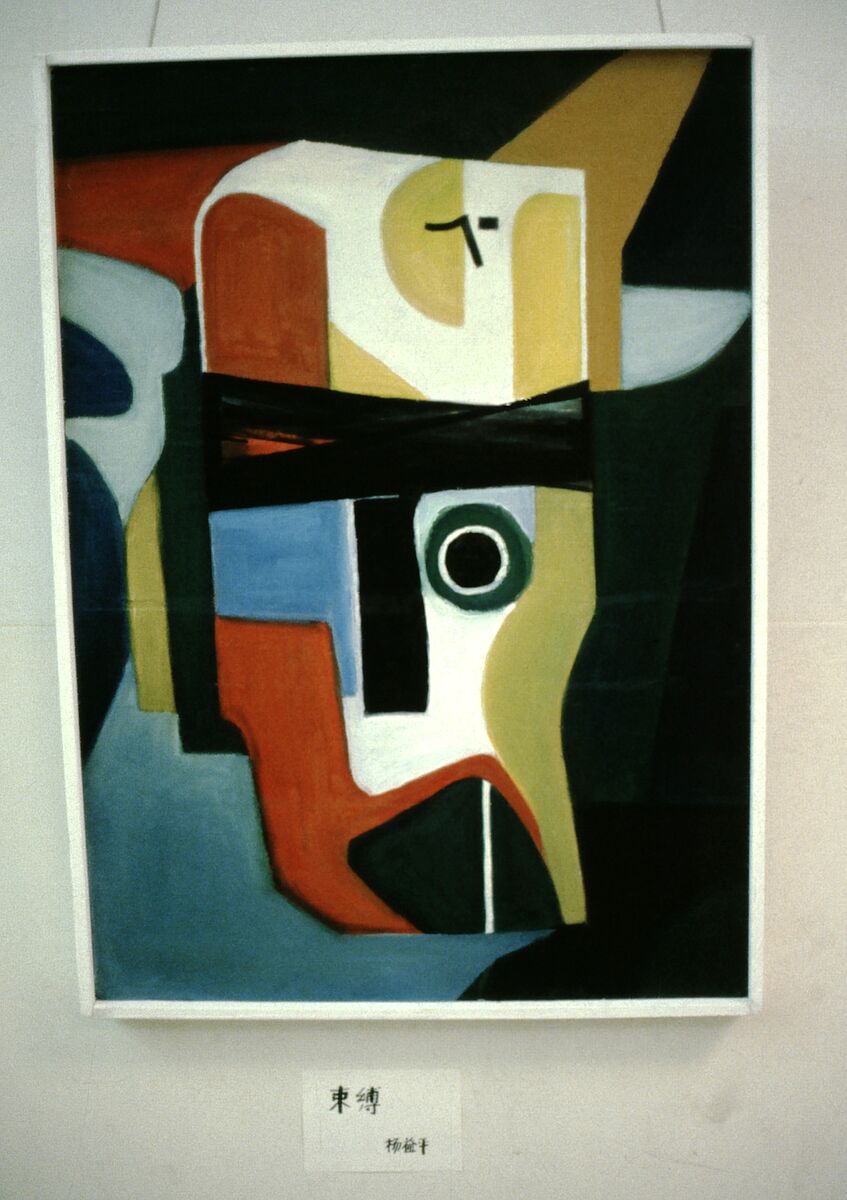
《束缚》"Binding" (oil on canvas)
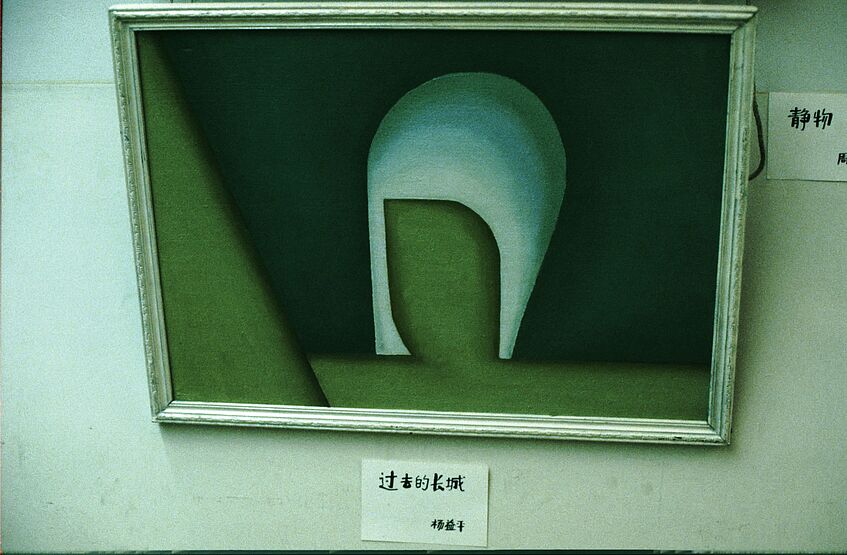
《过去的长城》"The Great Wall of the Past" (oil on canvas)
Zhu Jinshi 朱金石
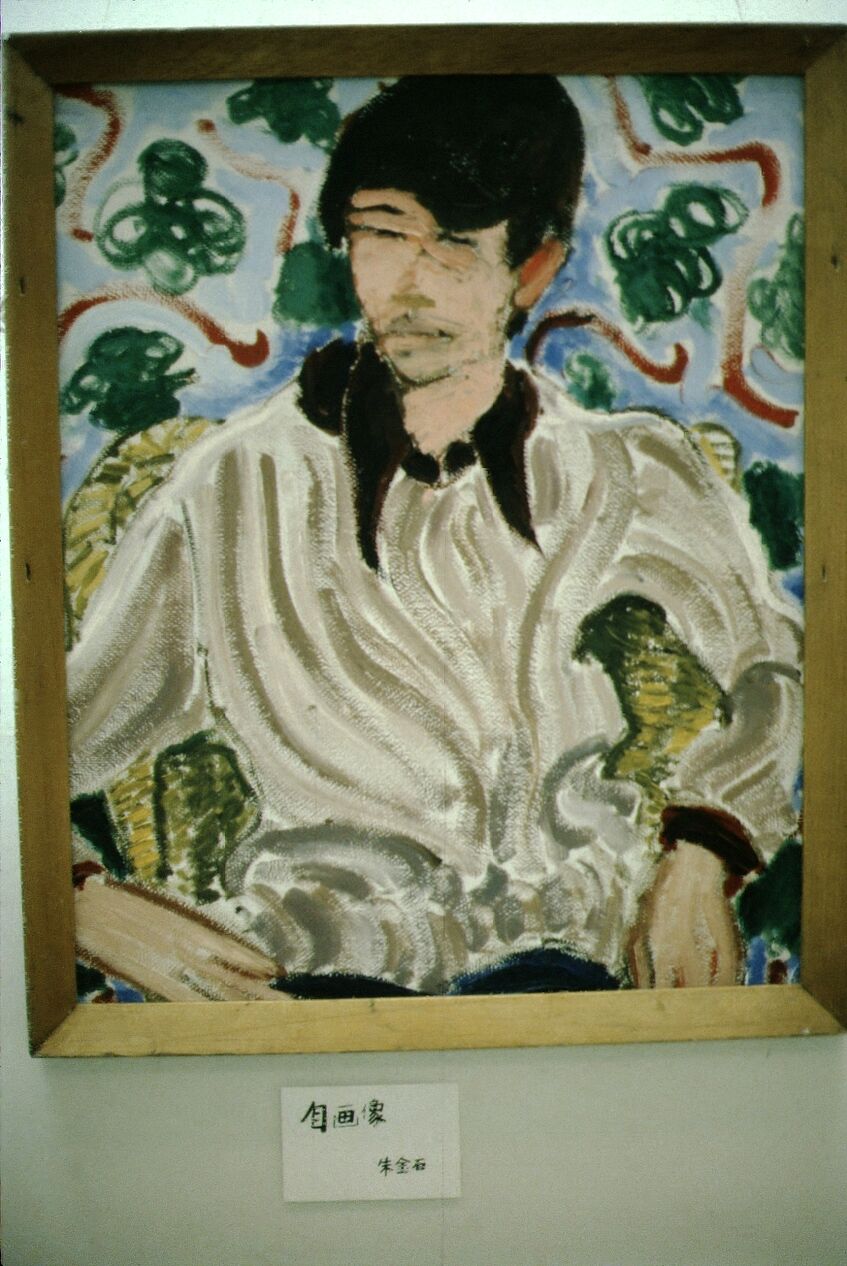
《自画像》"Self Portrait"
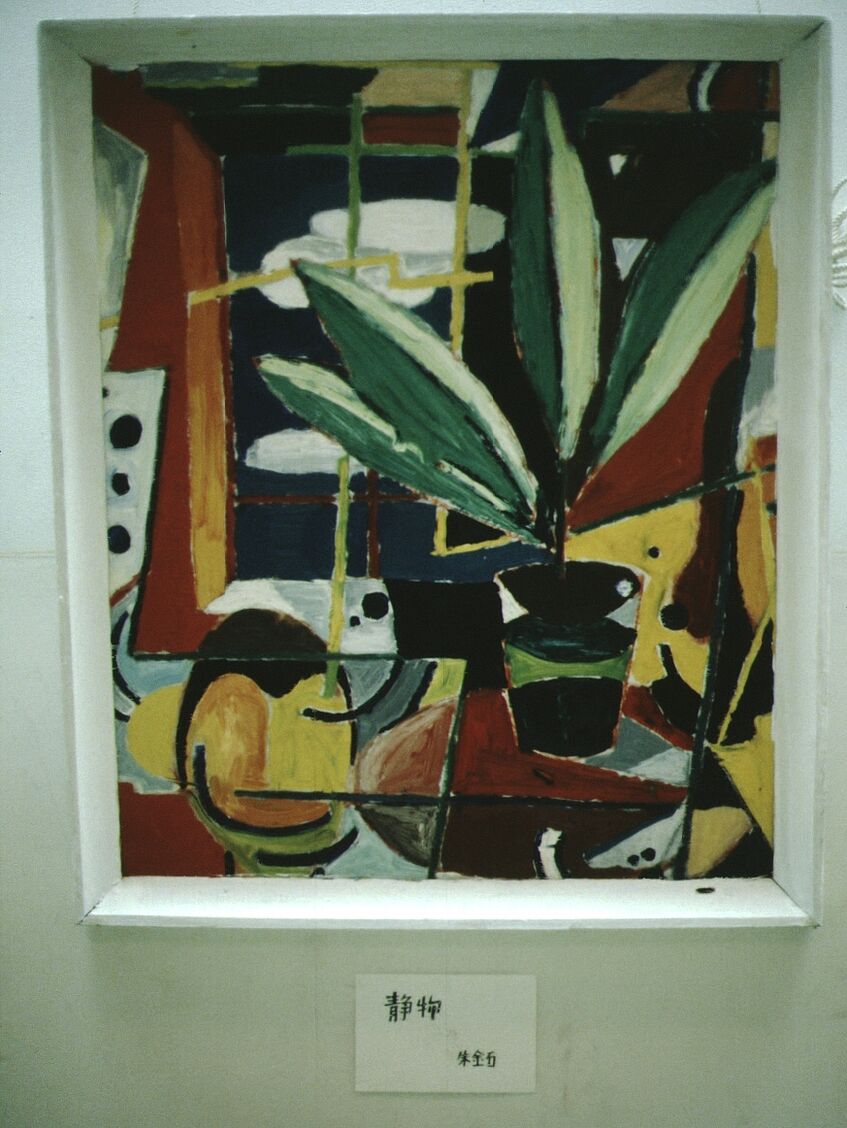
《静物》"Still Life"
Poetry
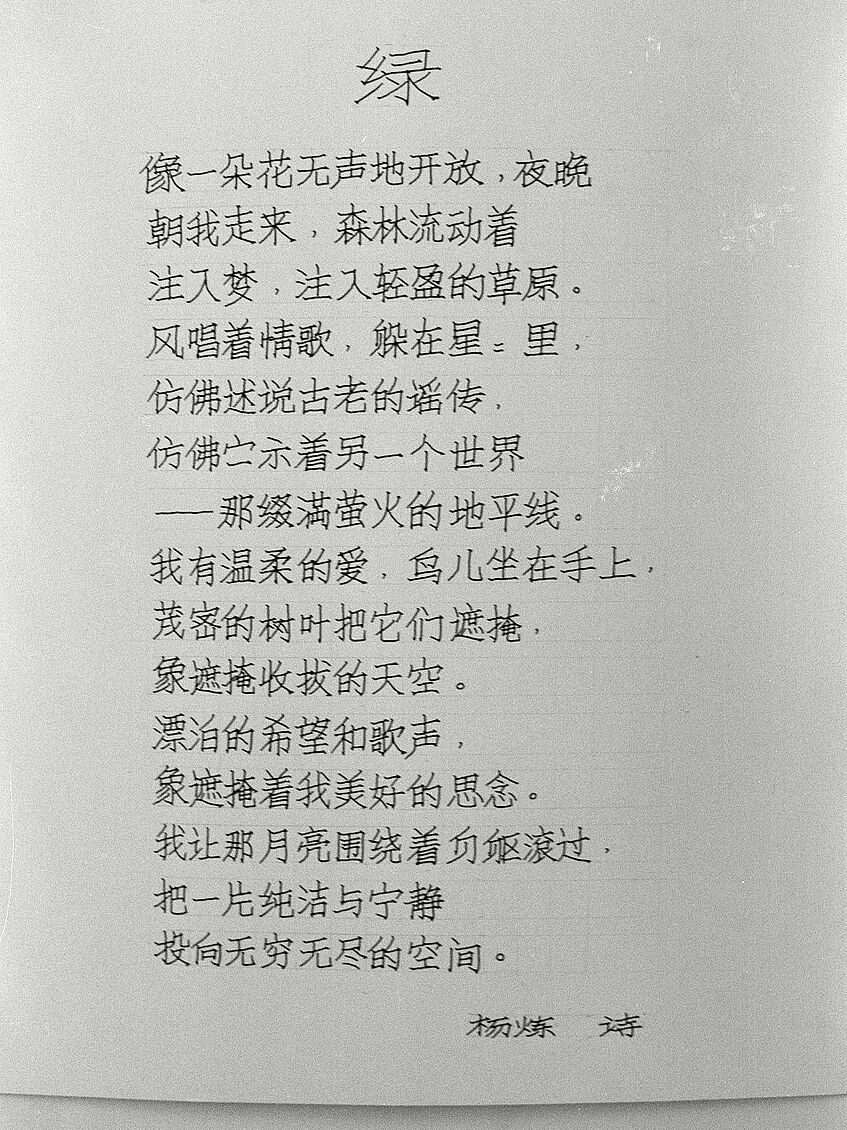
《绿》"Green", by Yang Lian 杨炼
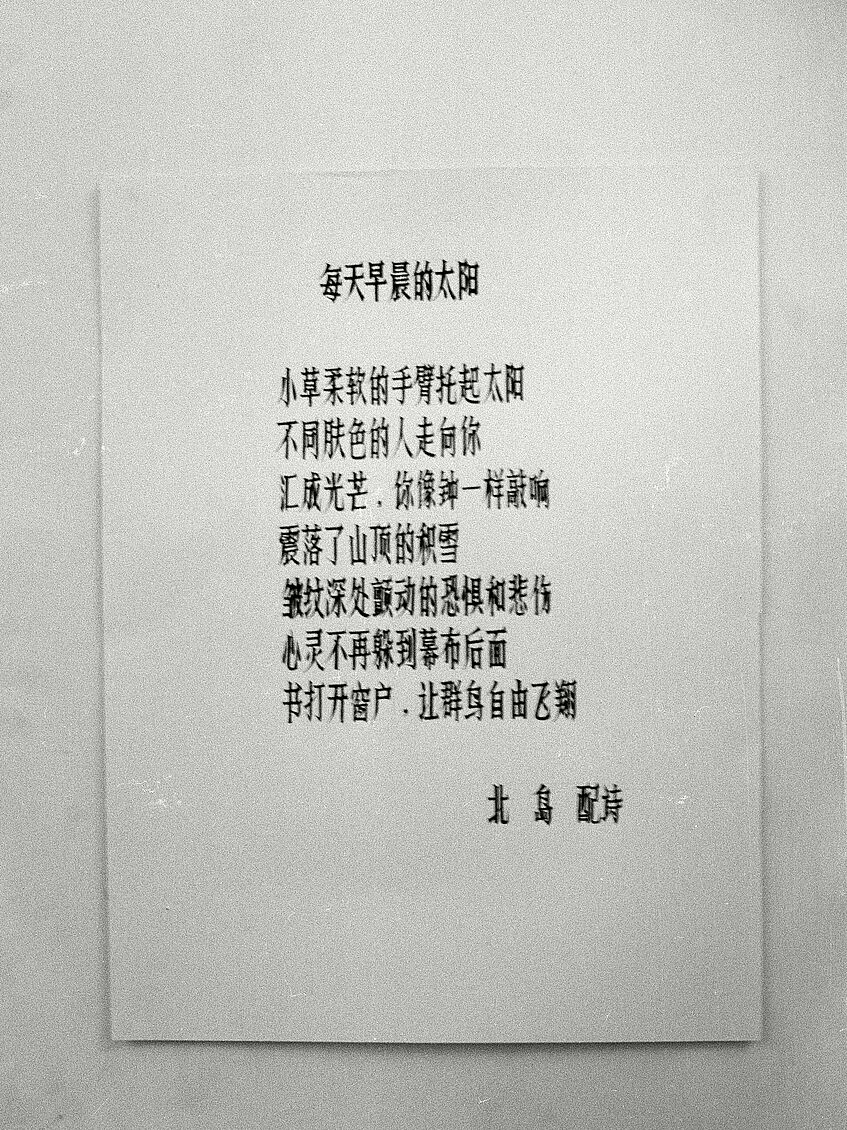
《每天早晨的太阳》"The Daily Morning Sun", by Bei Dao 北岛
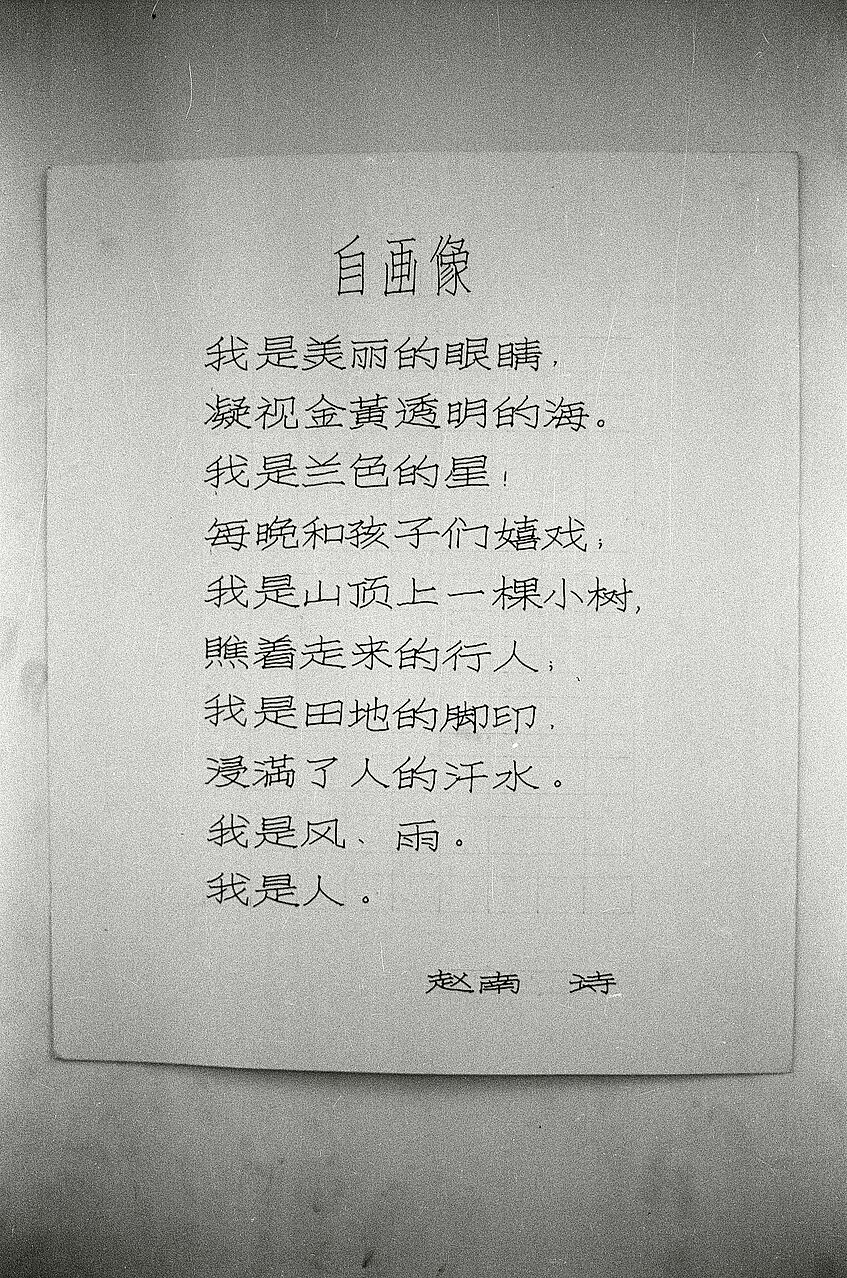
《自画像》"Self Portrait", by Zhao Nan 赵南
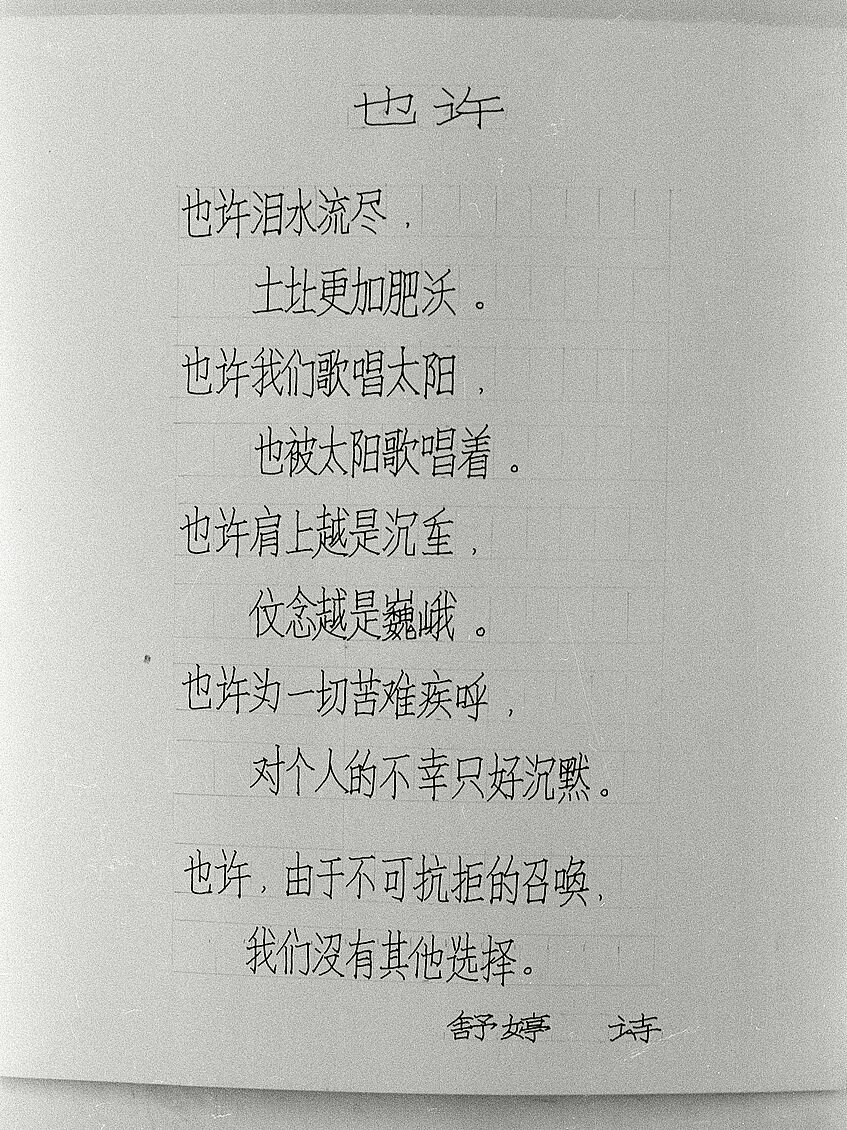
《也许》"Maybe", by Shu Ting 舒婷
